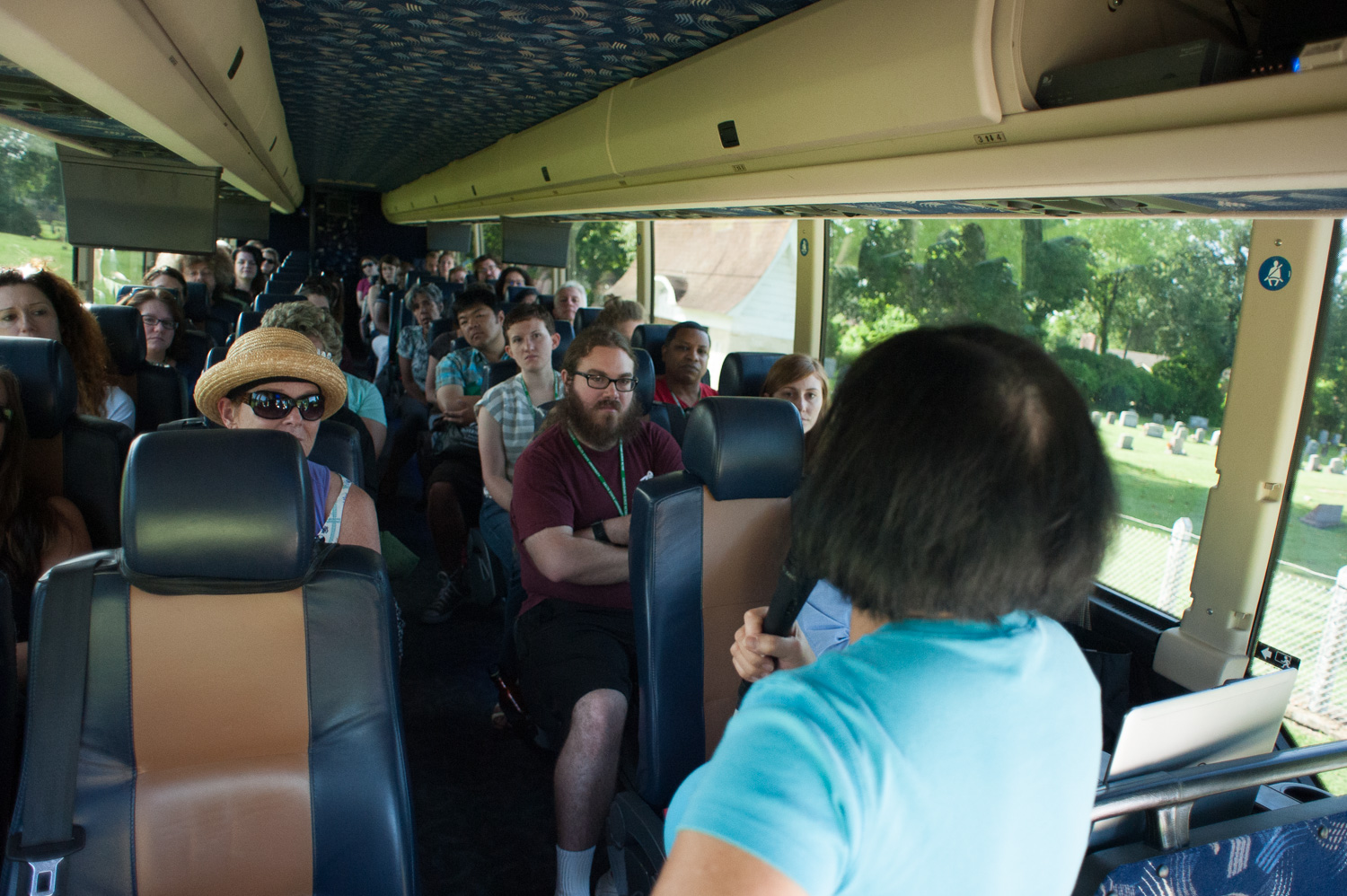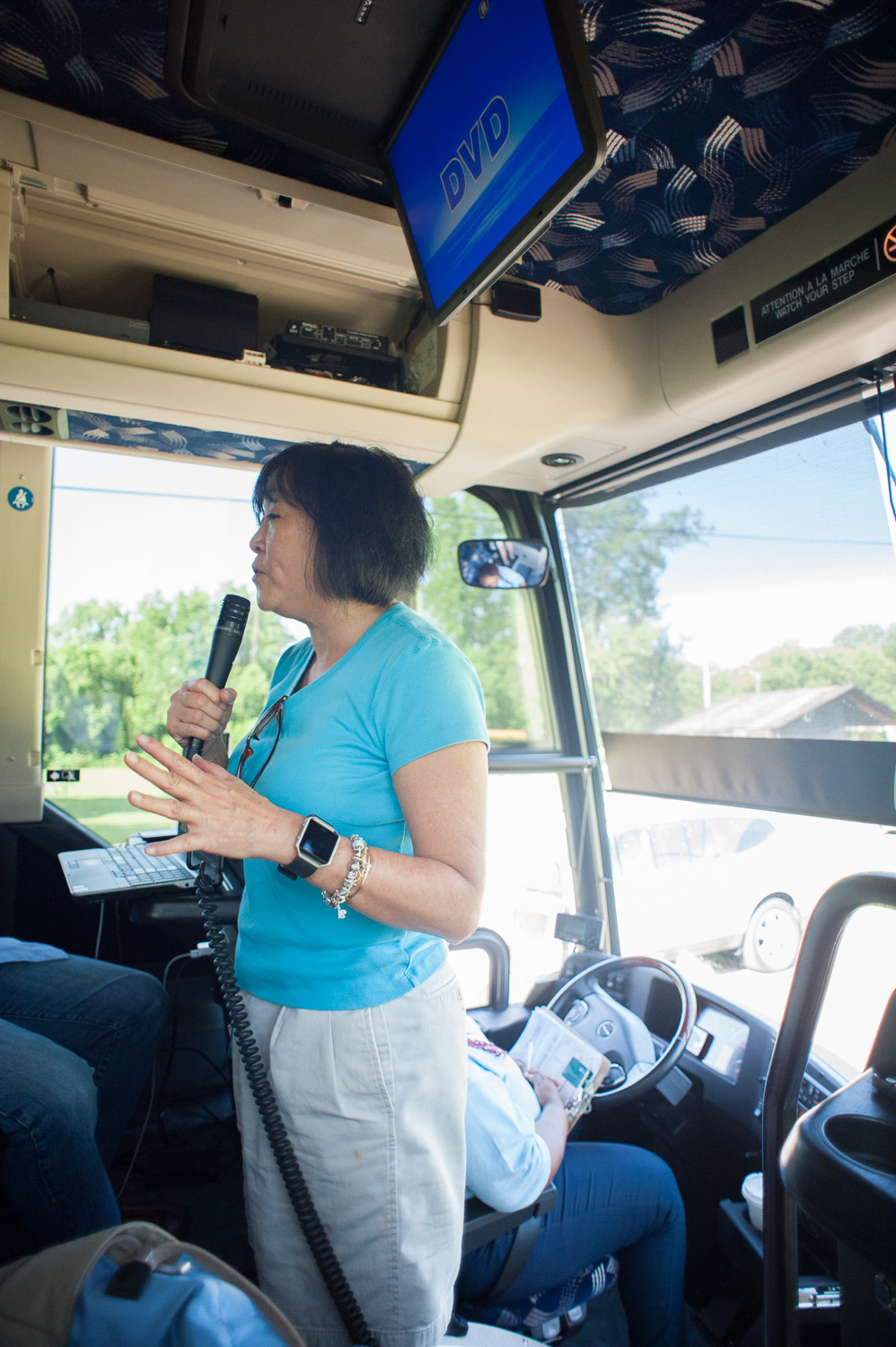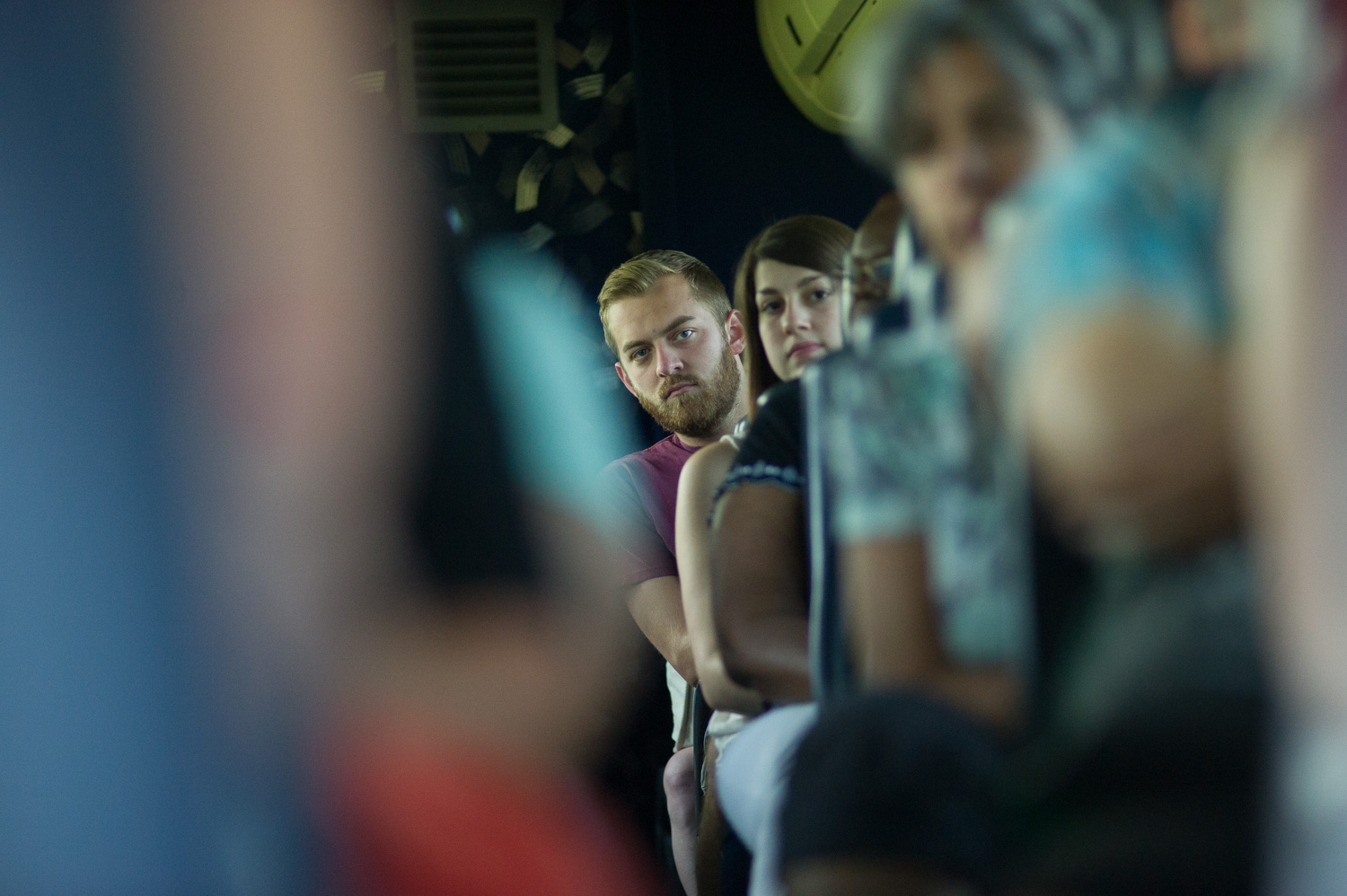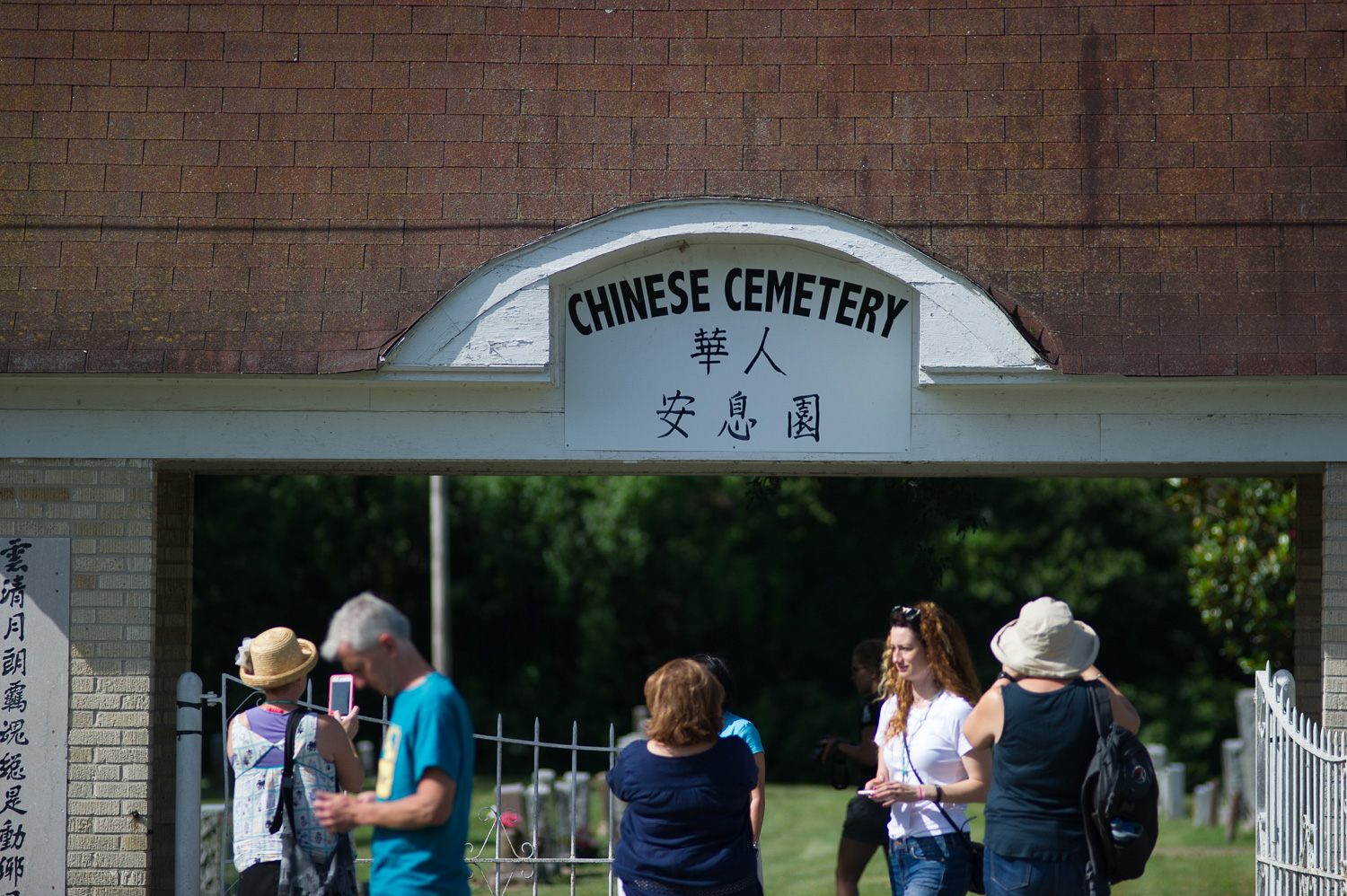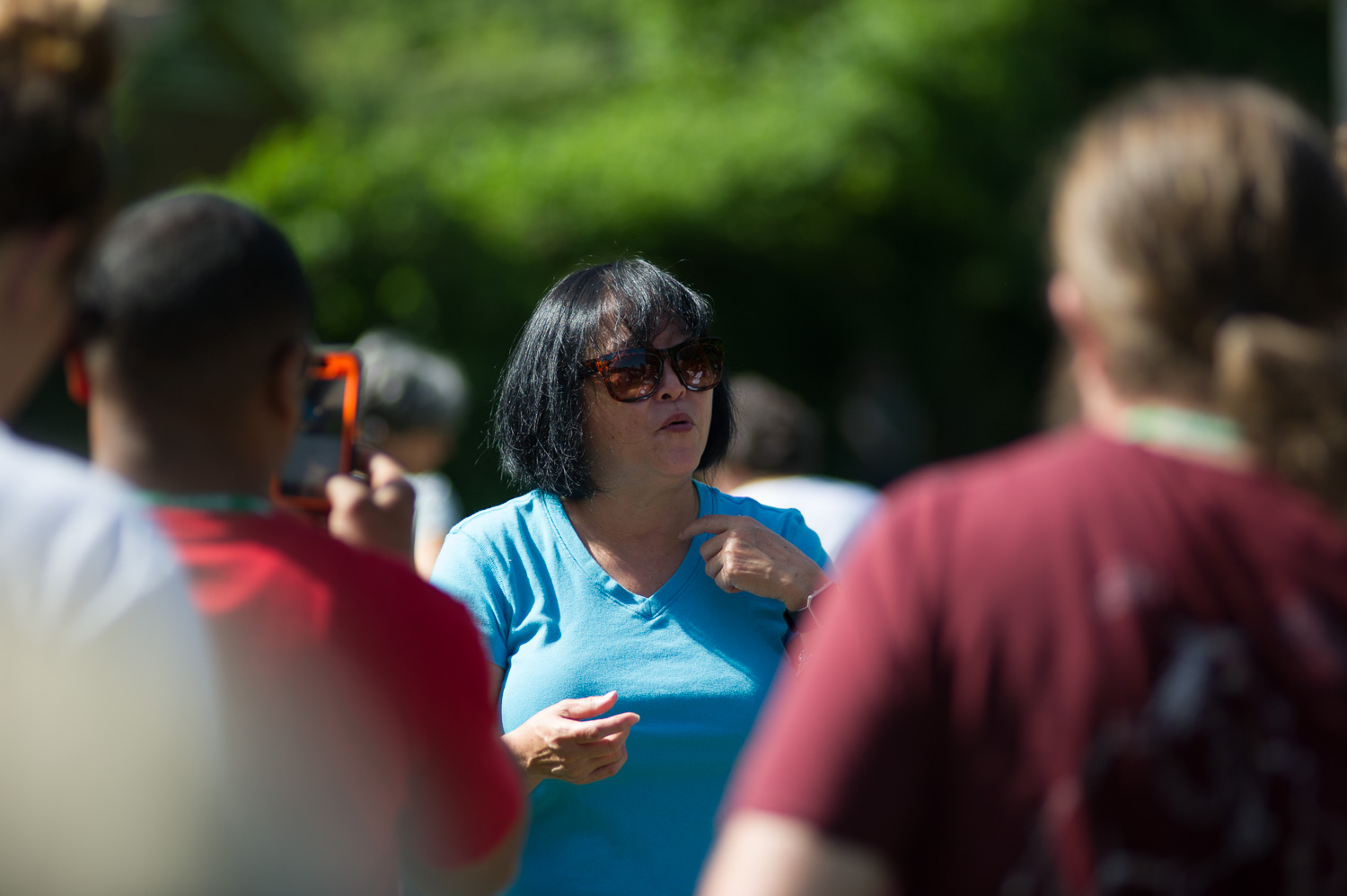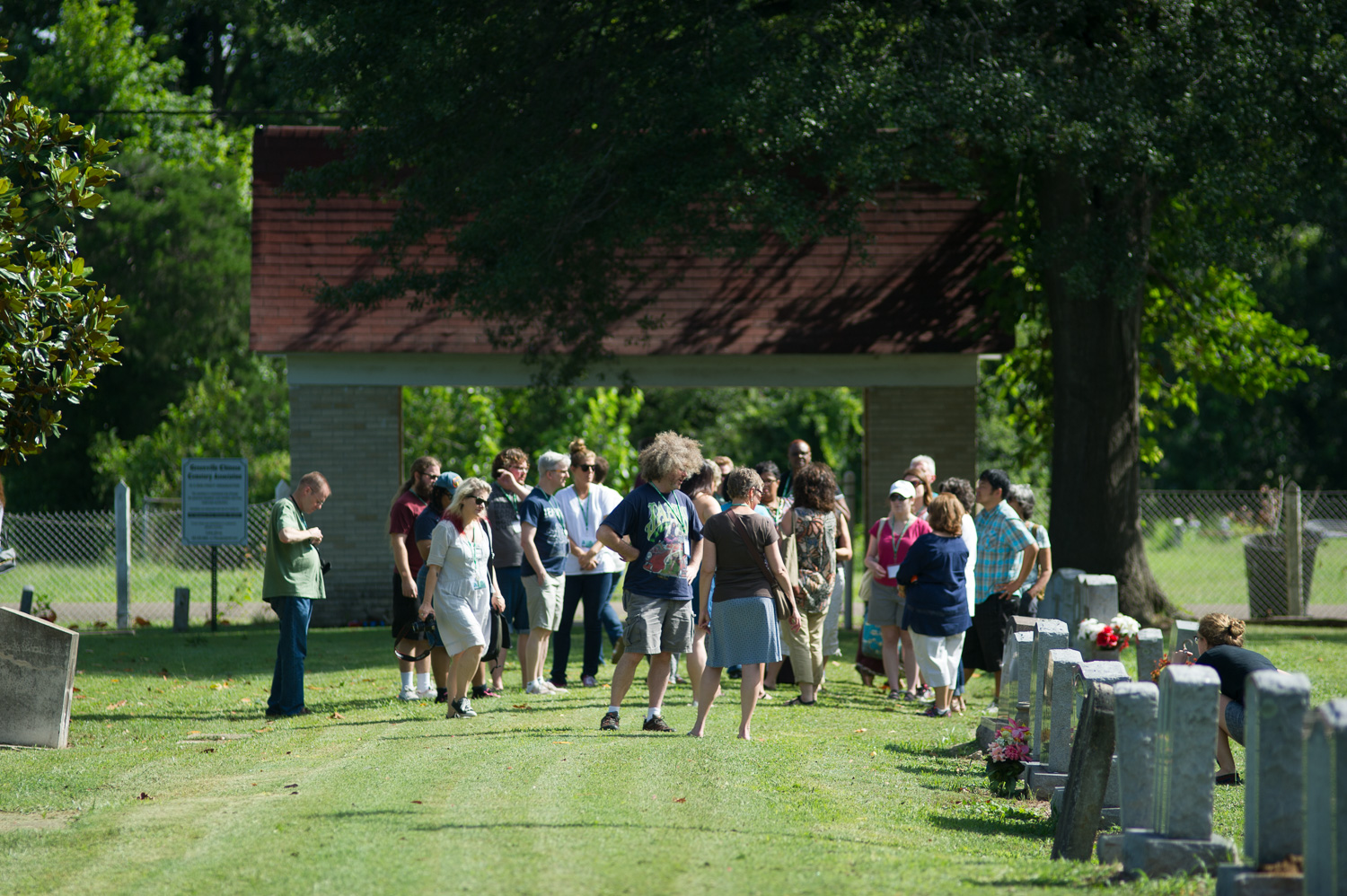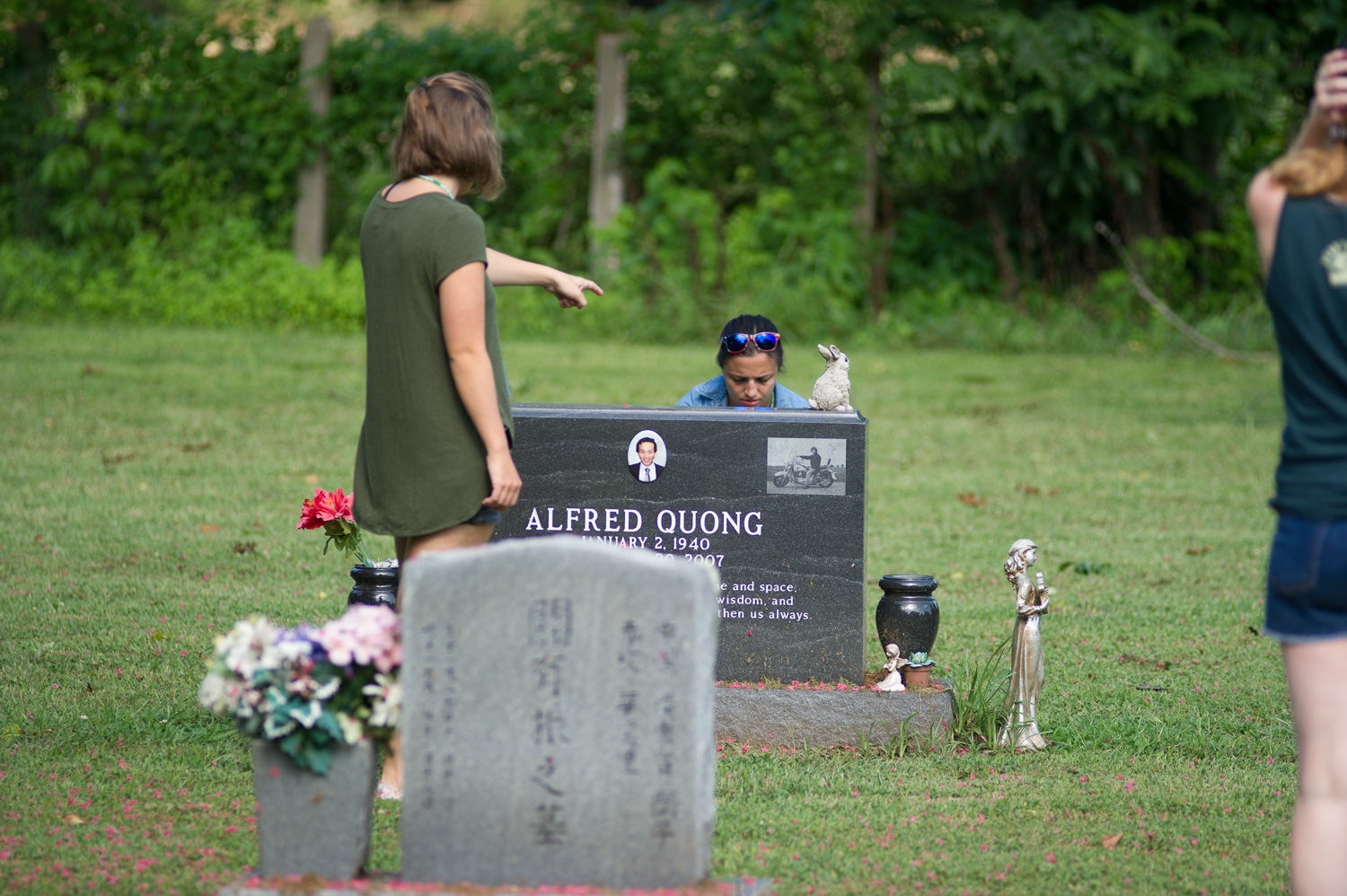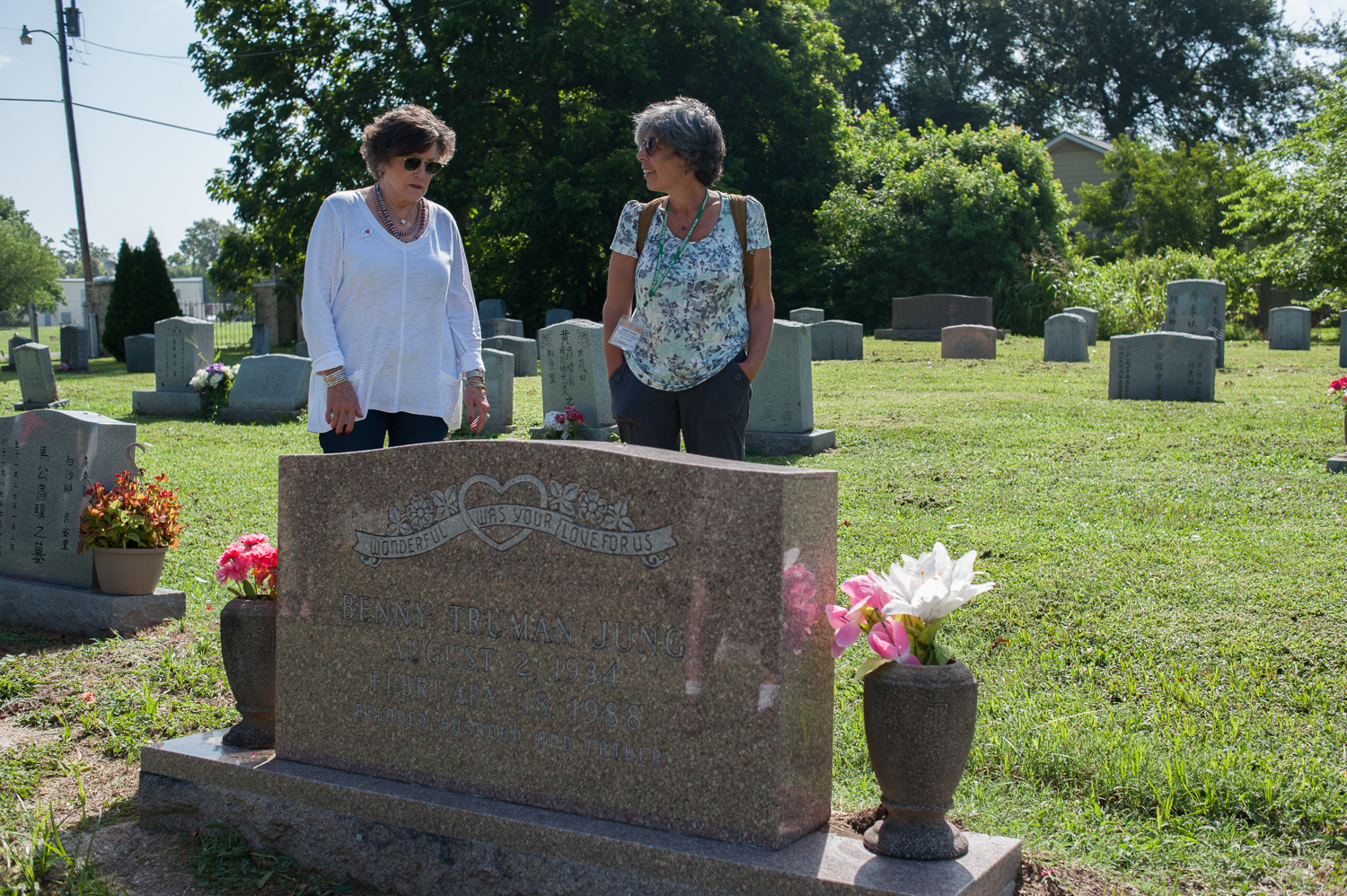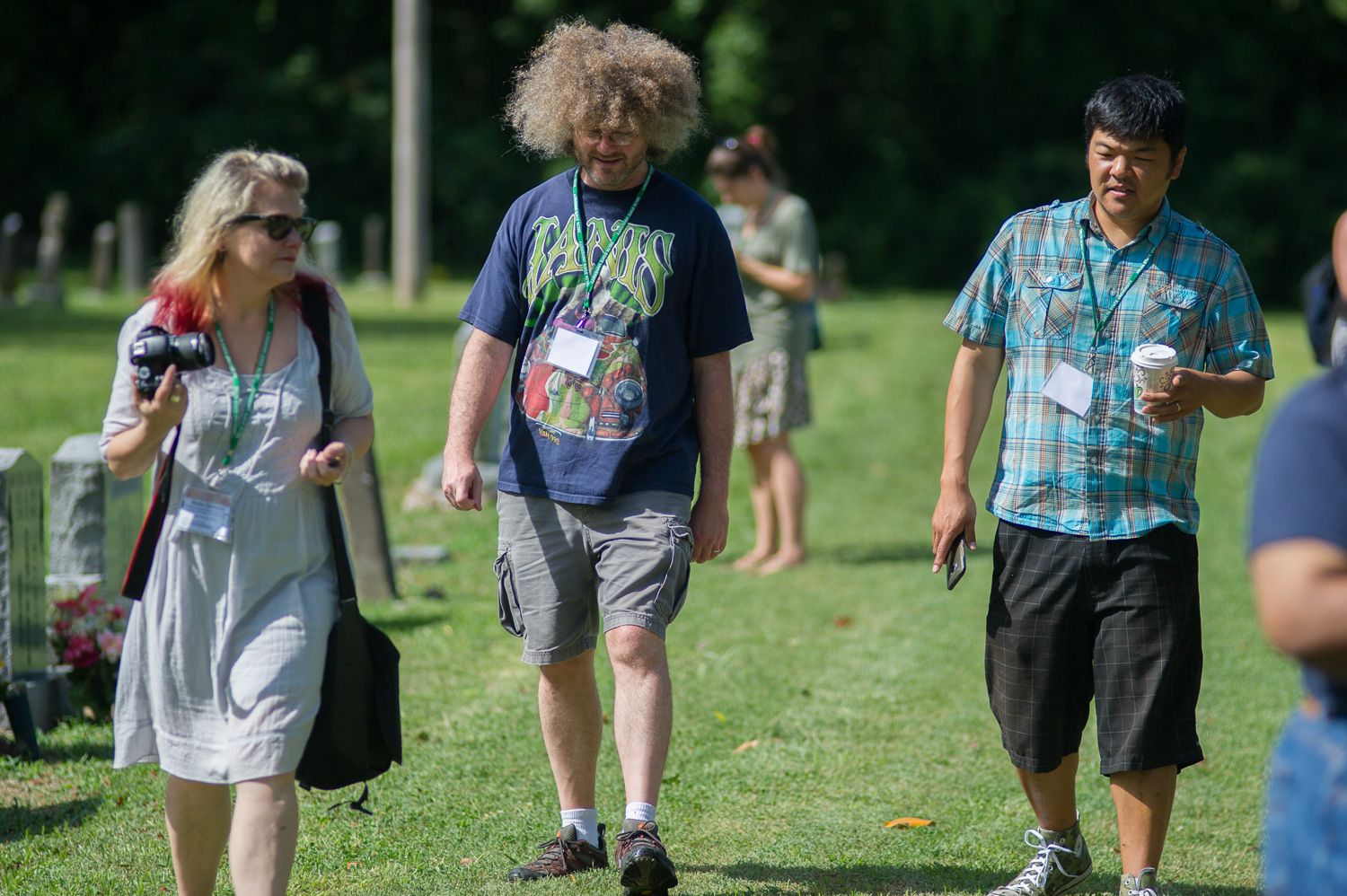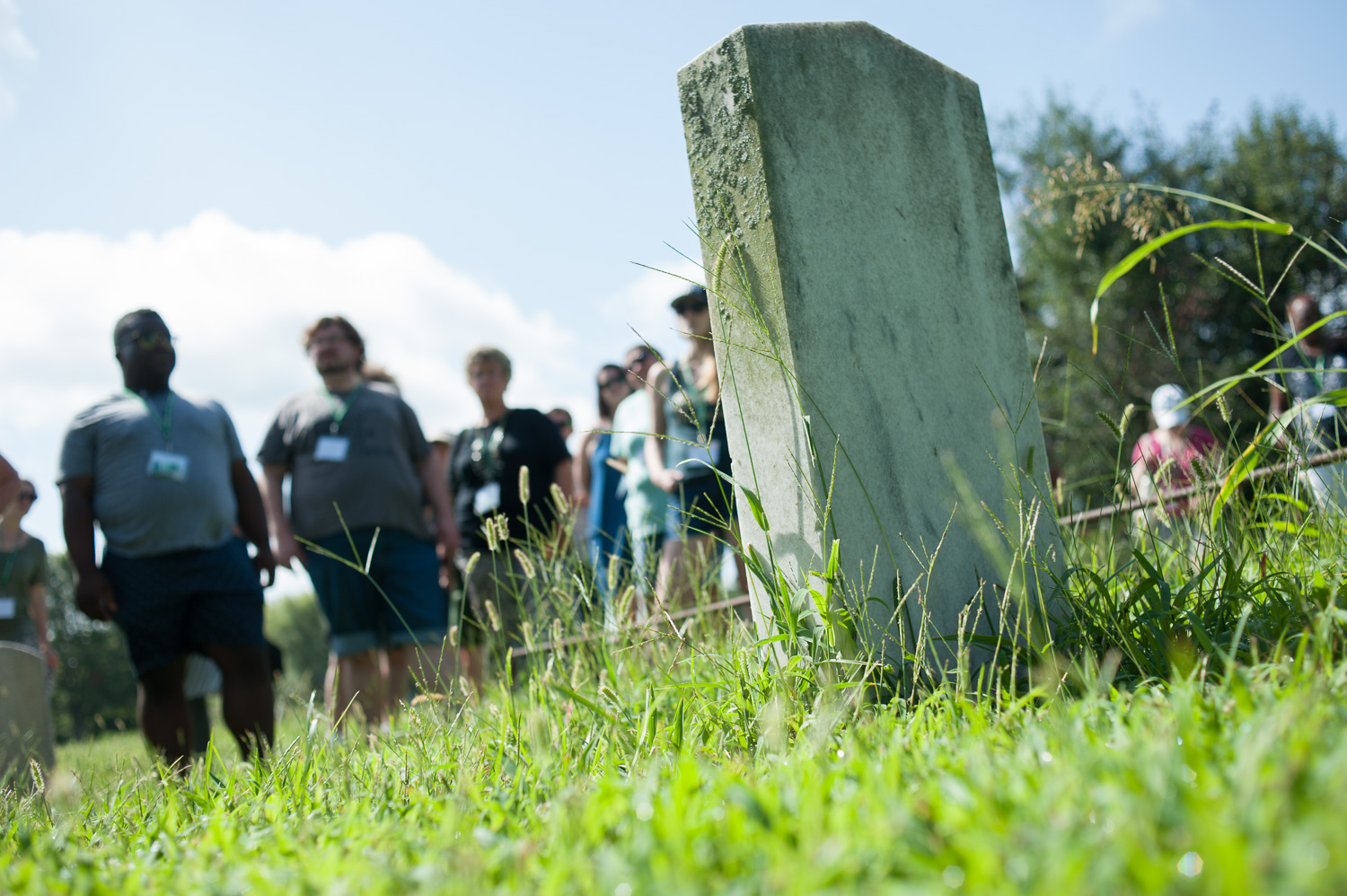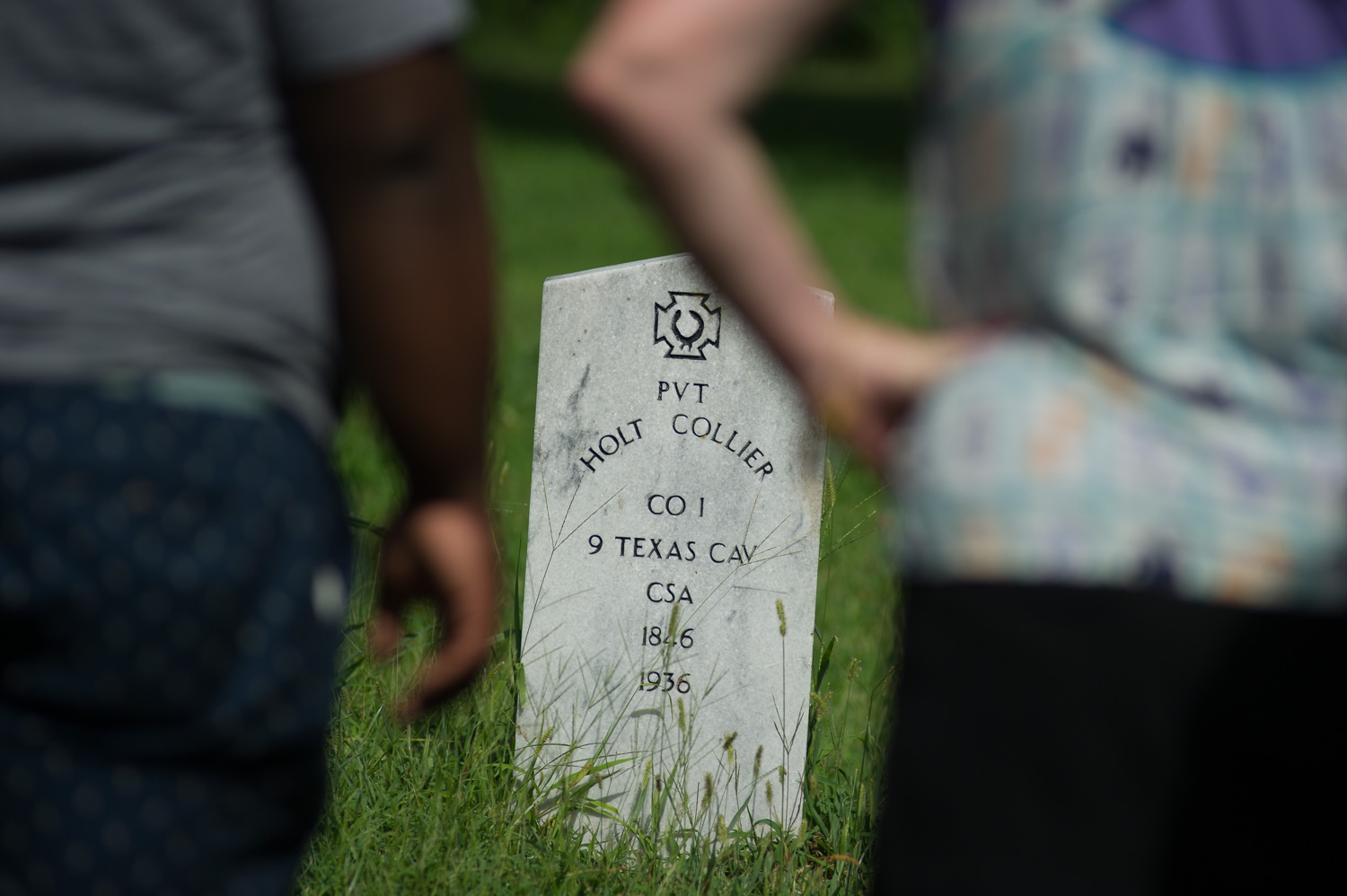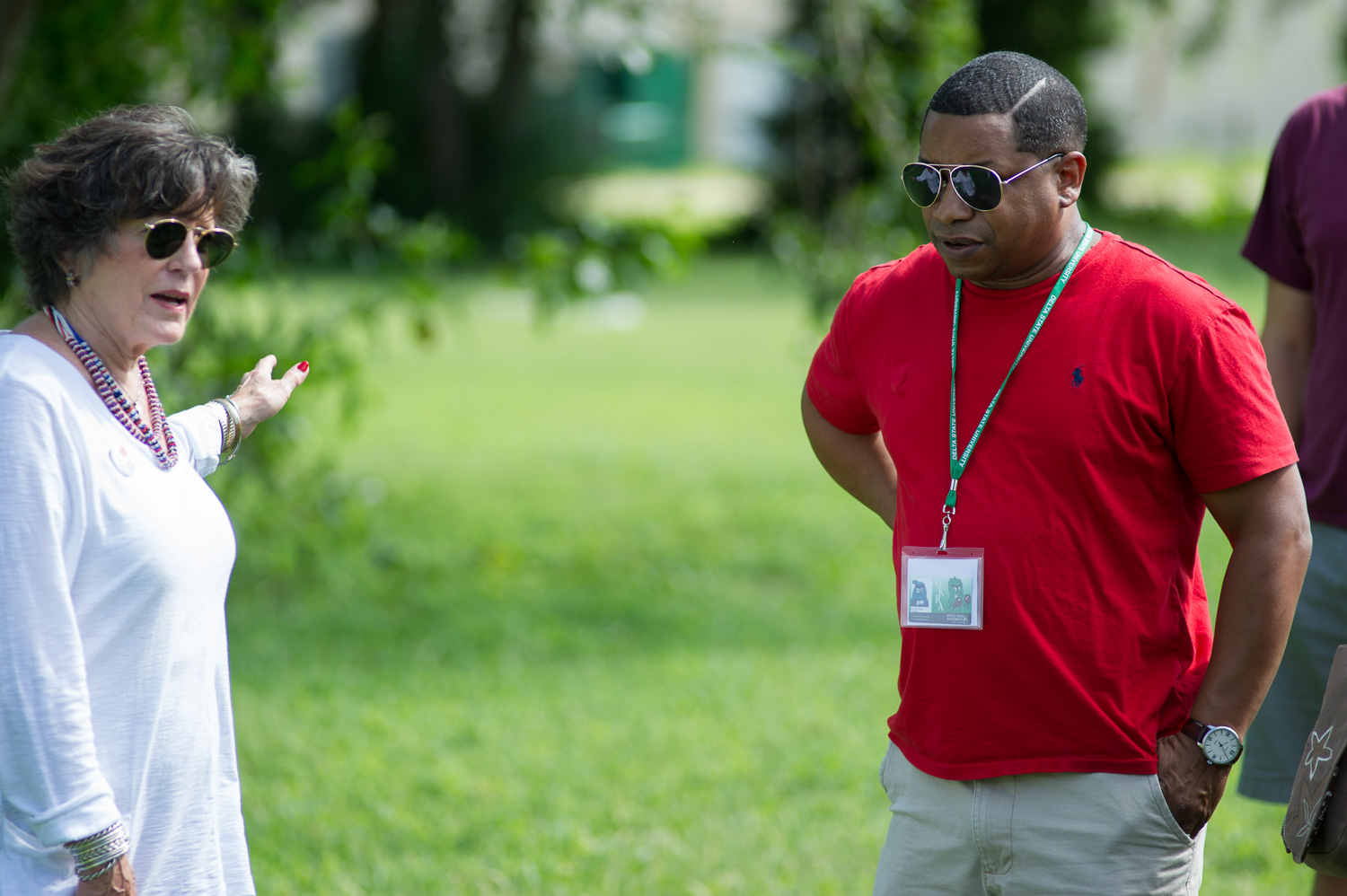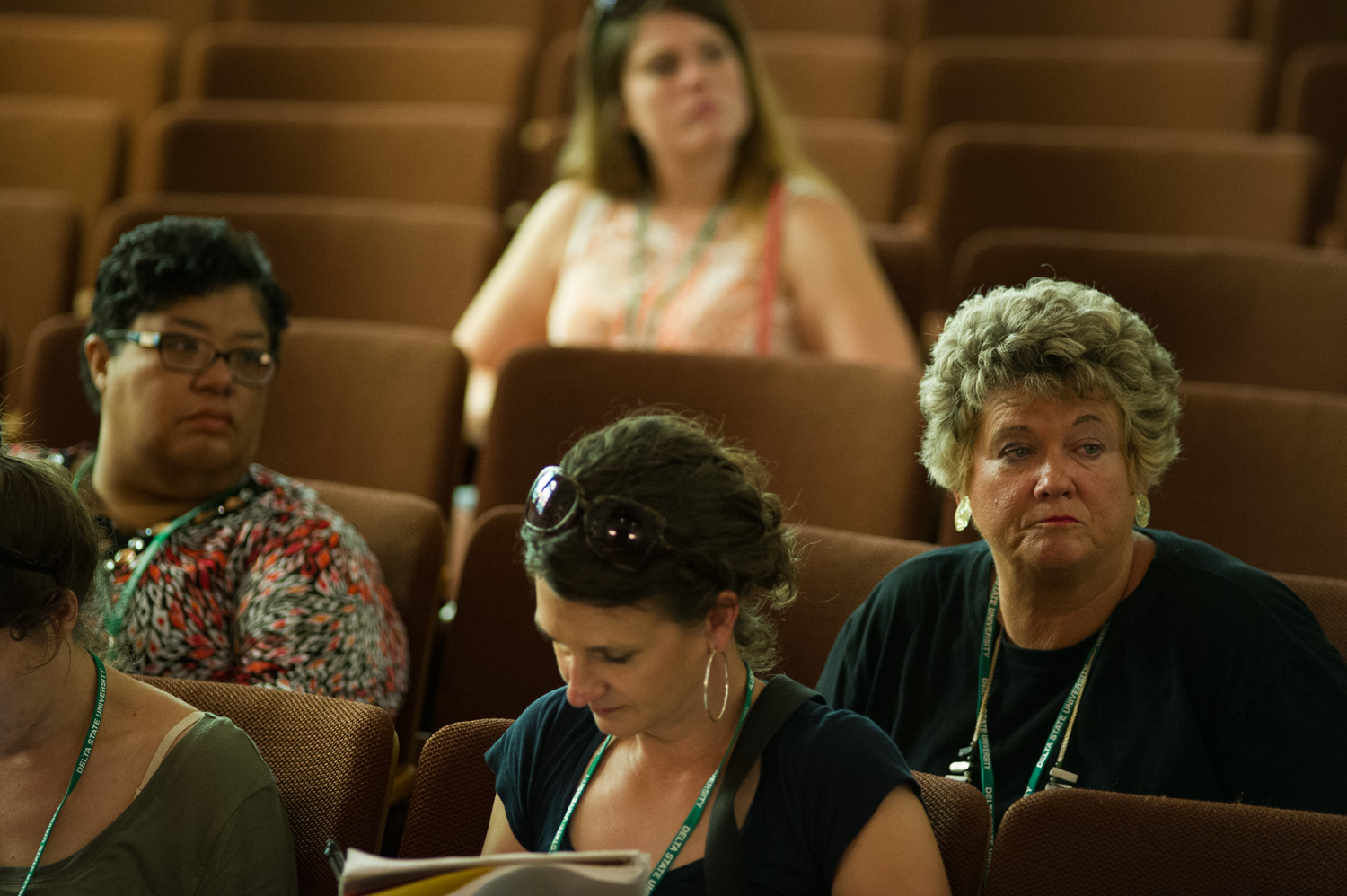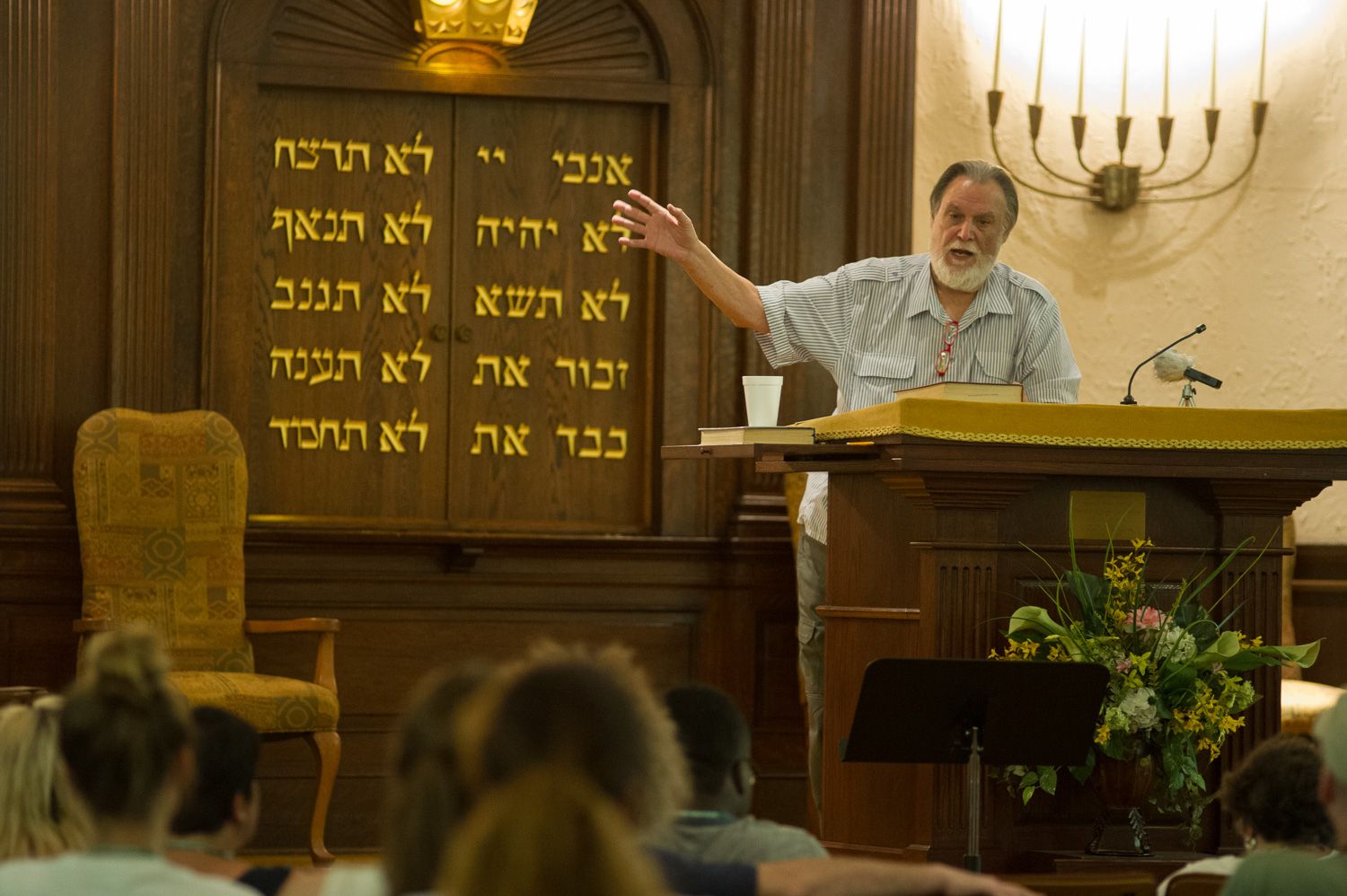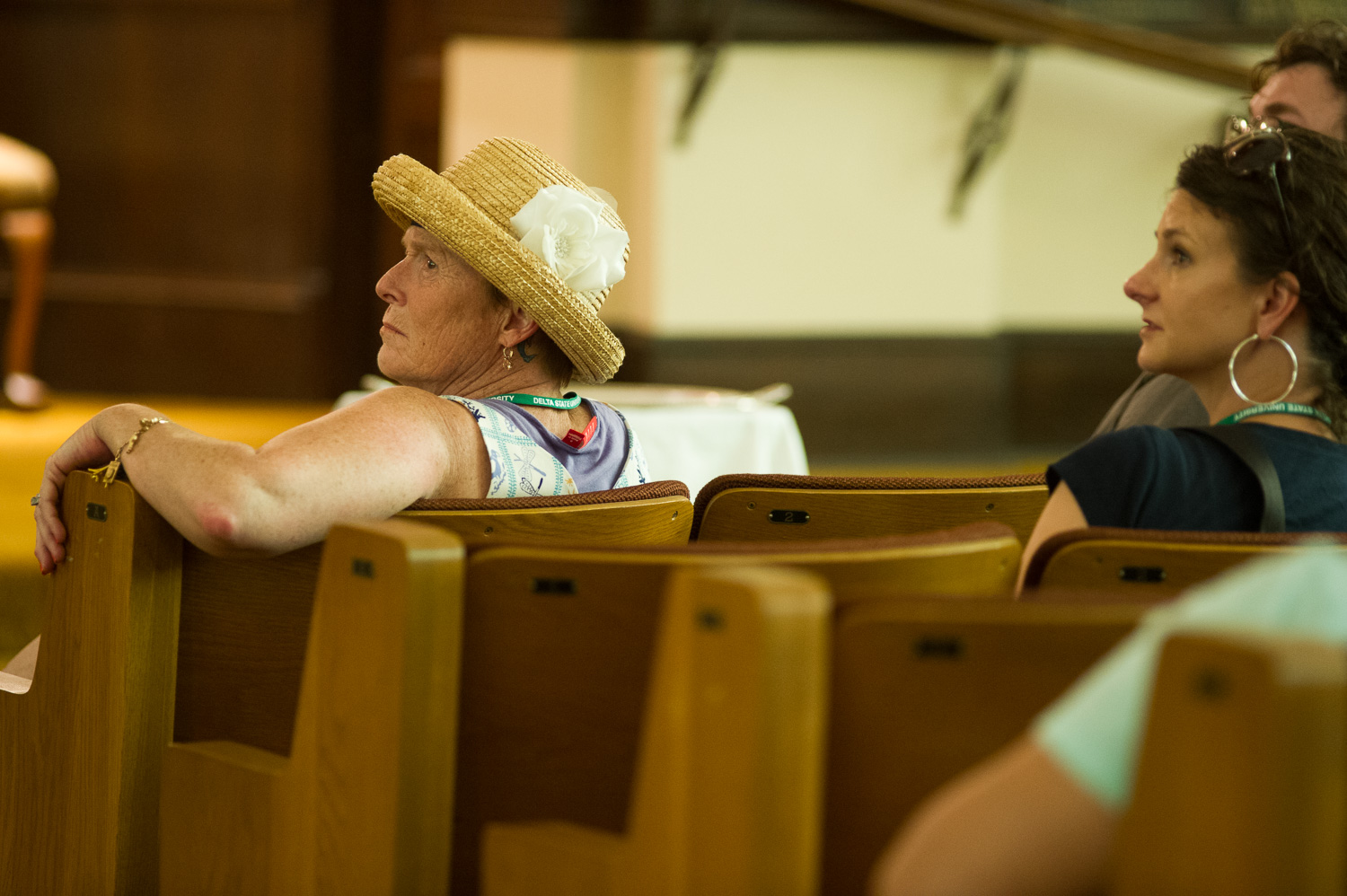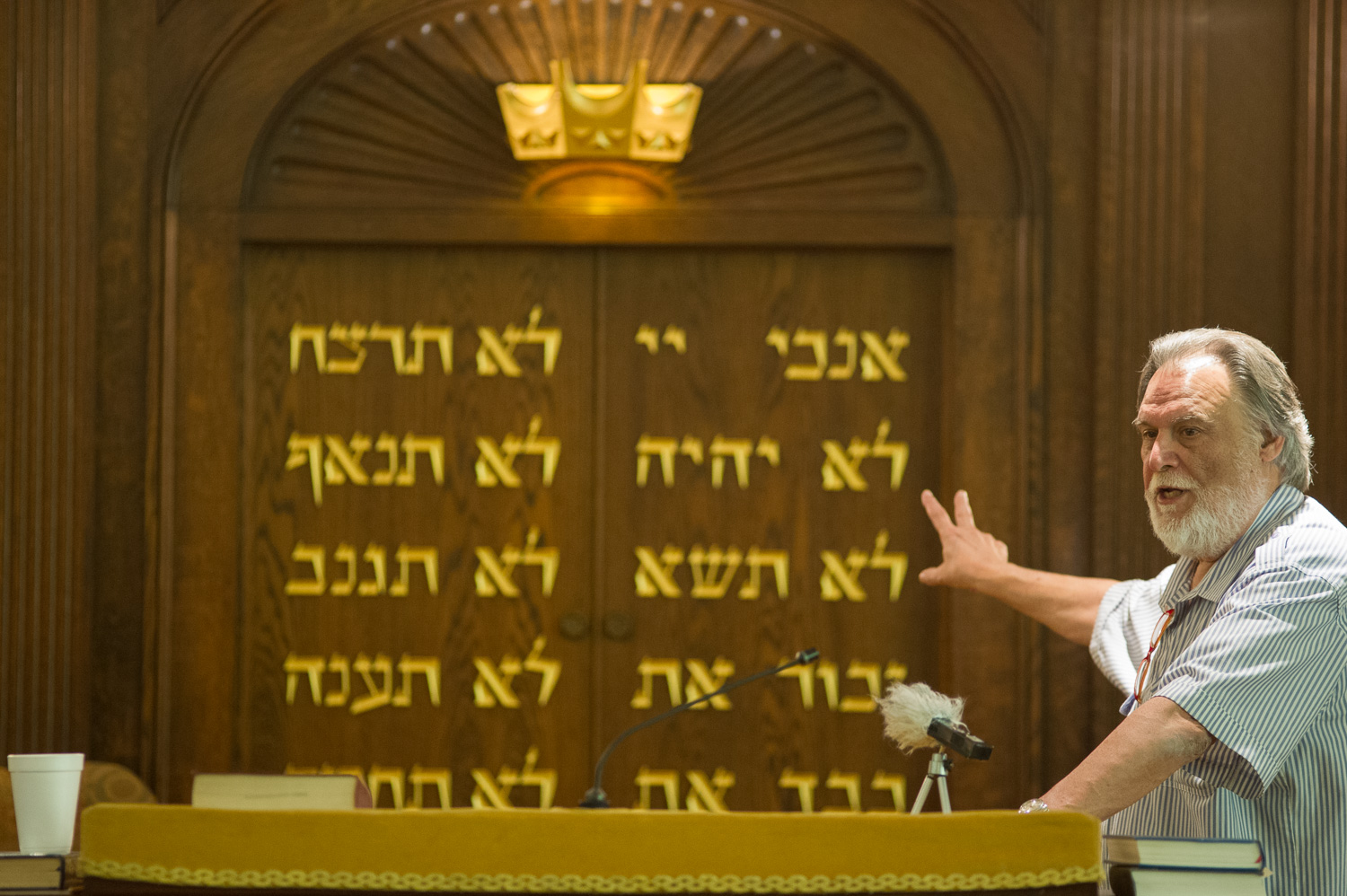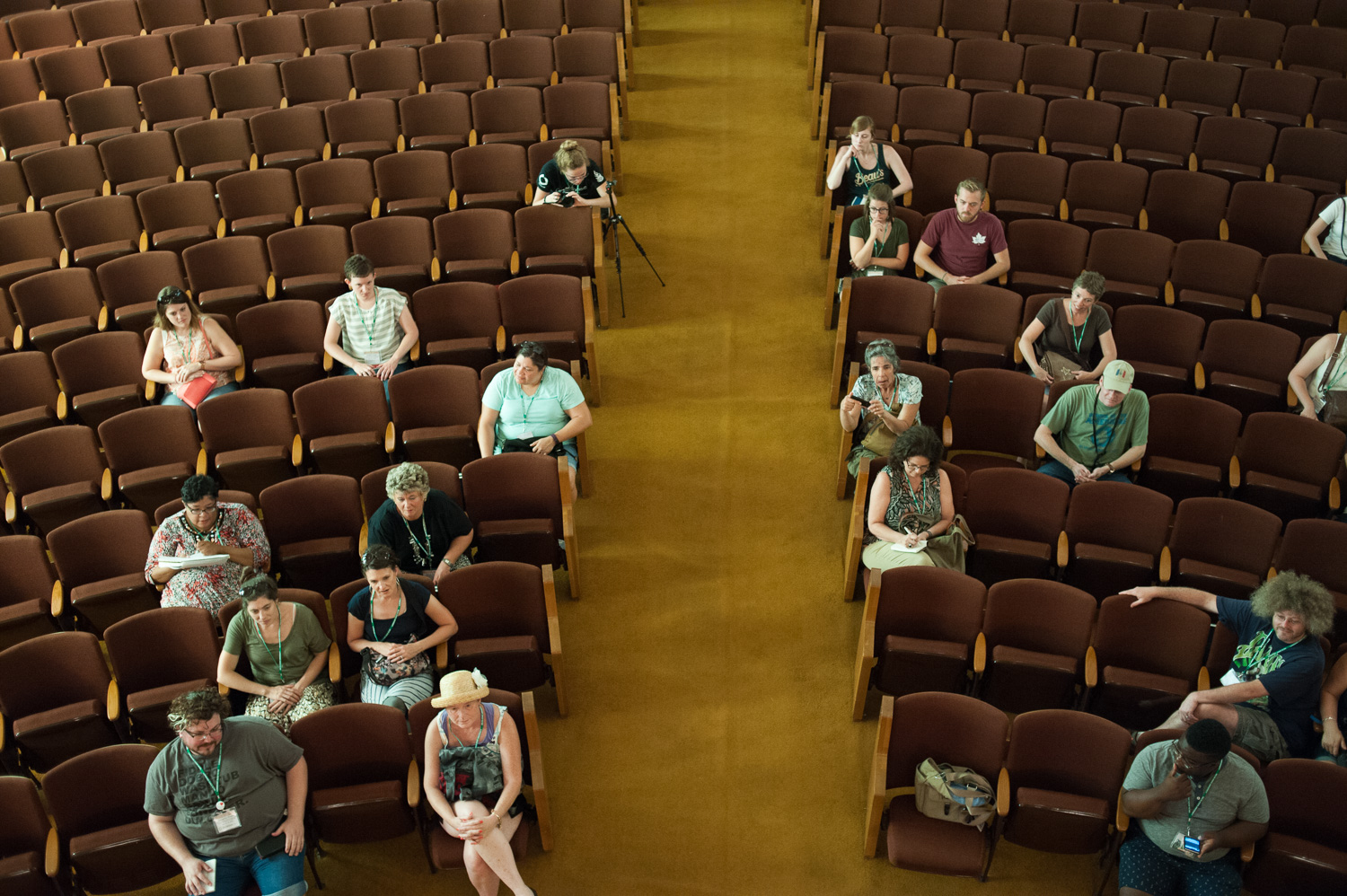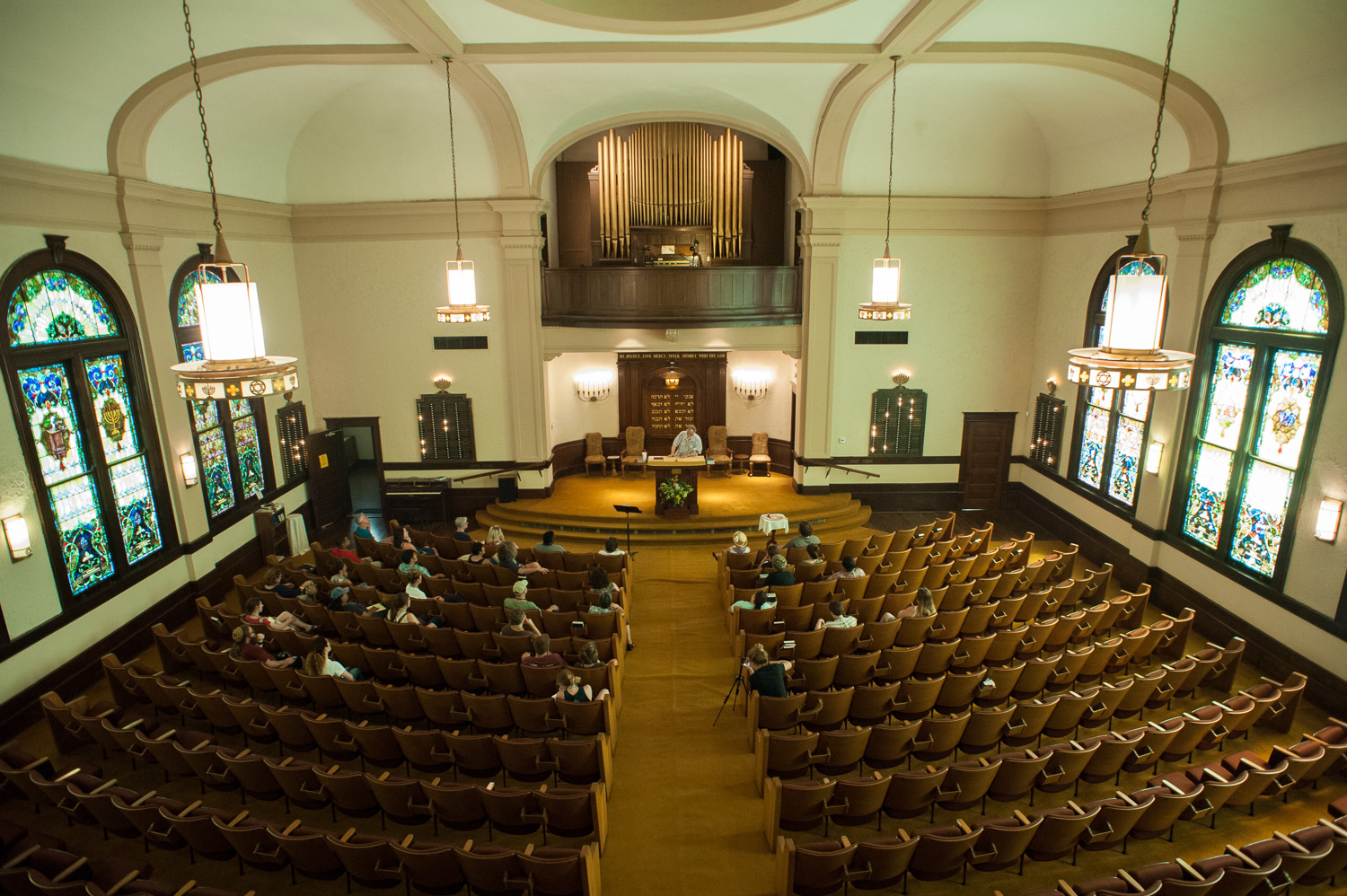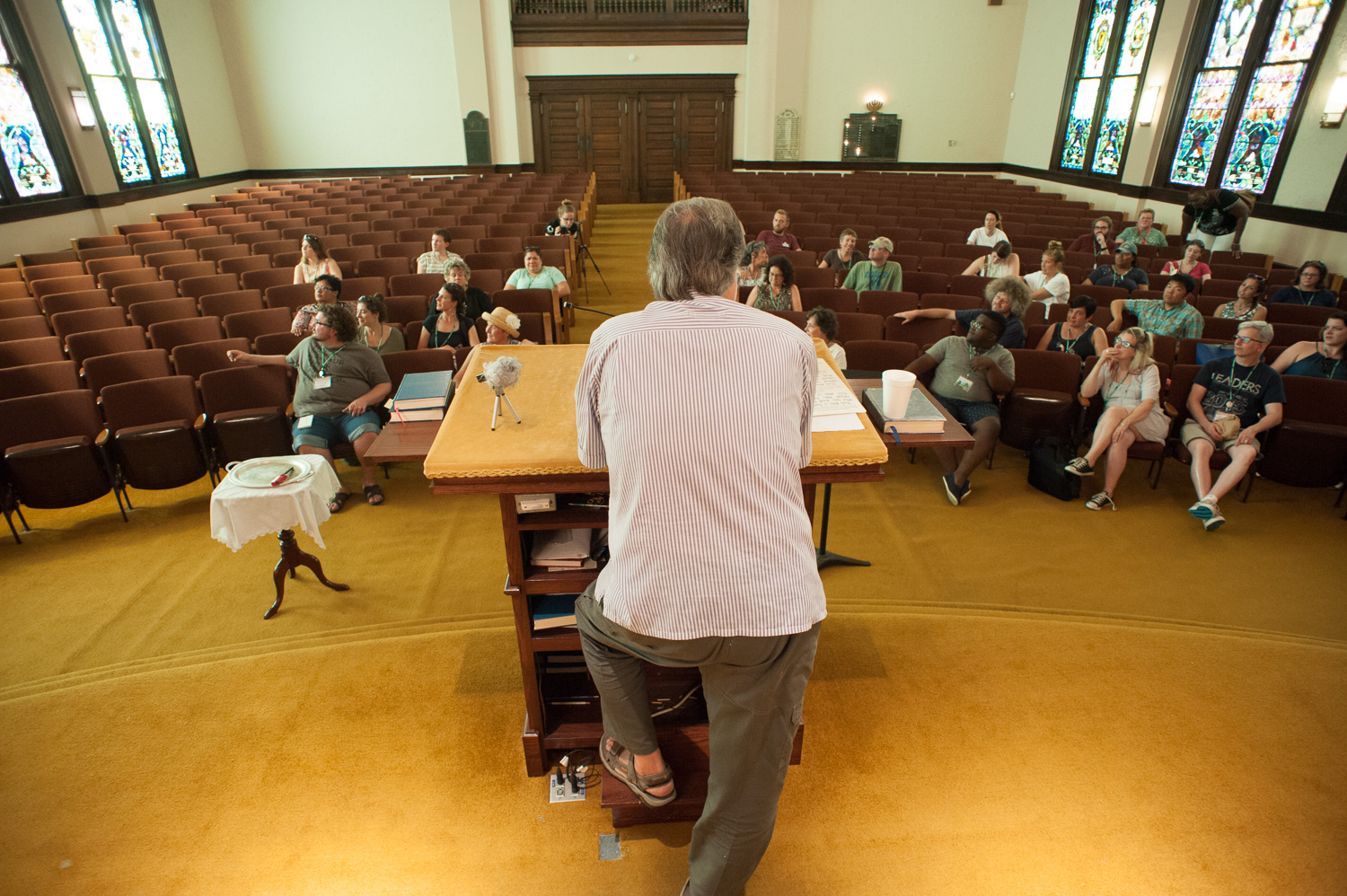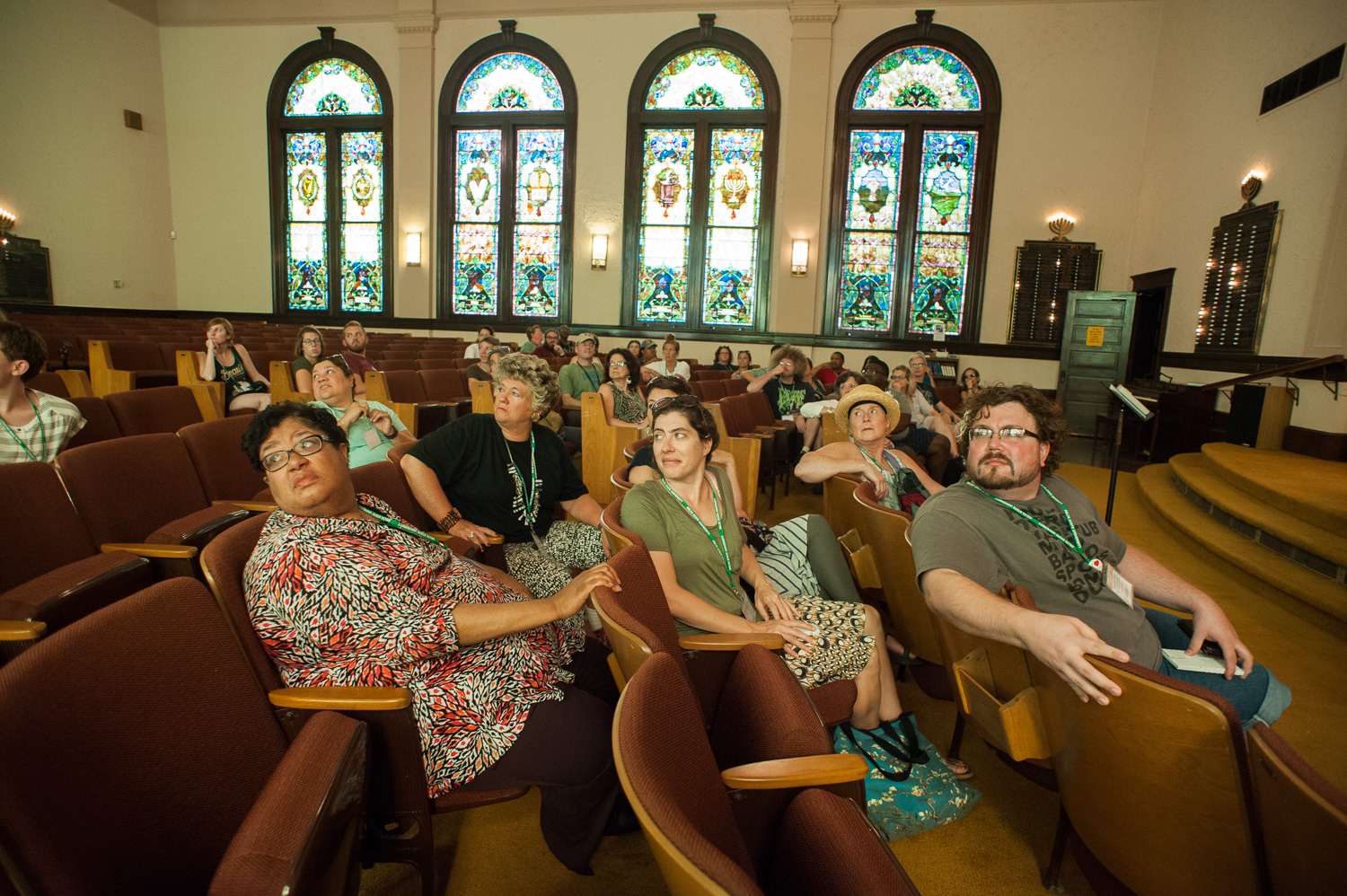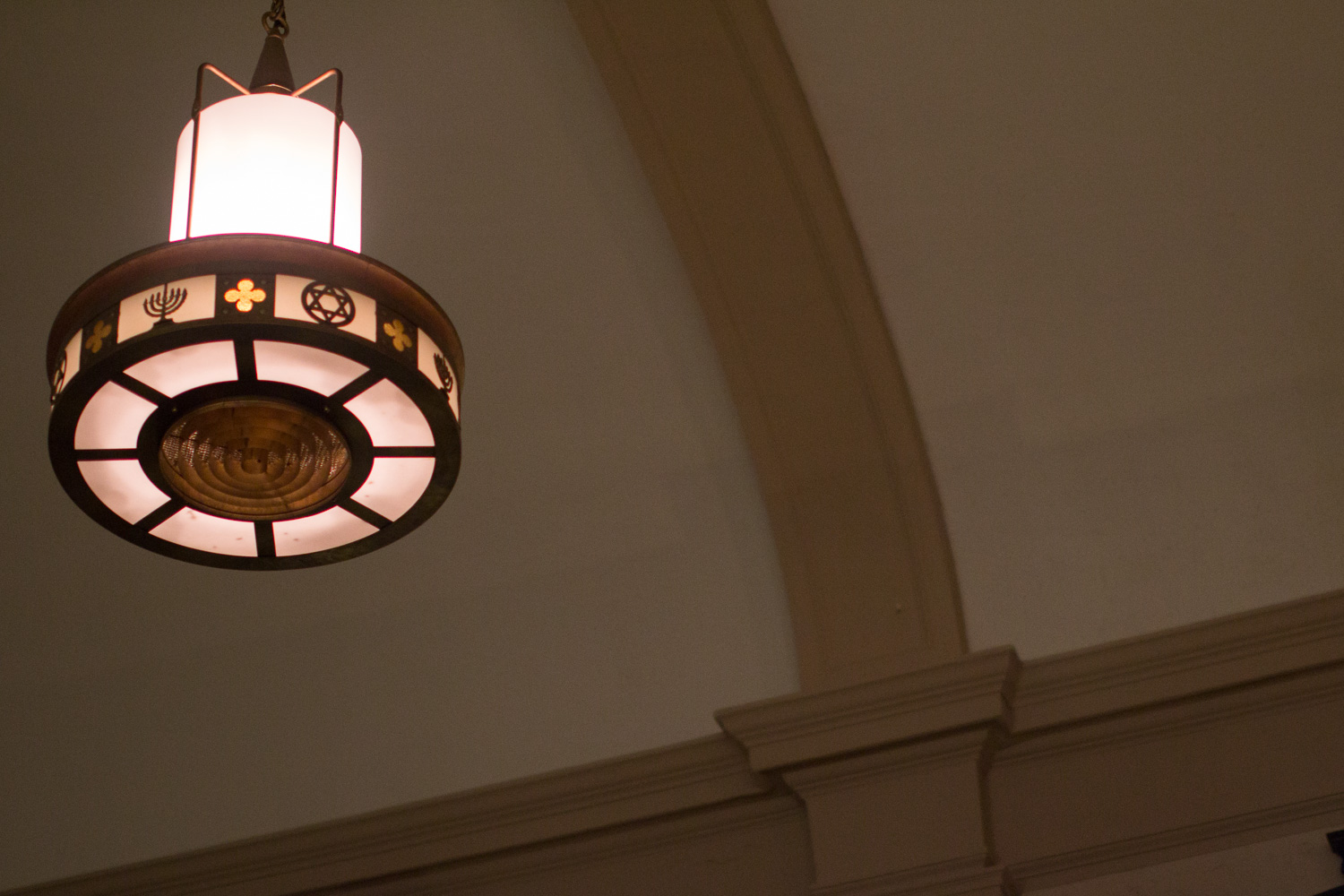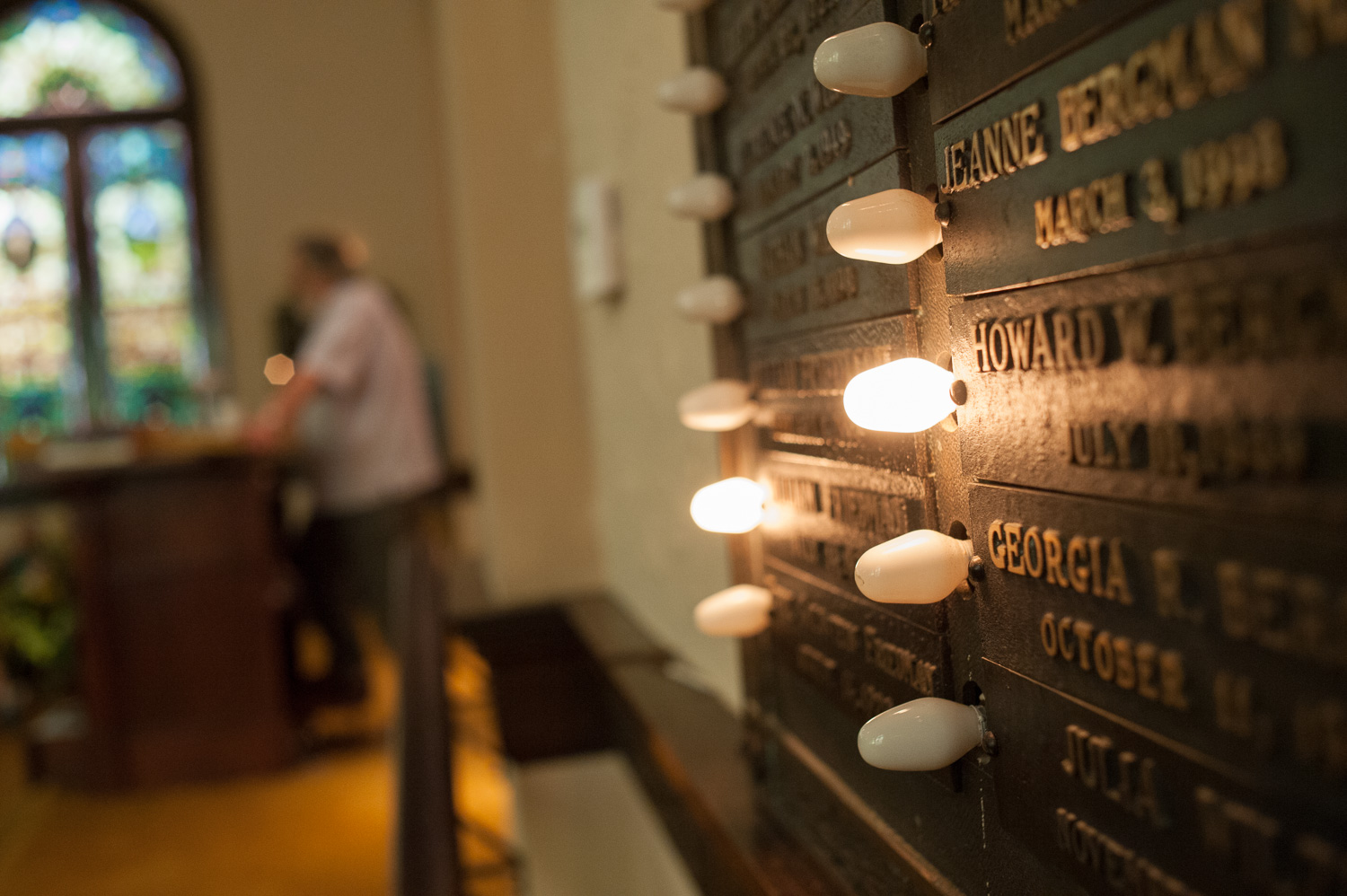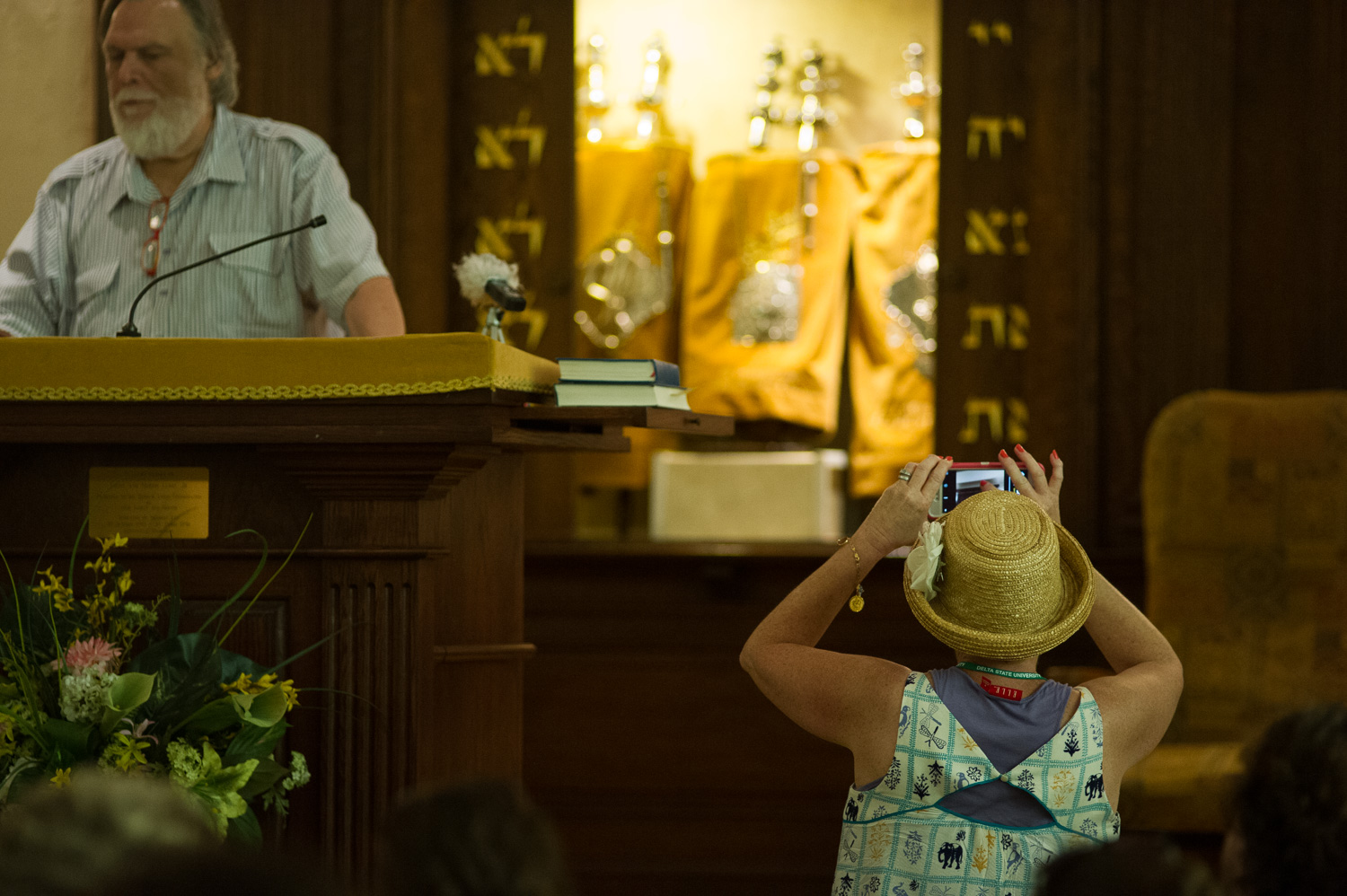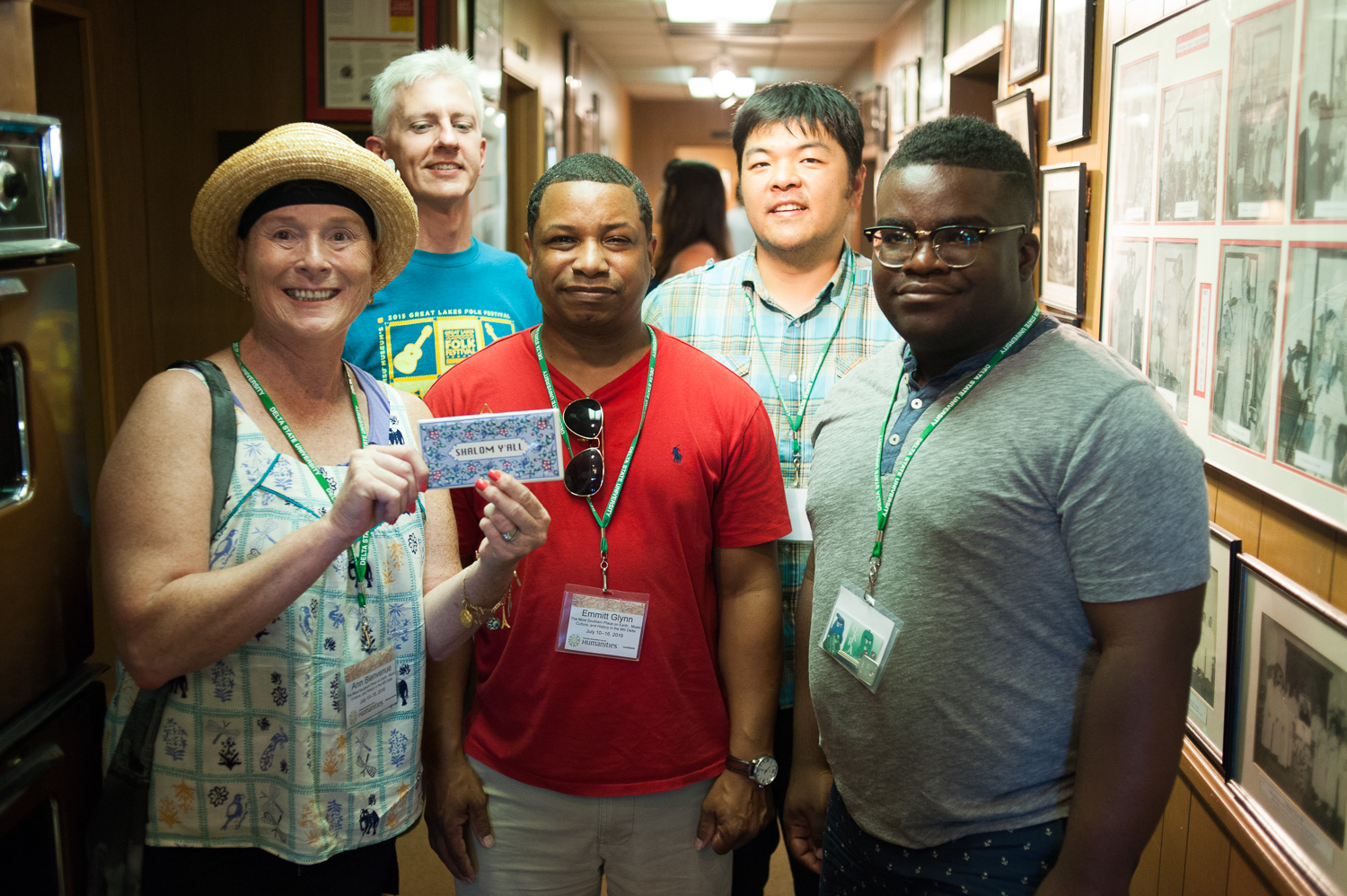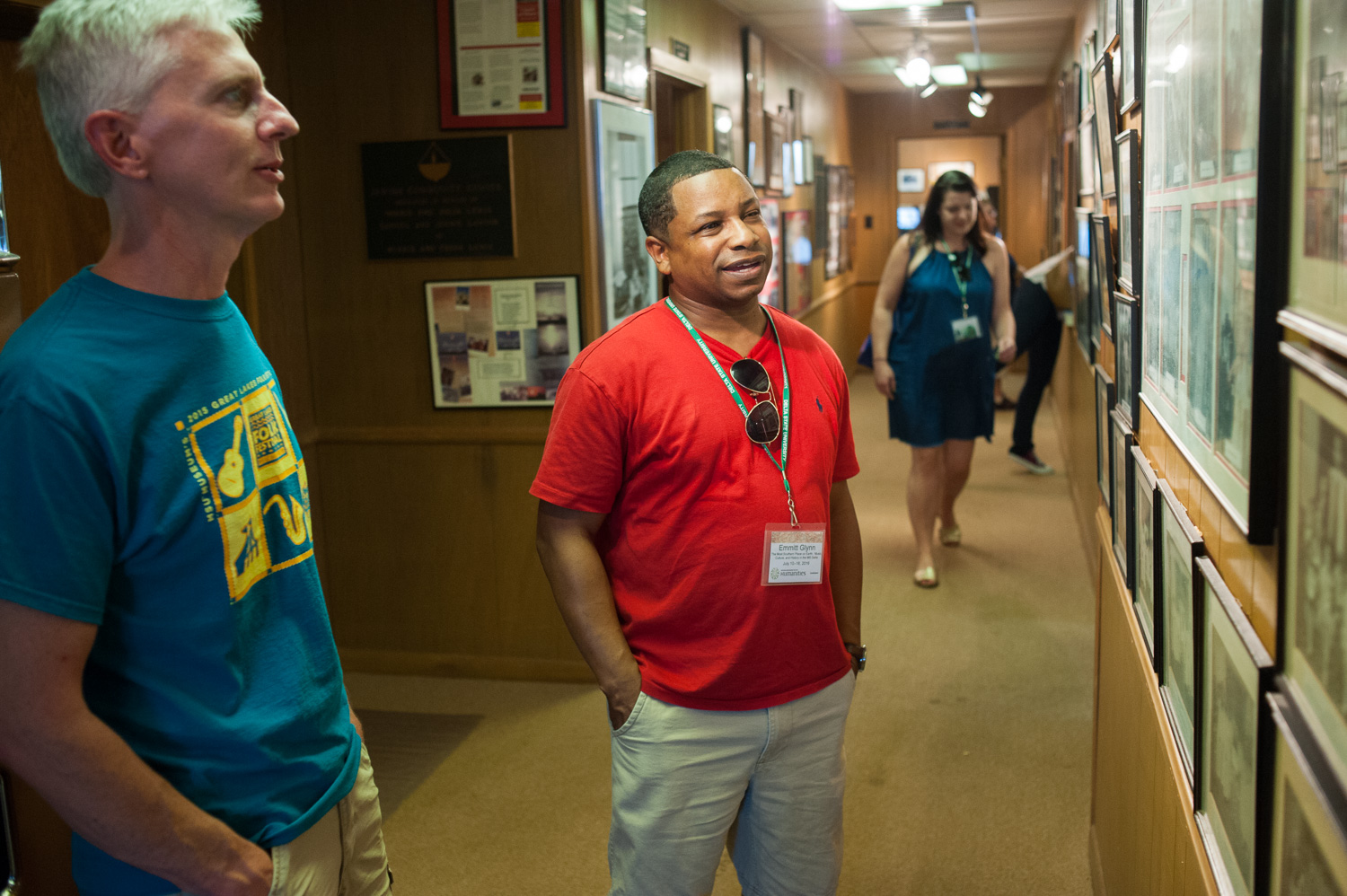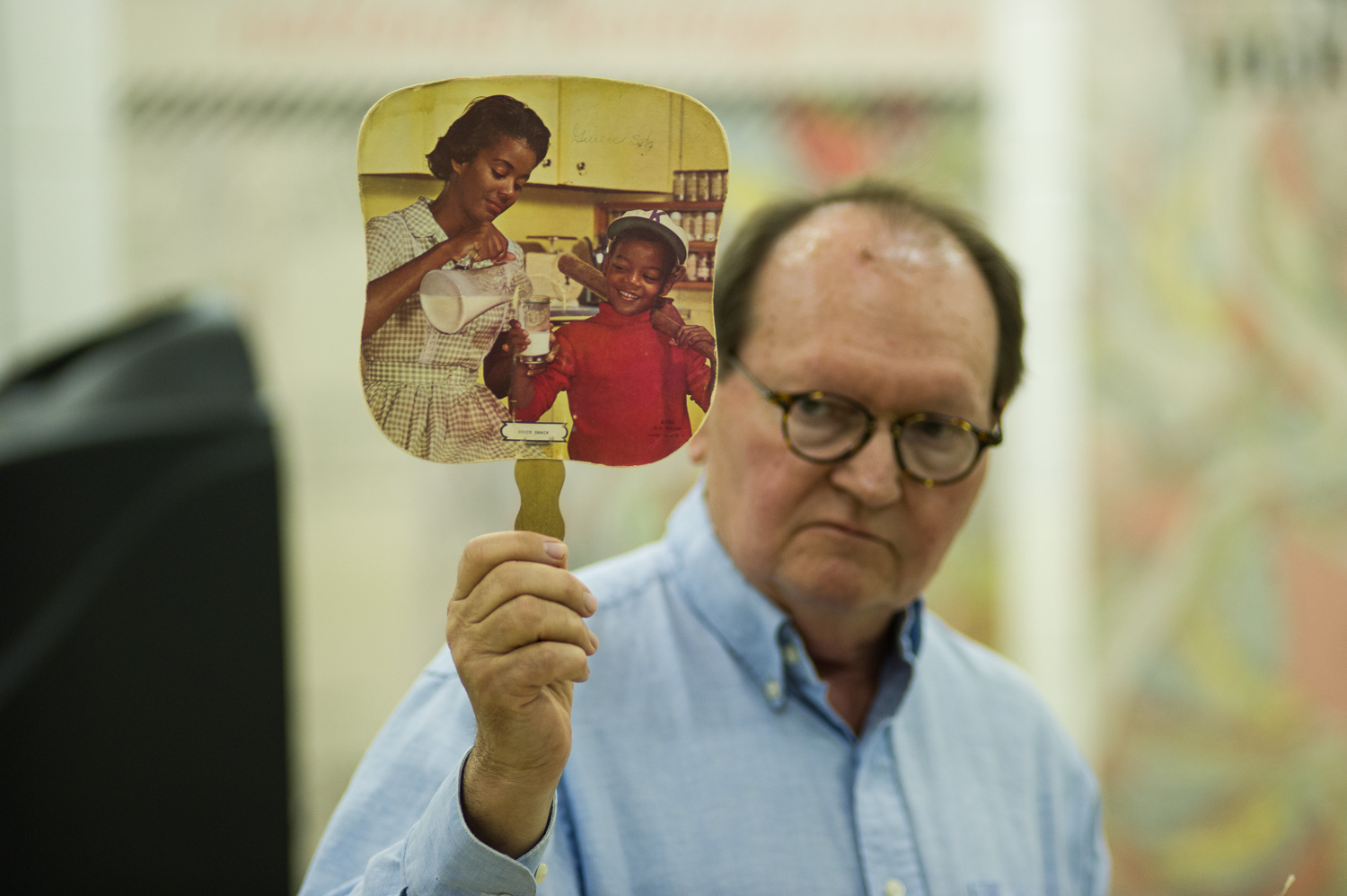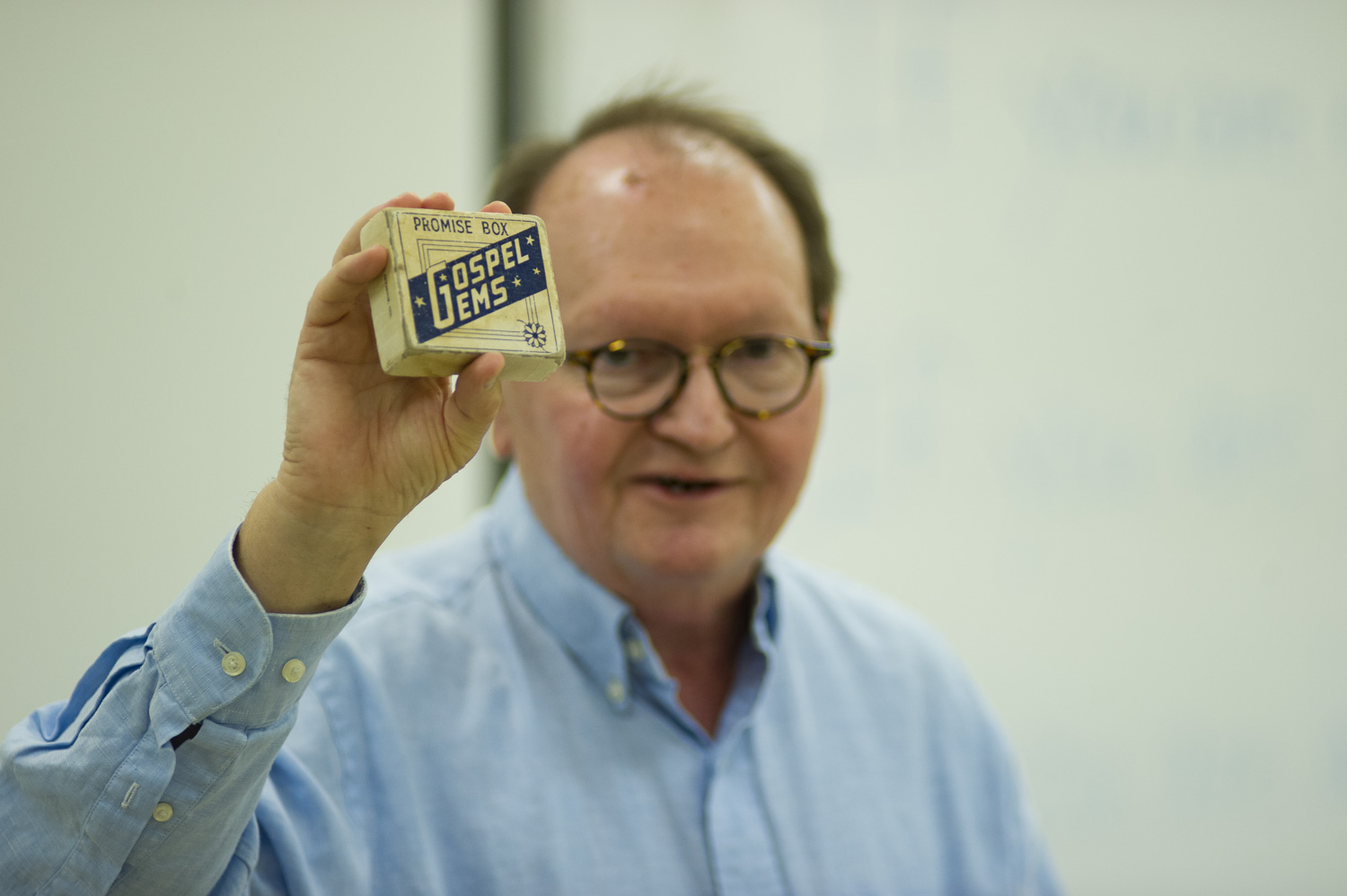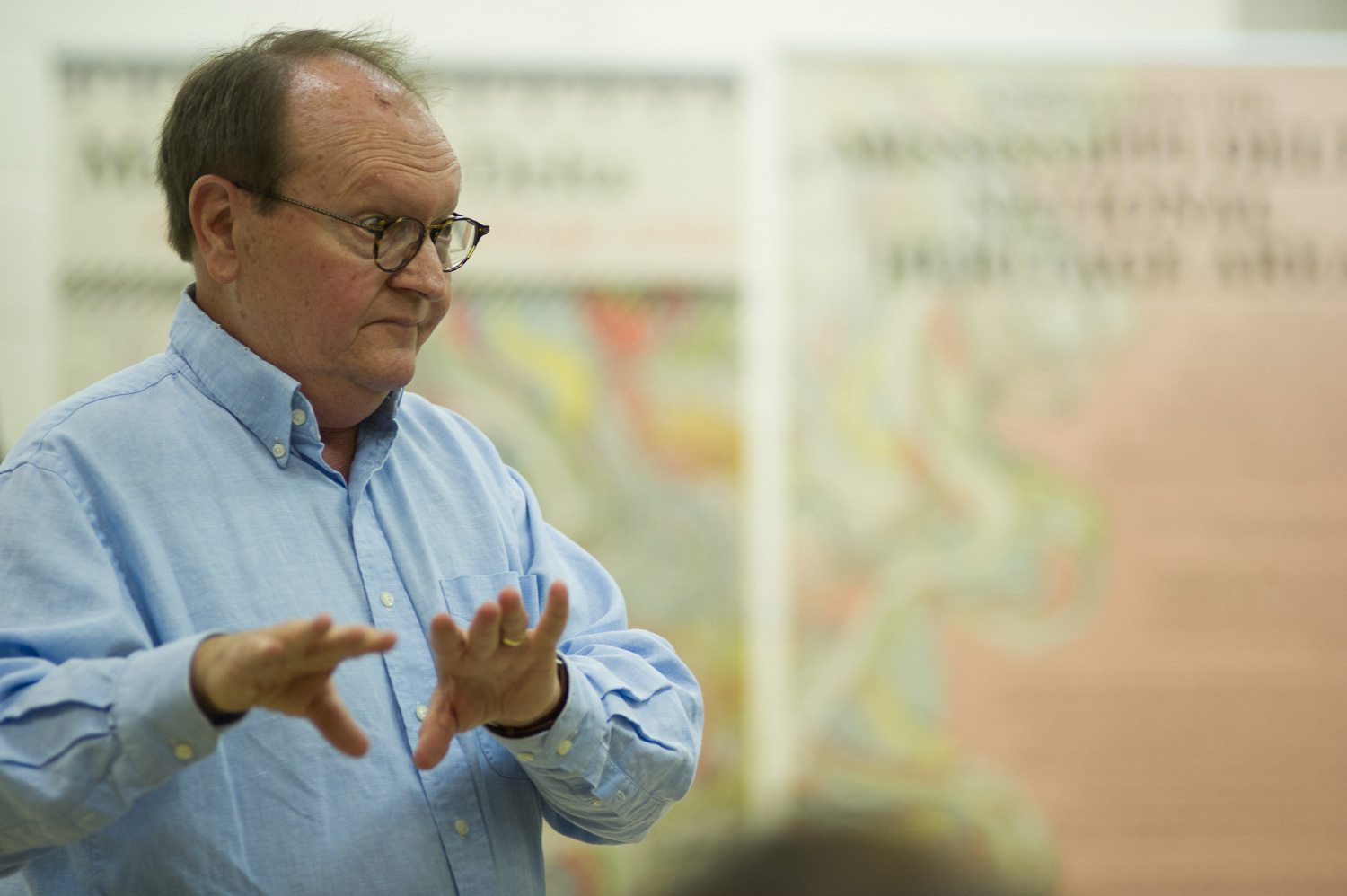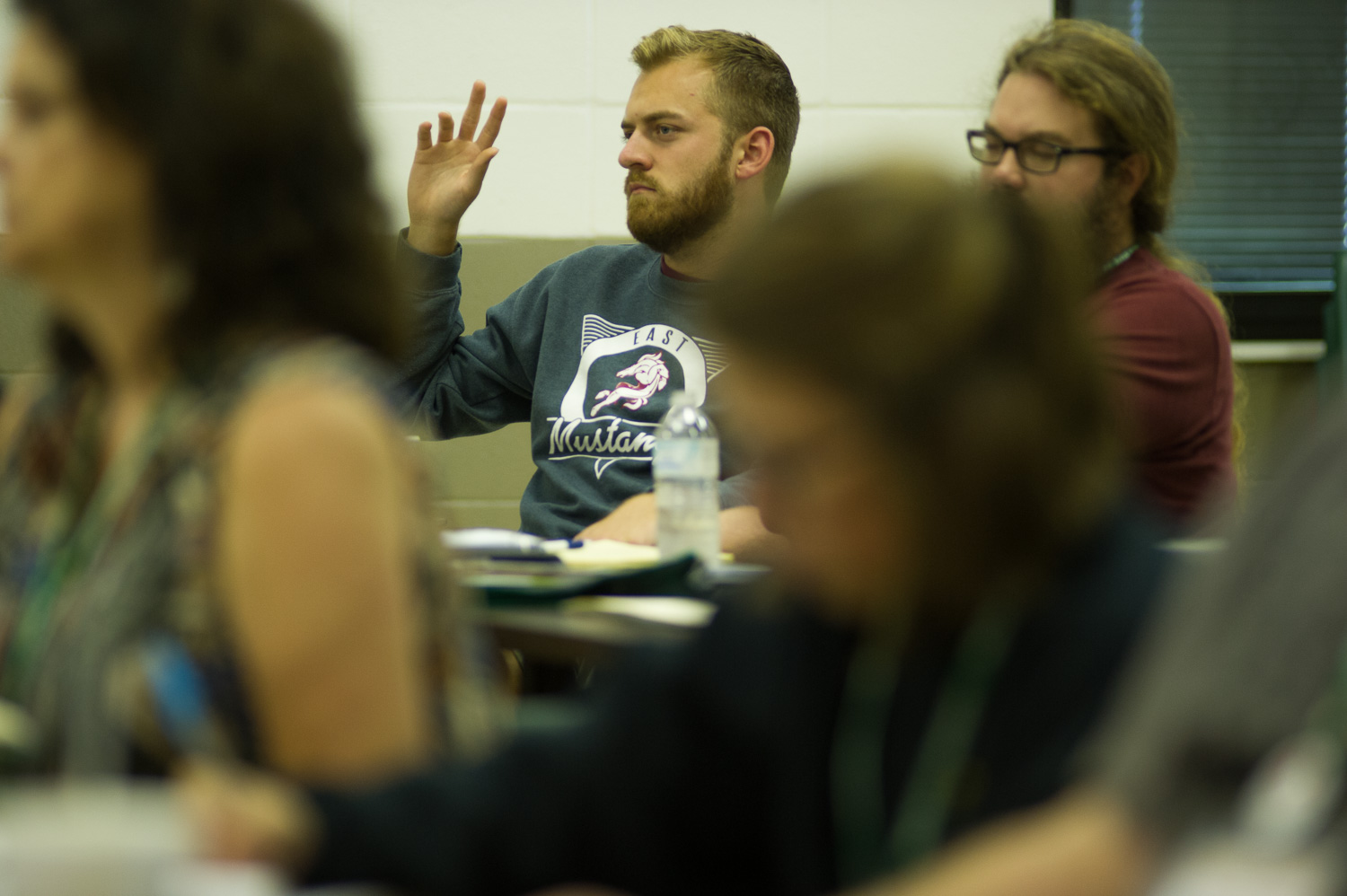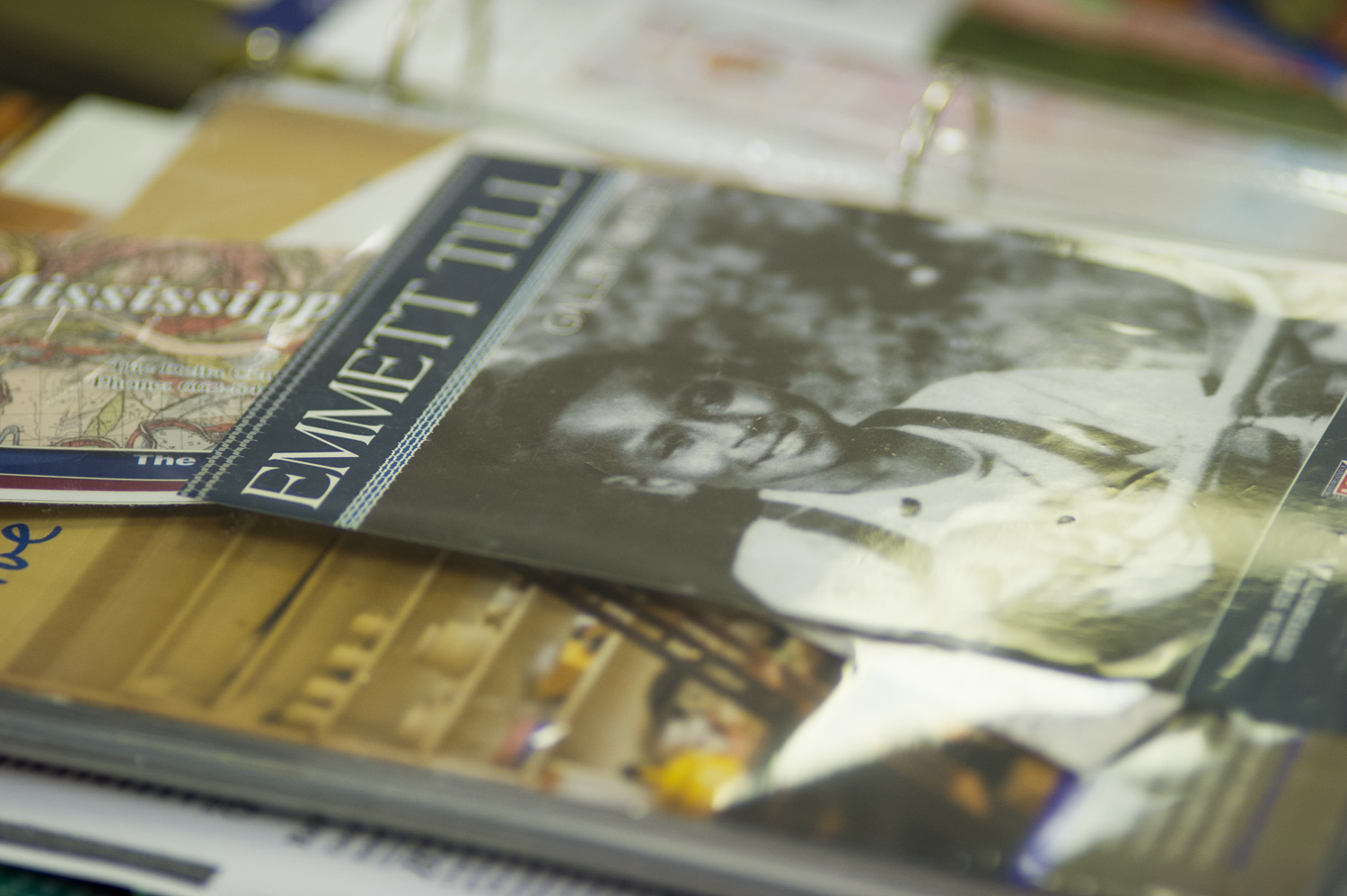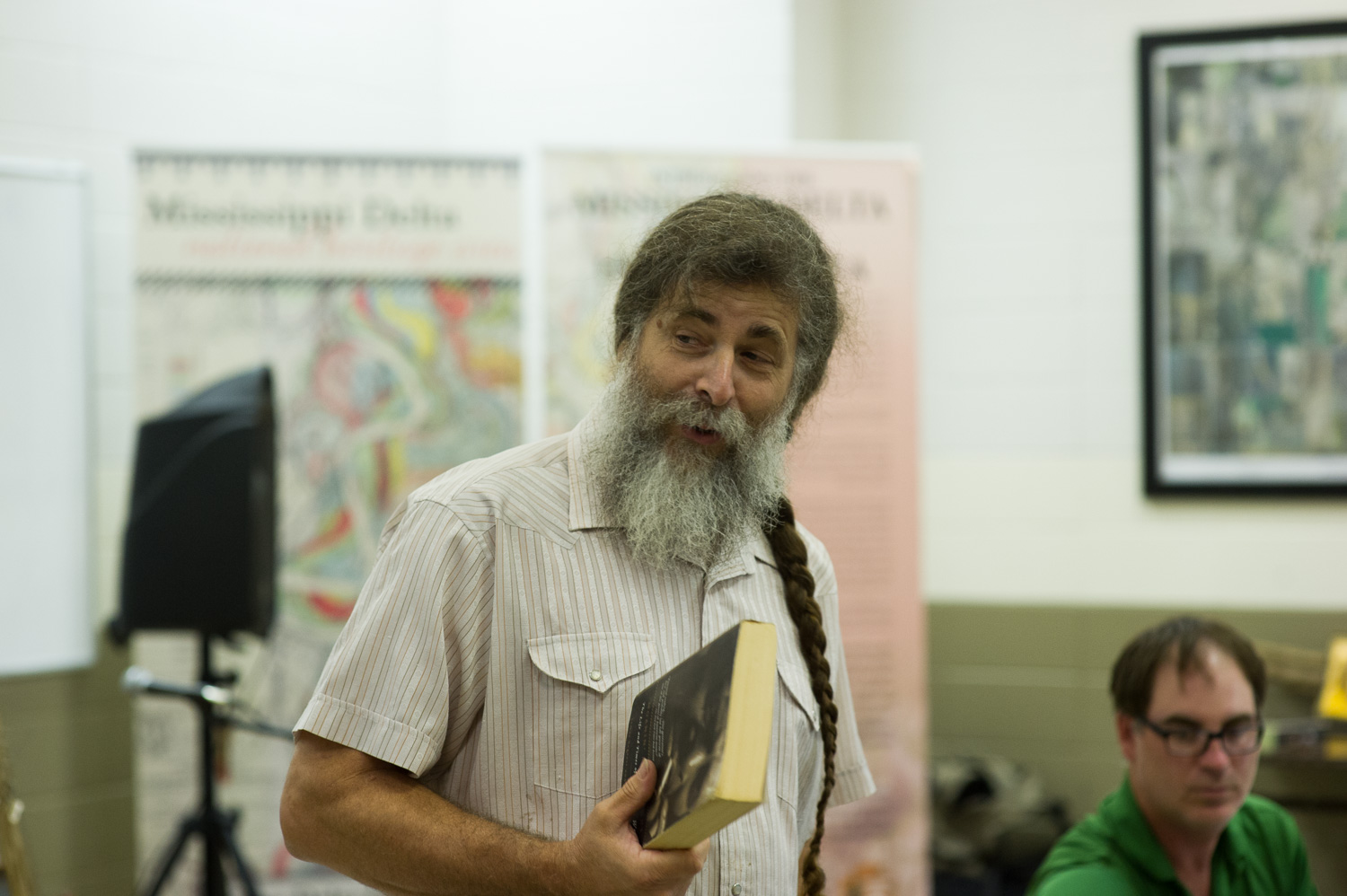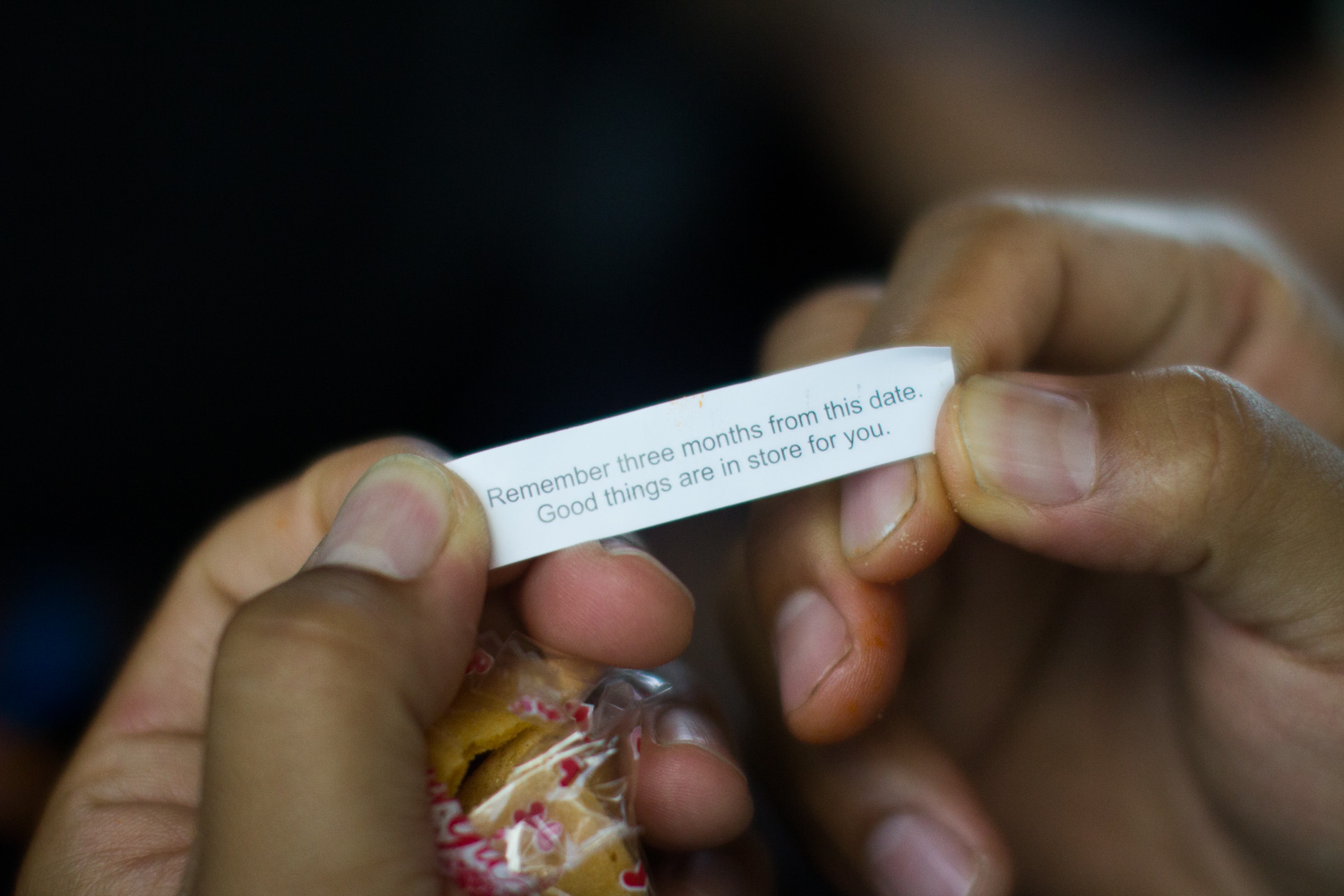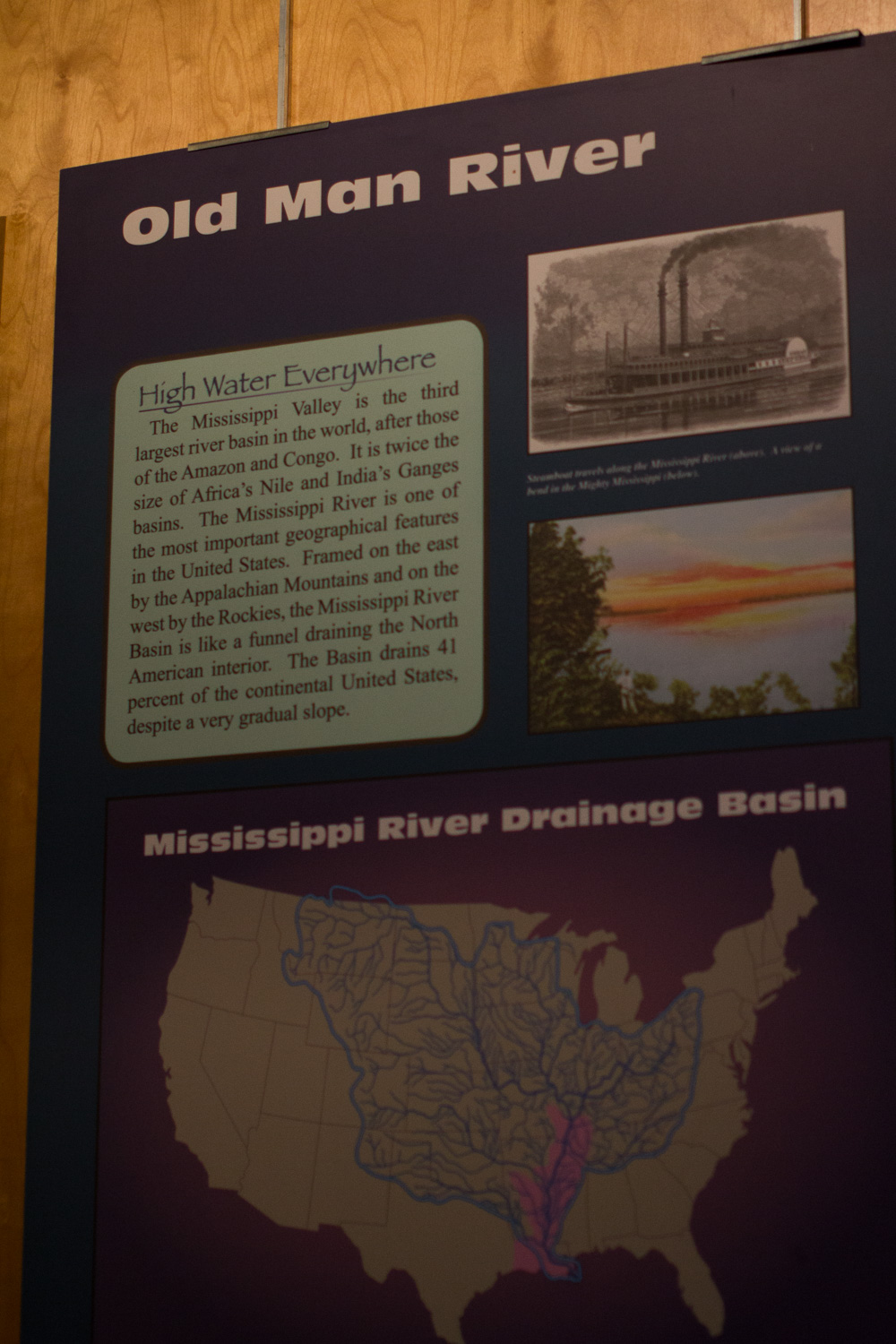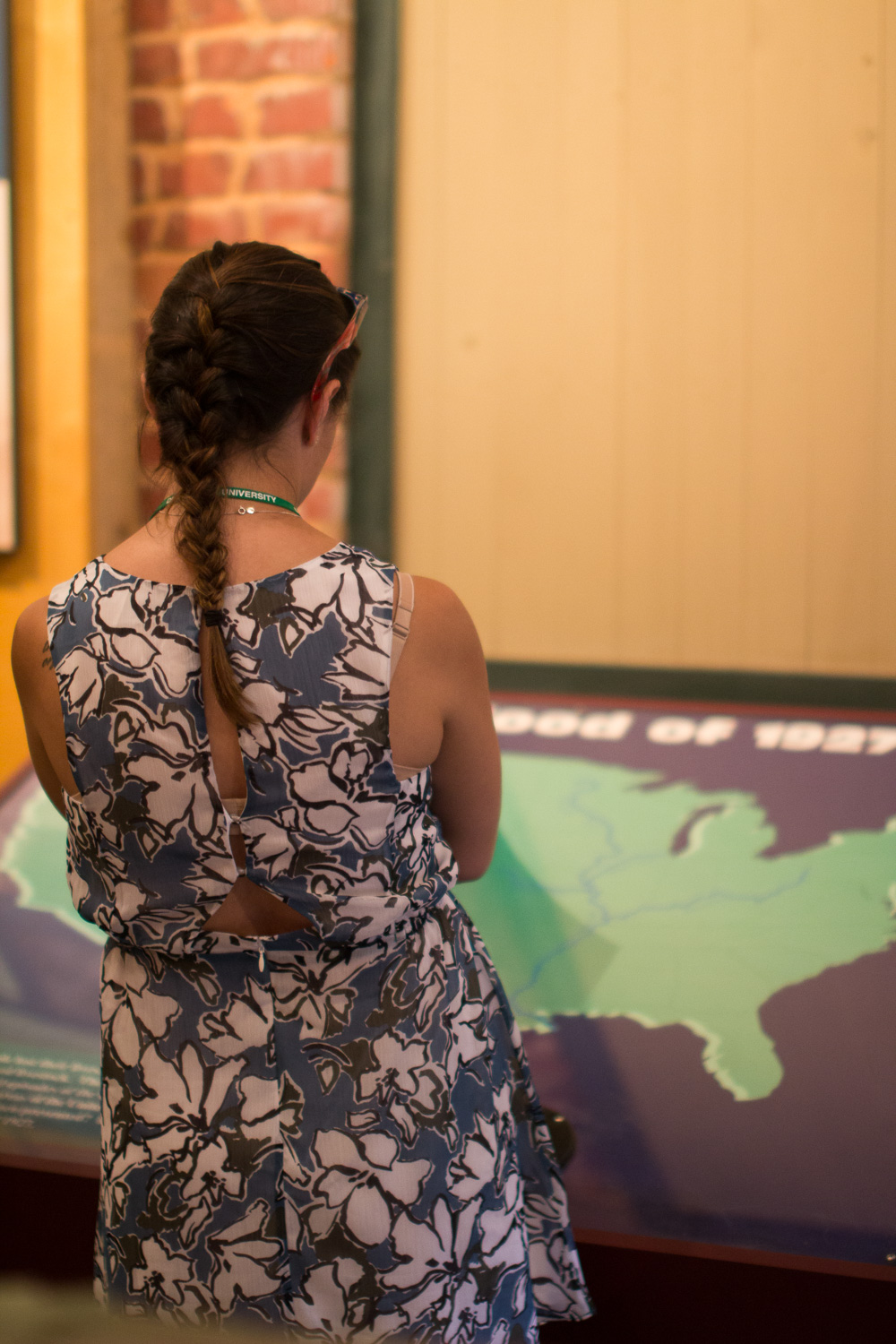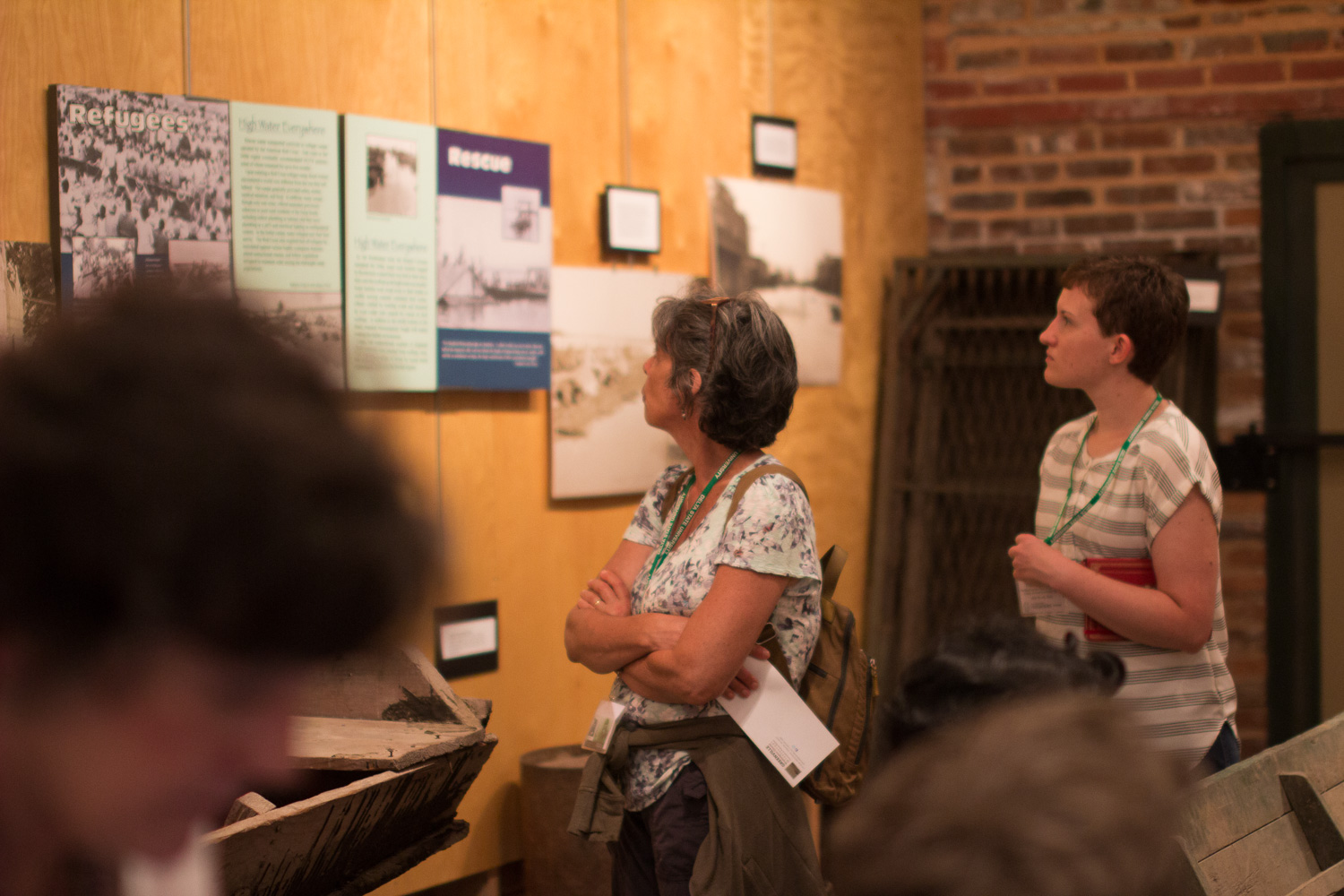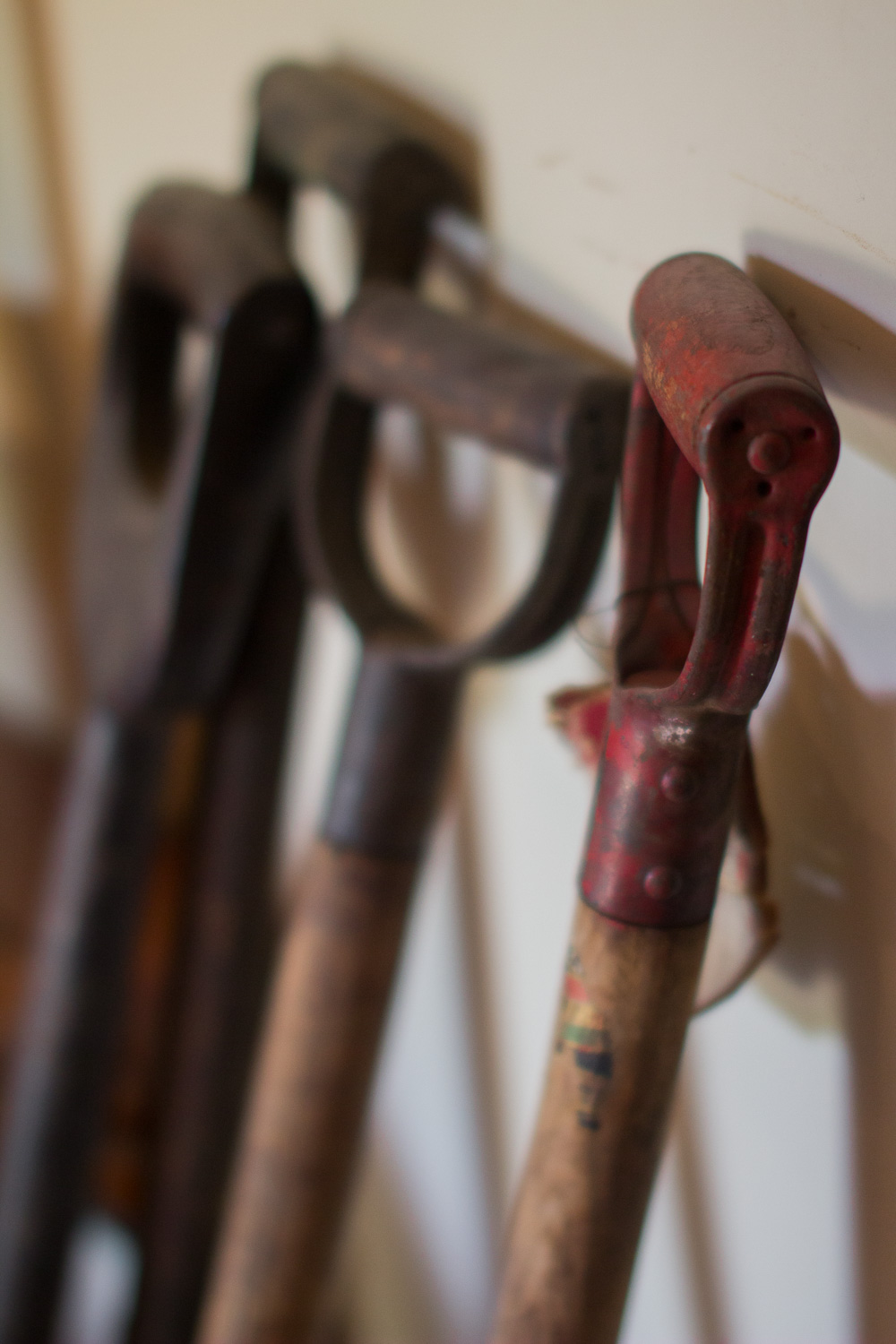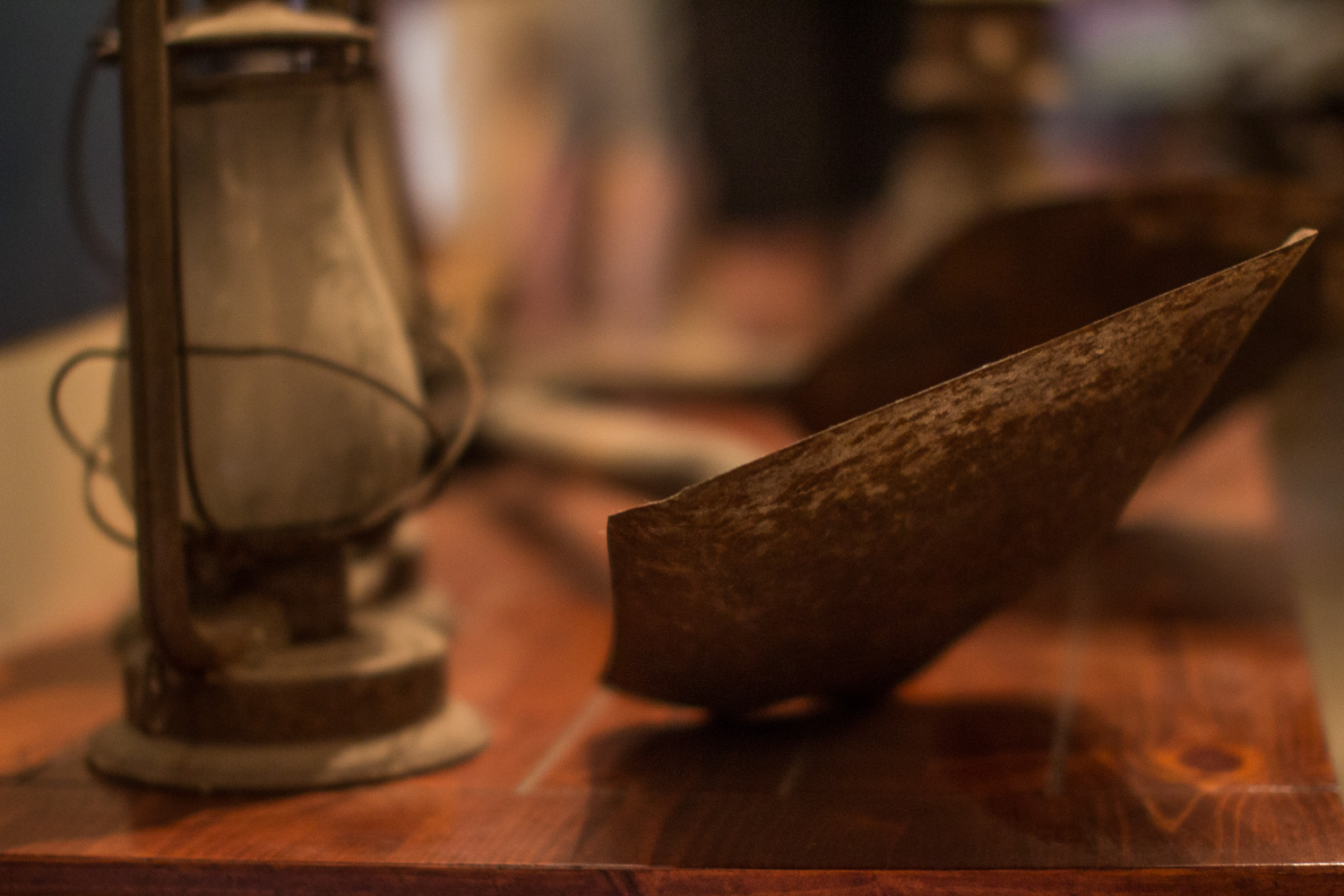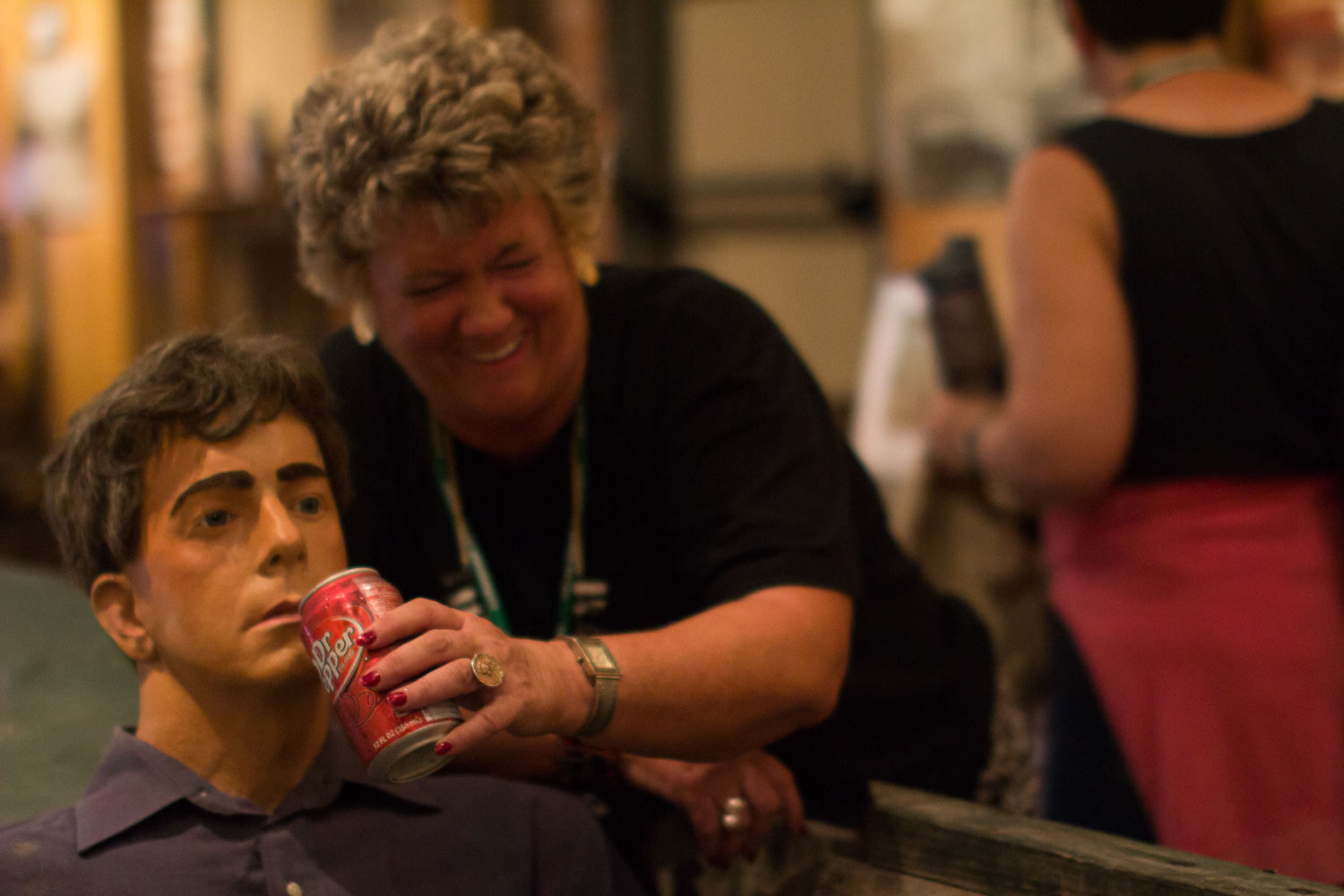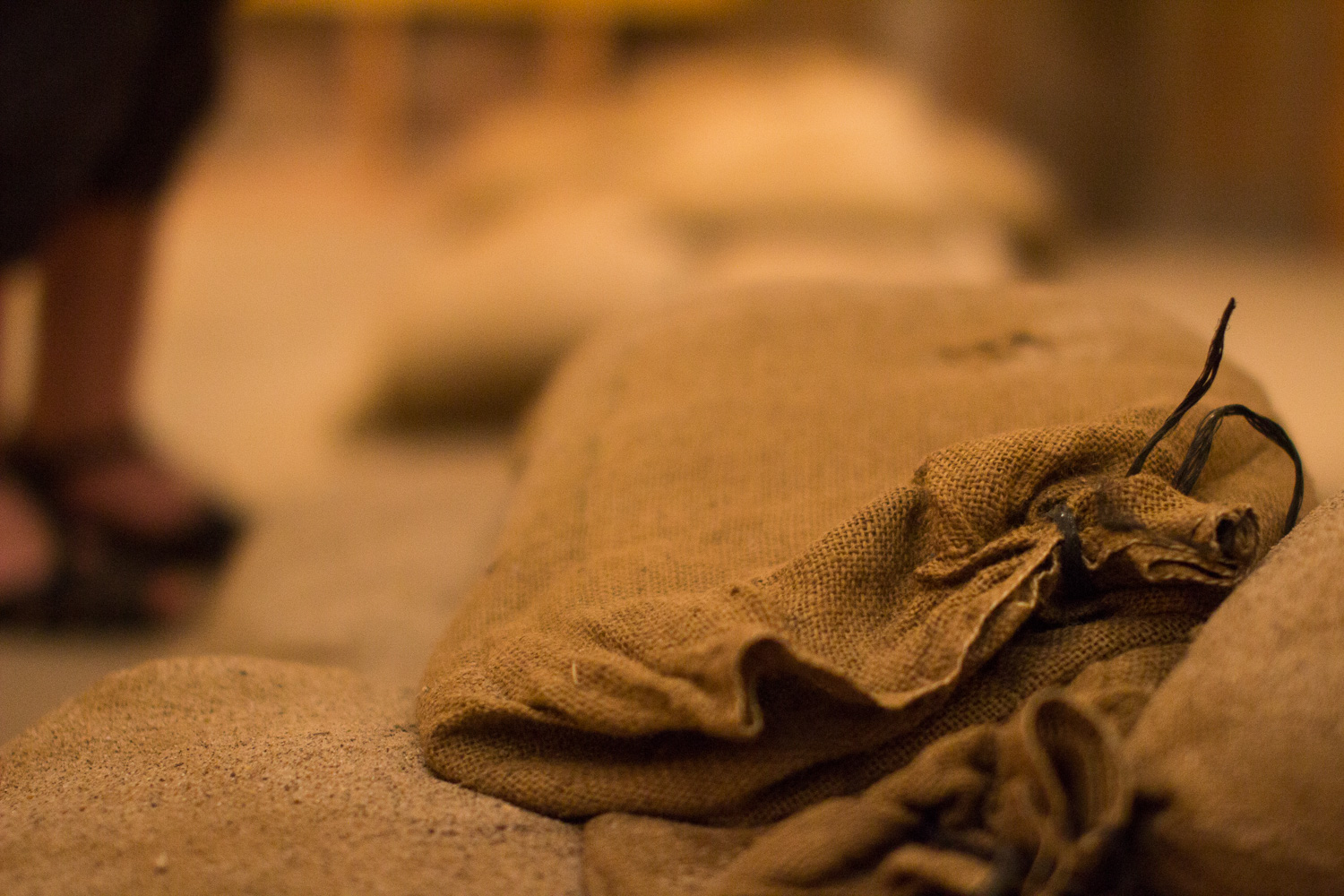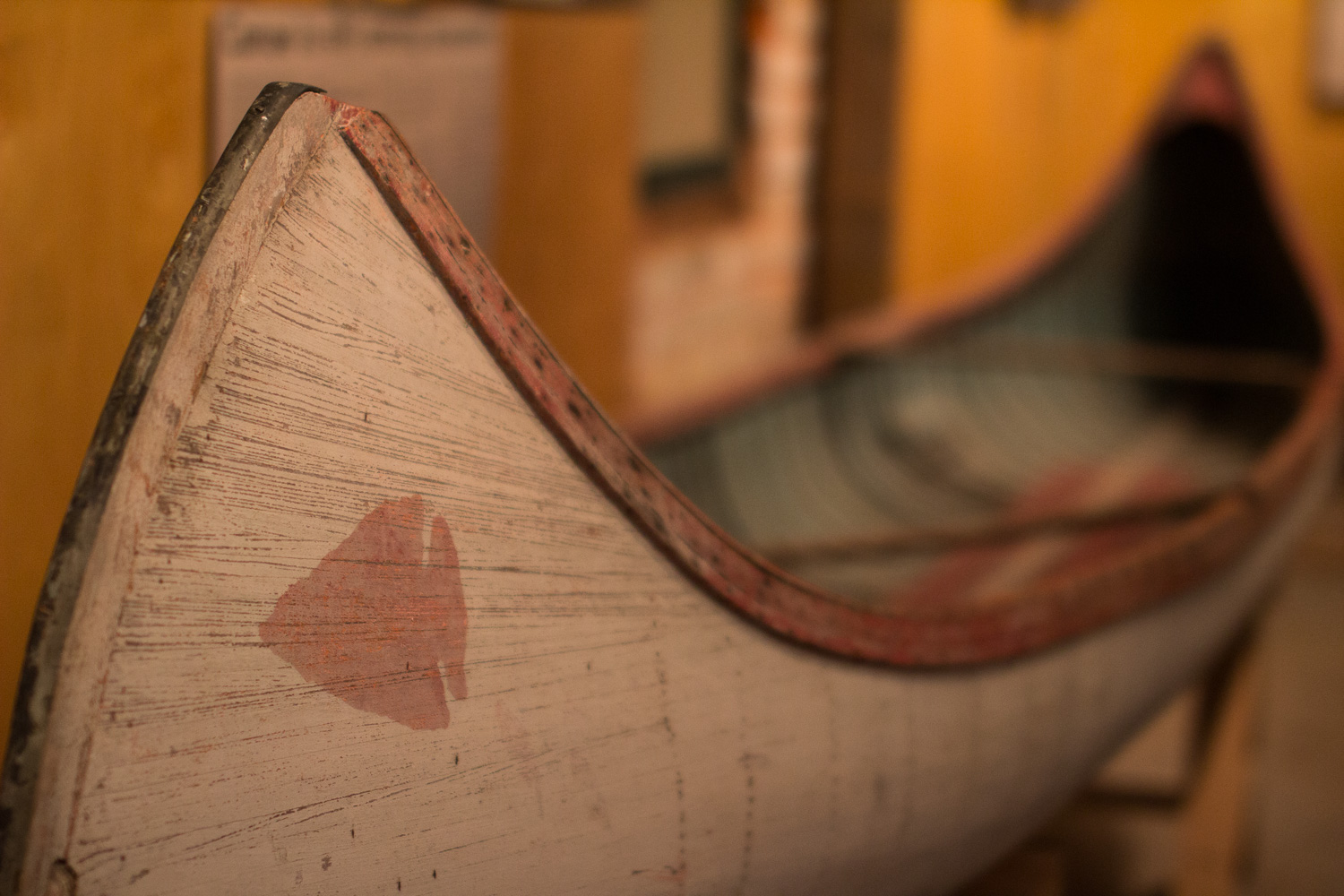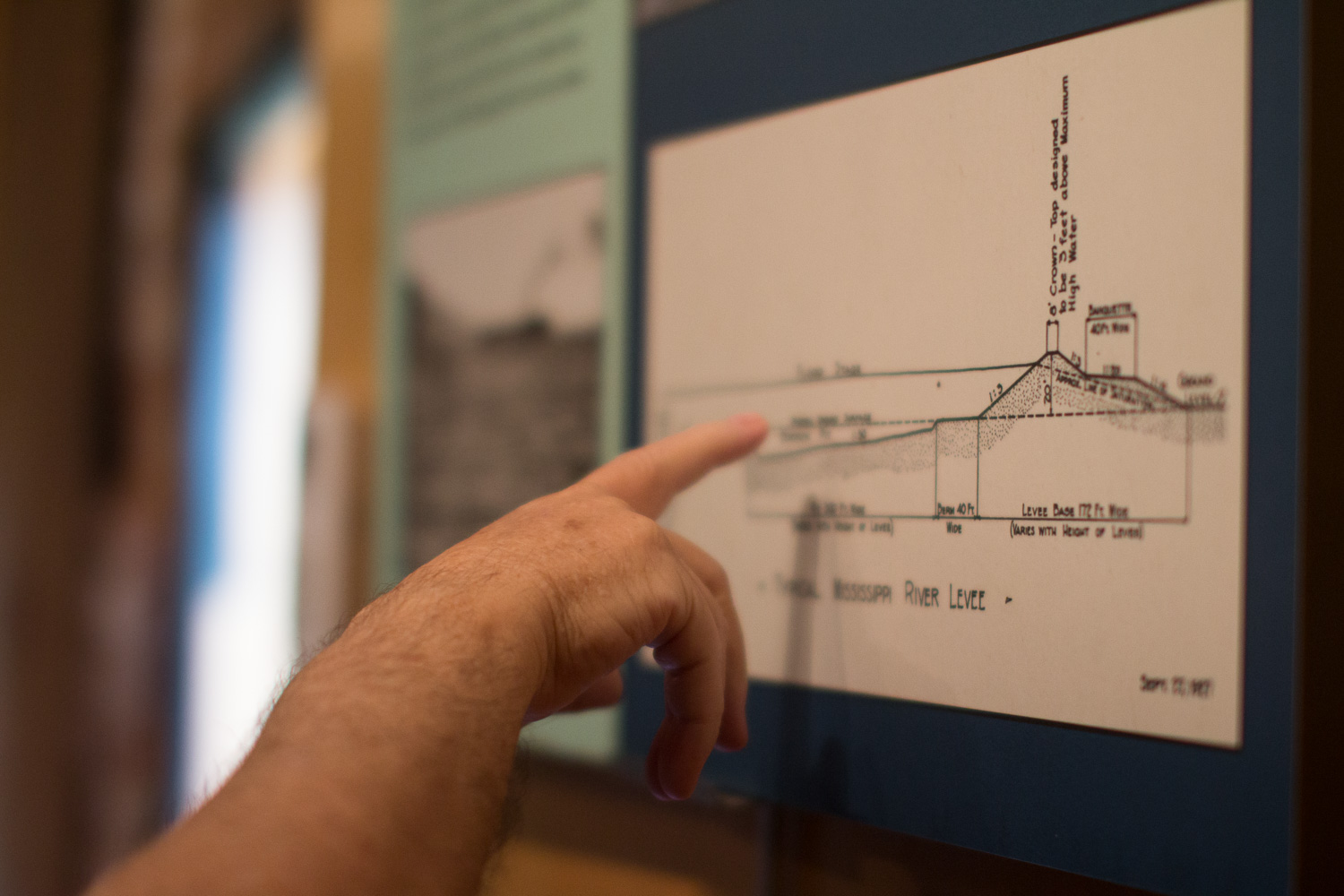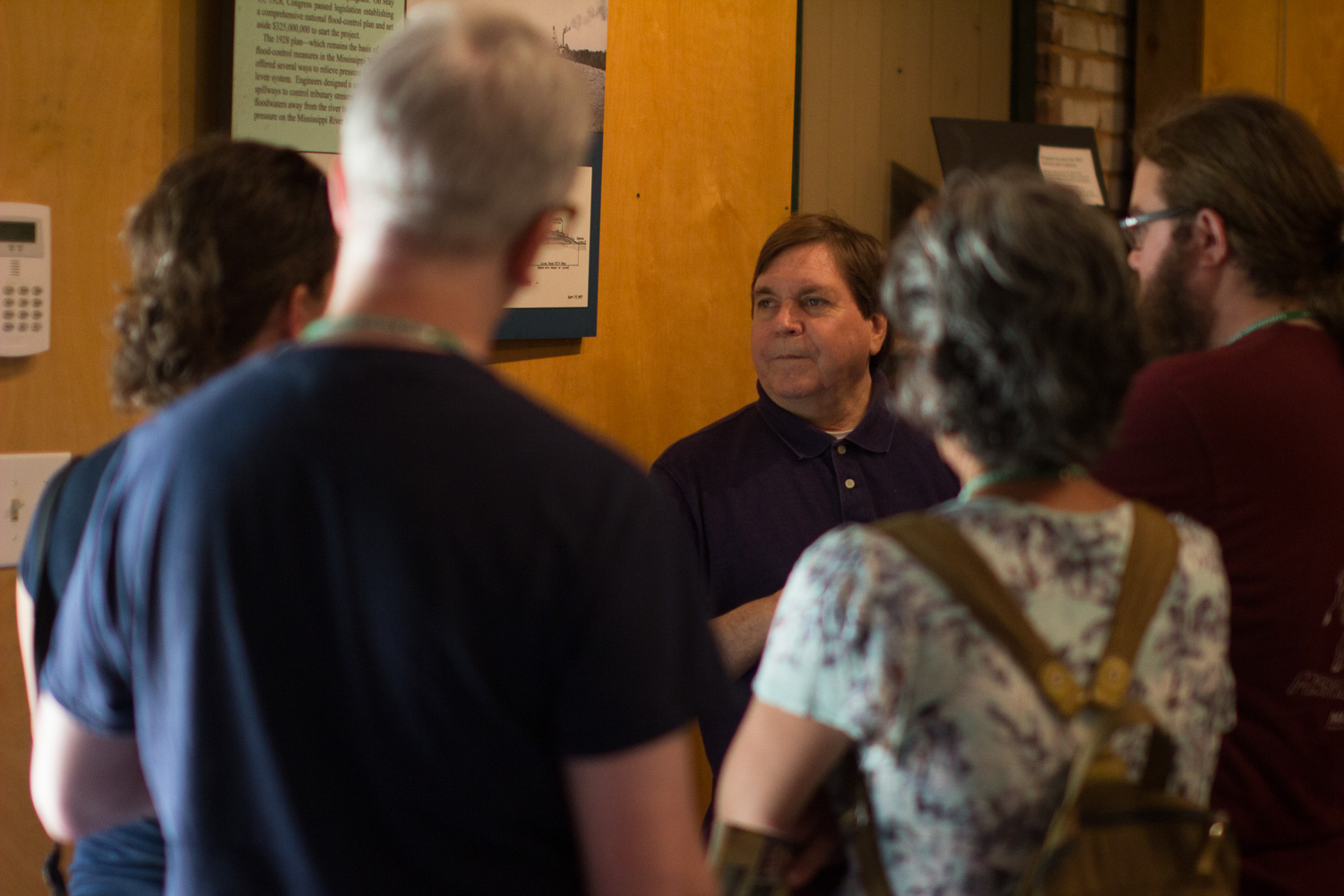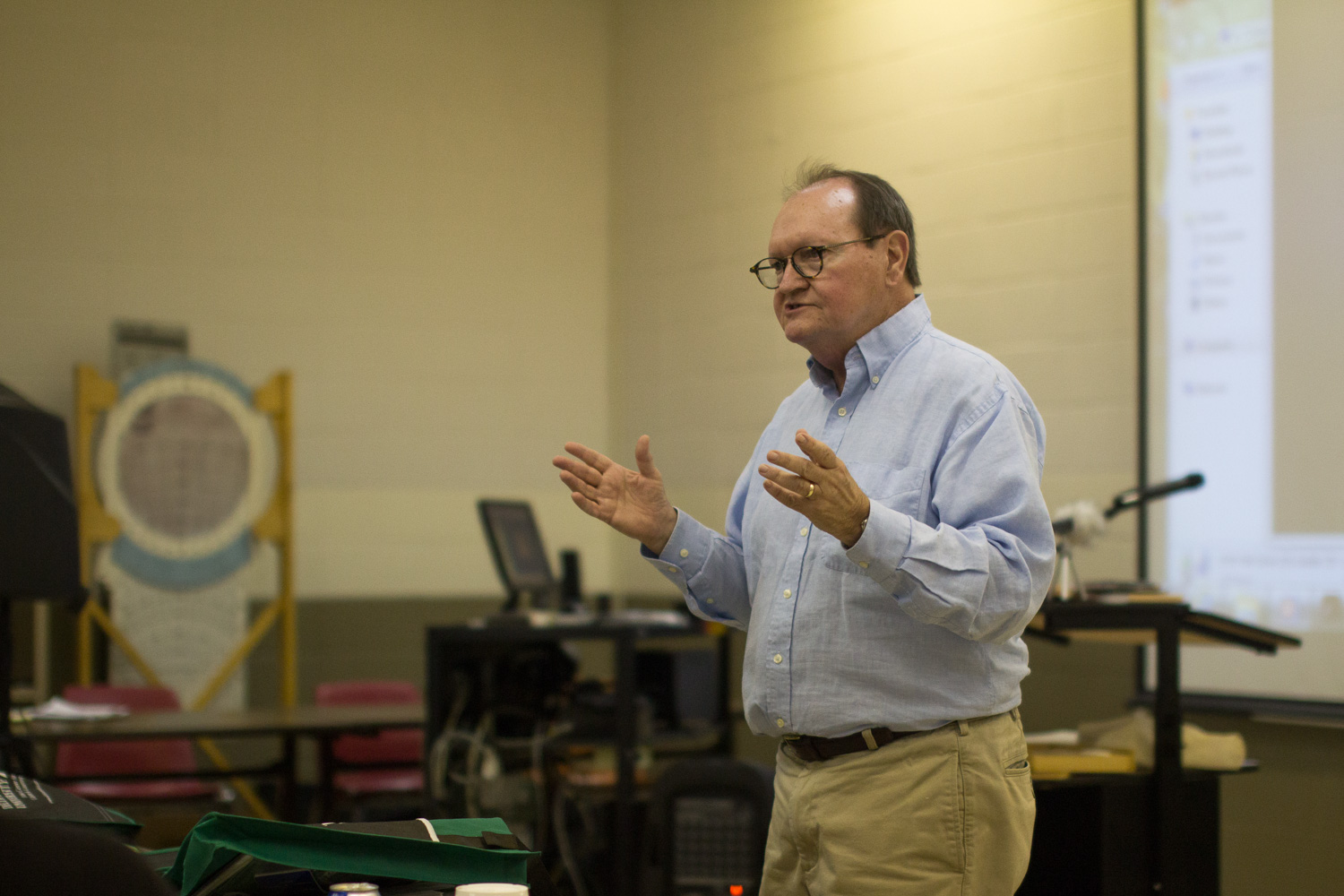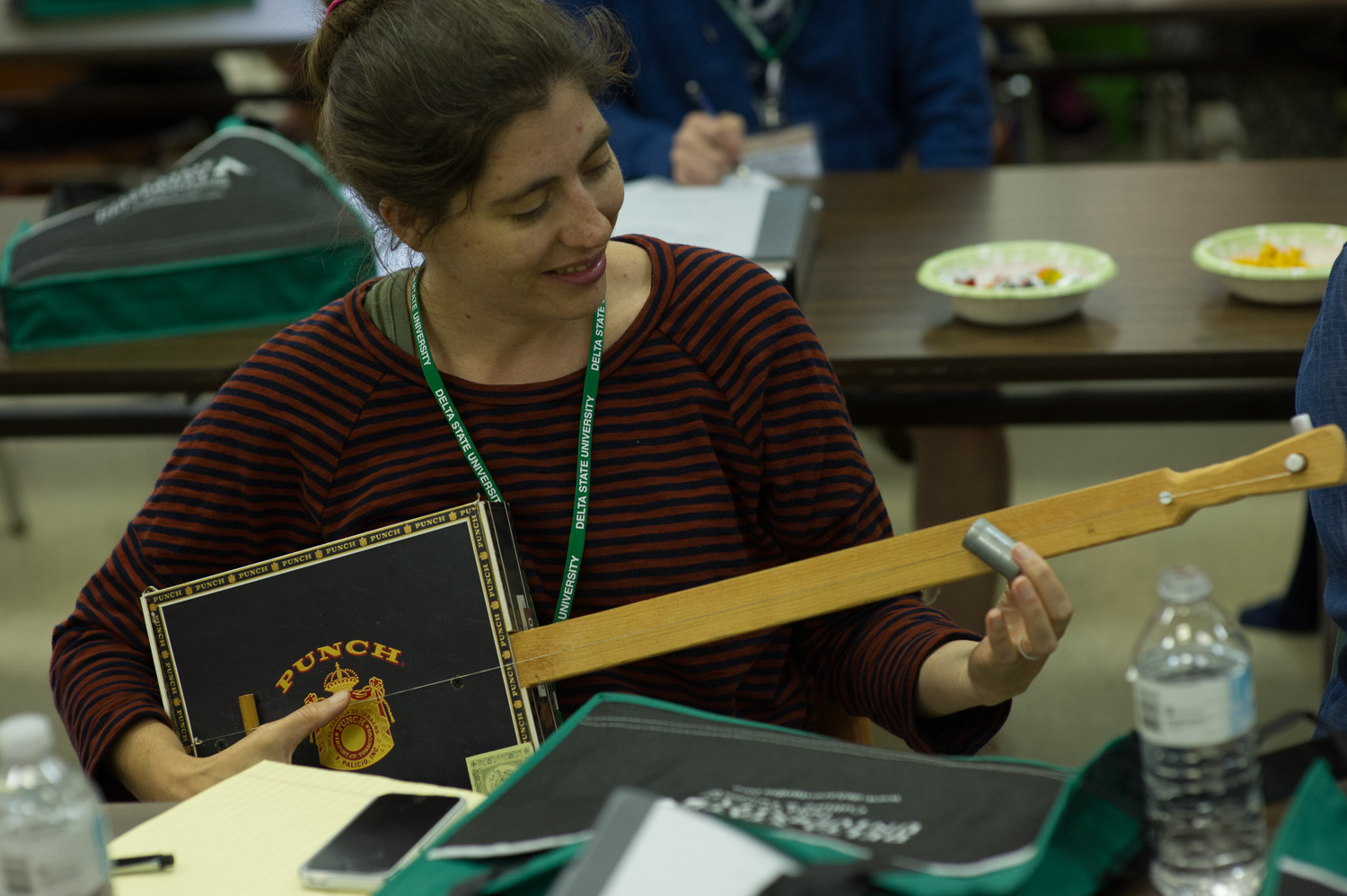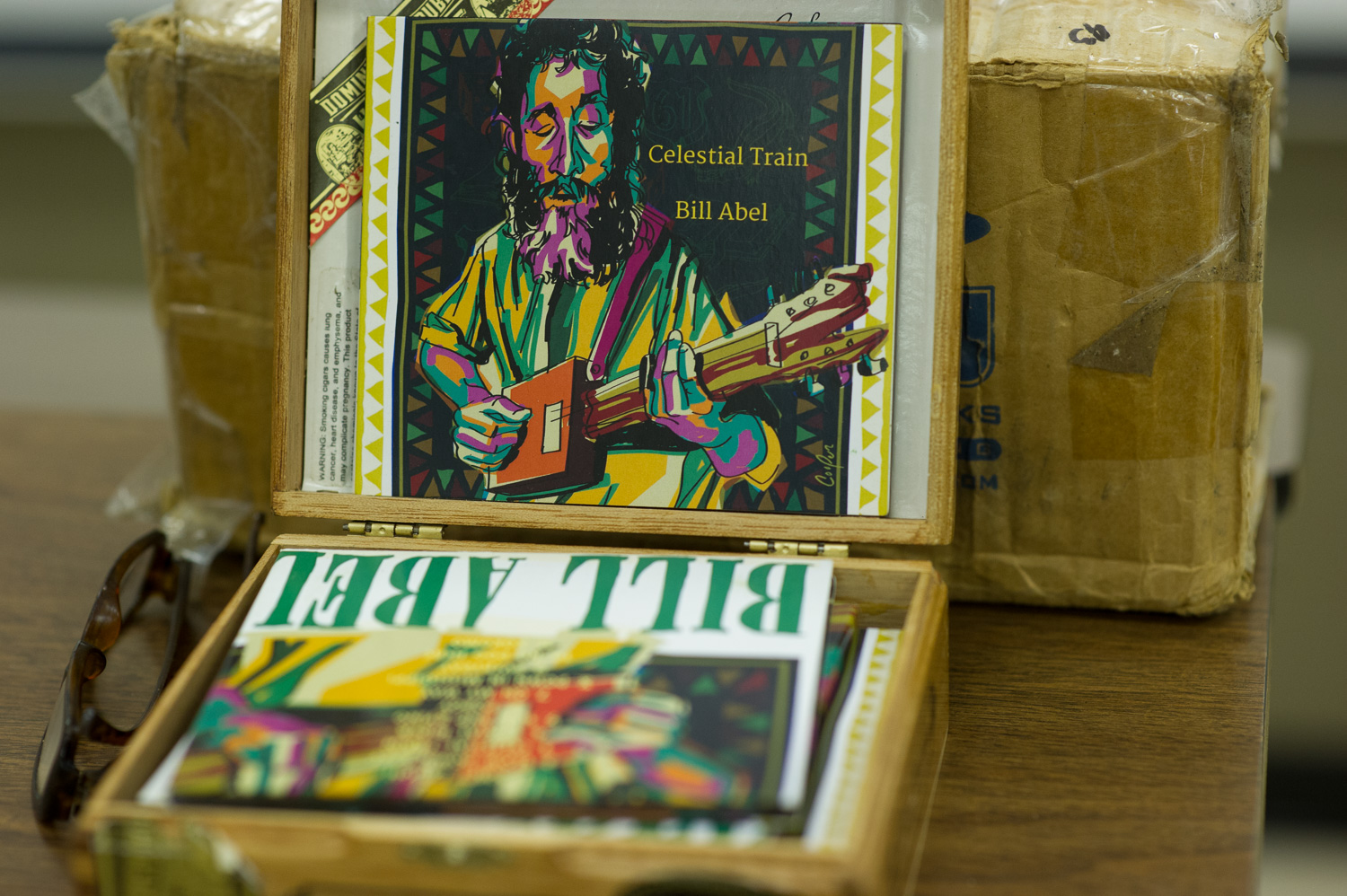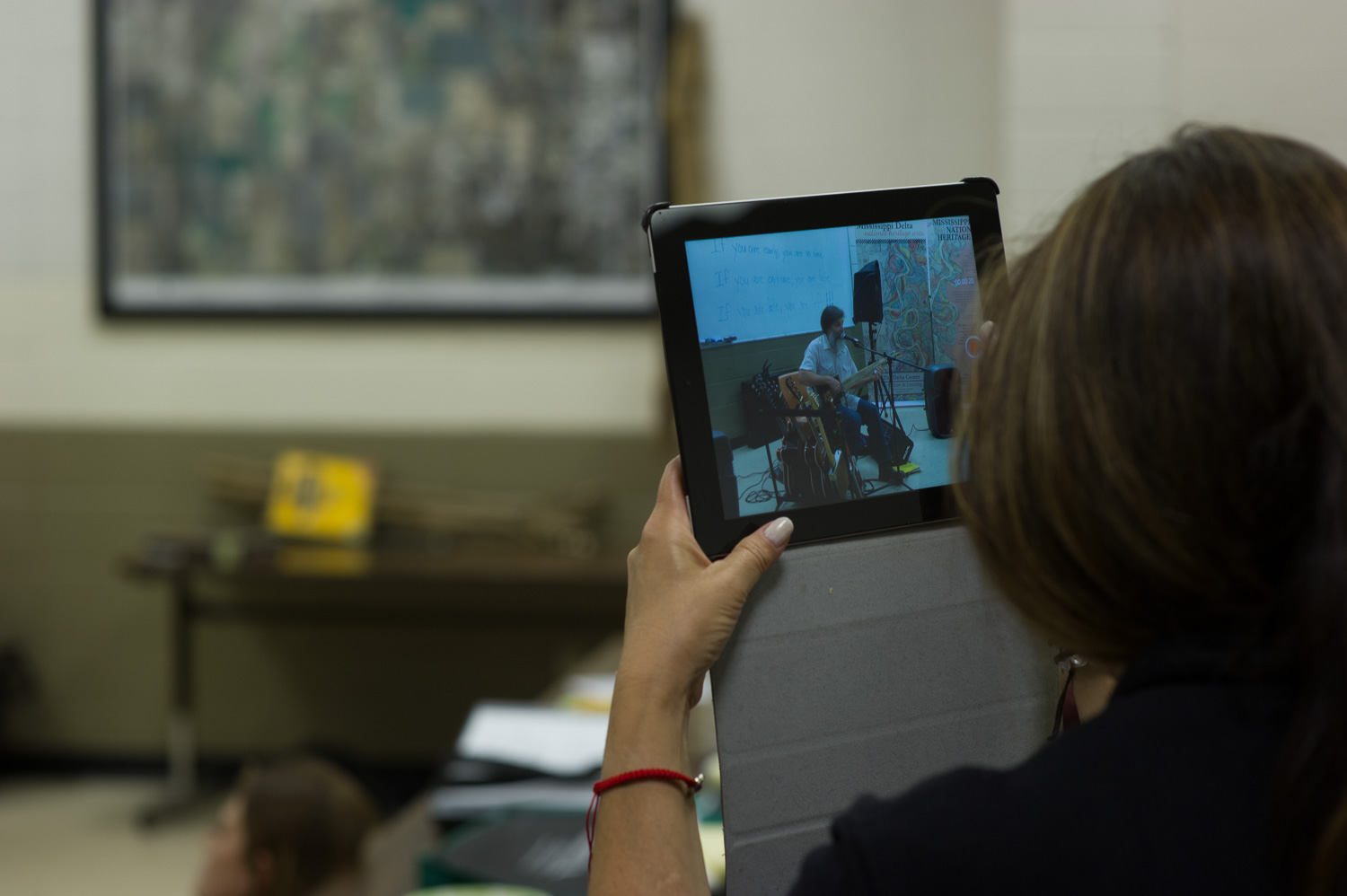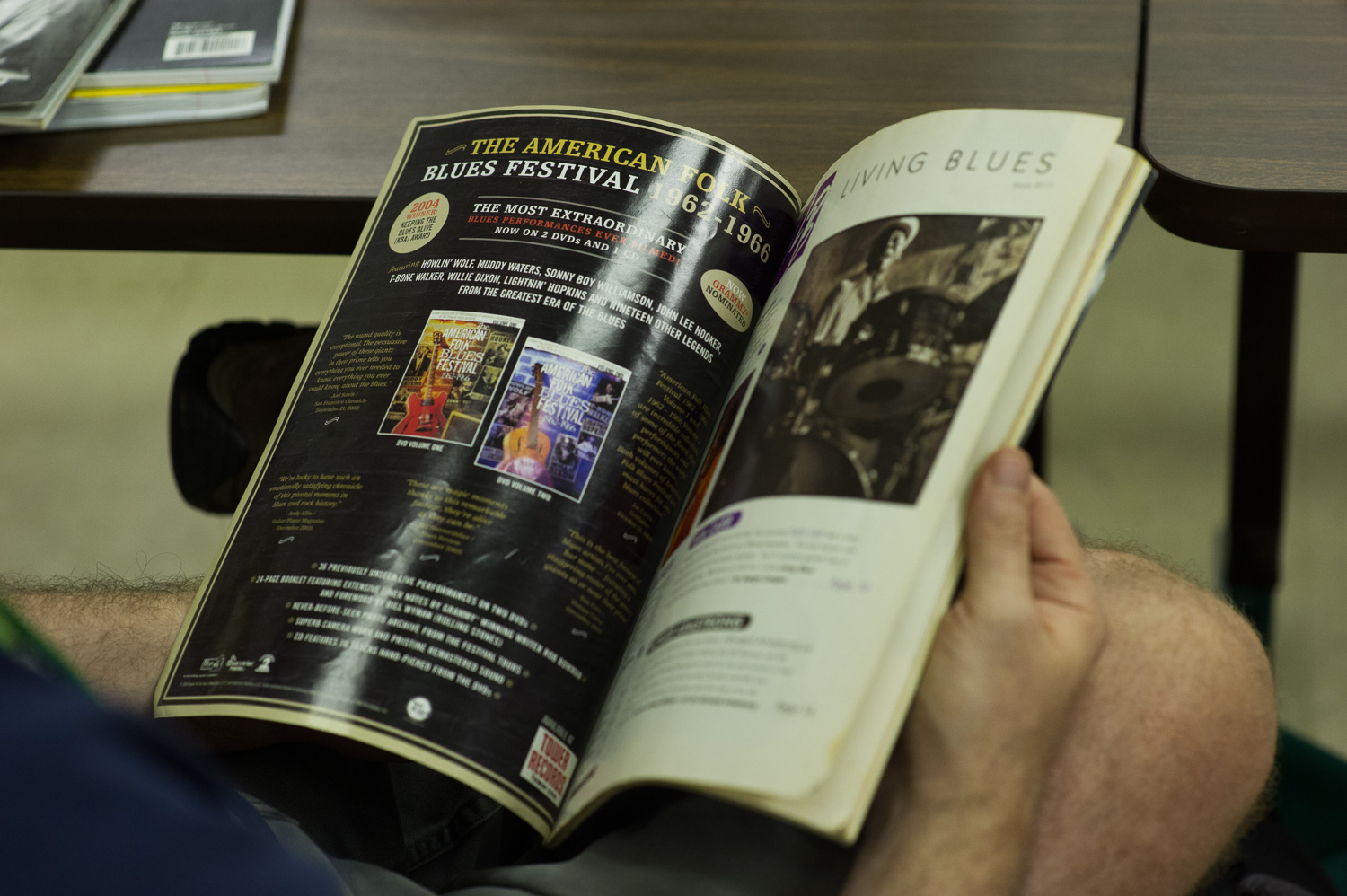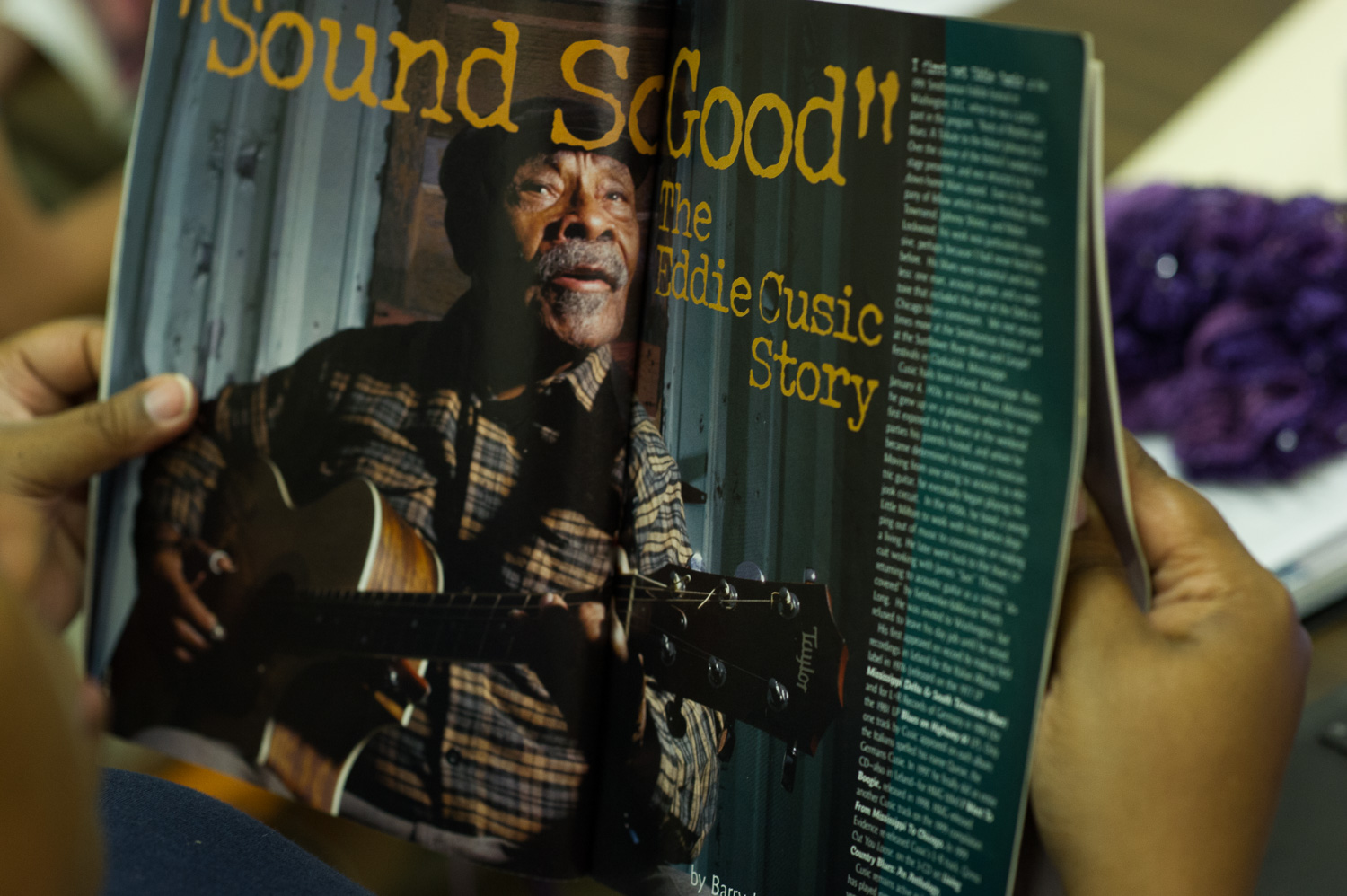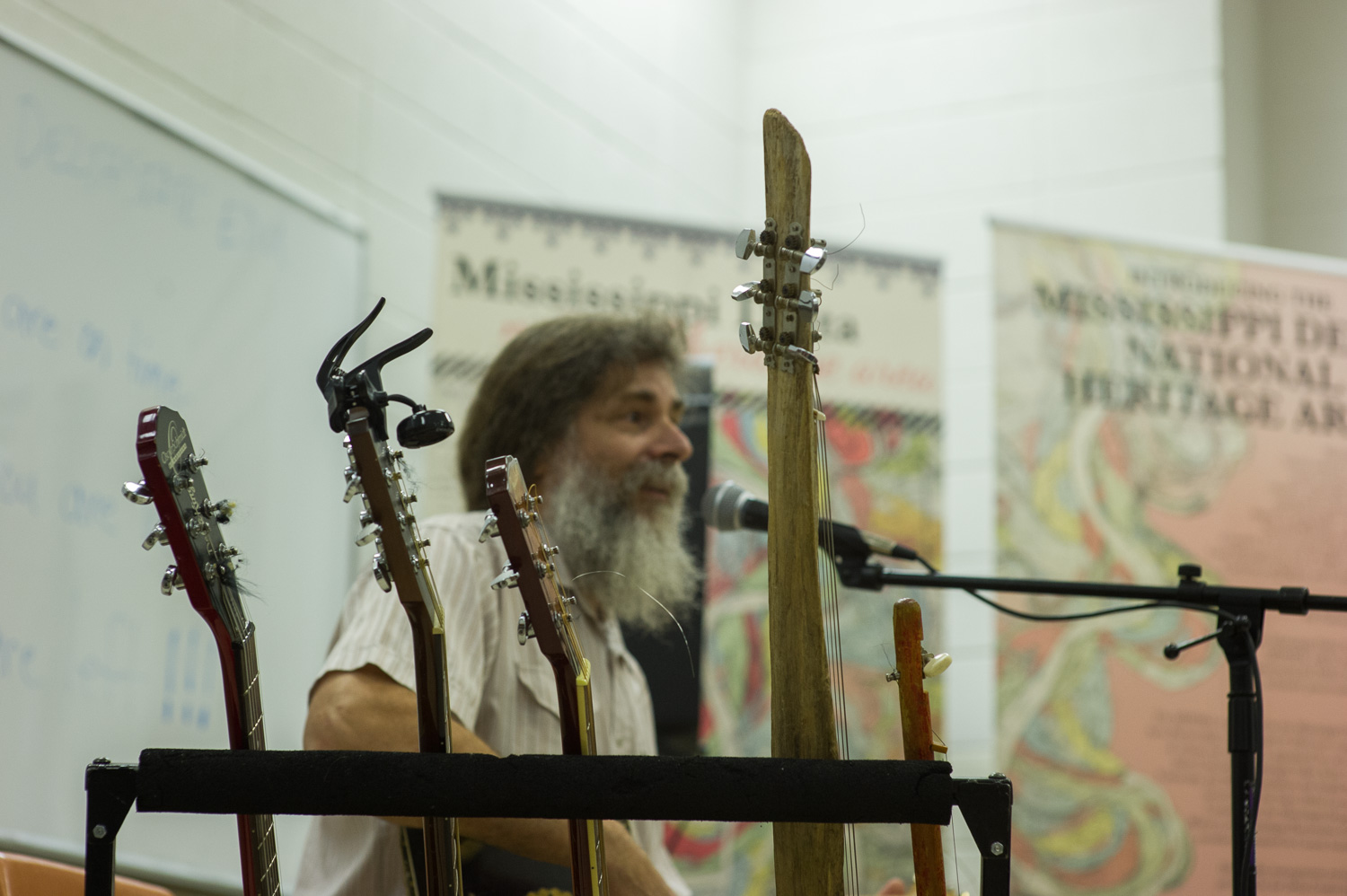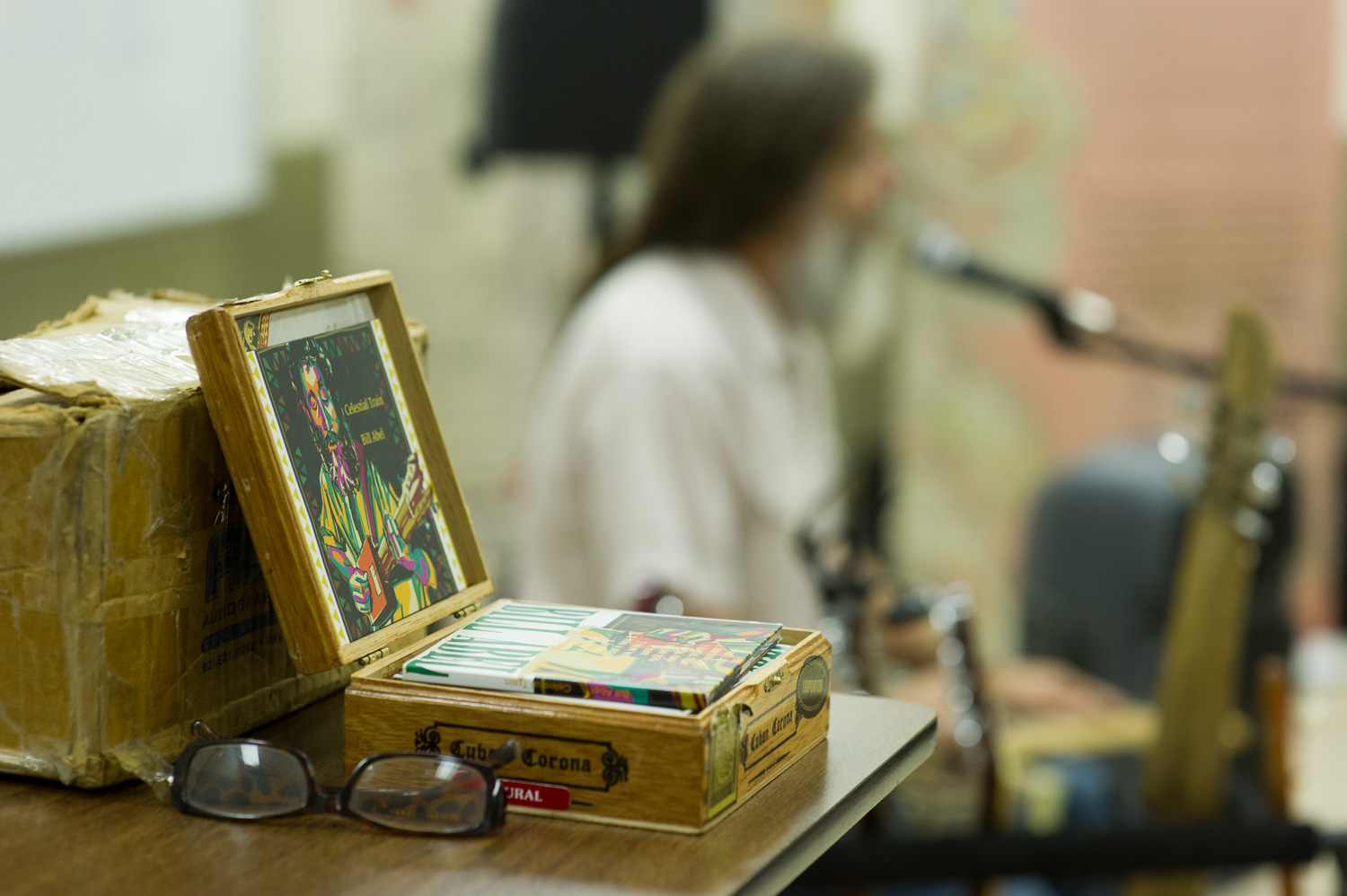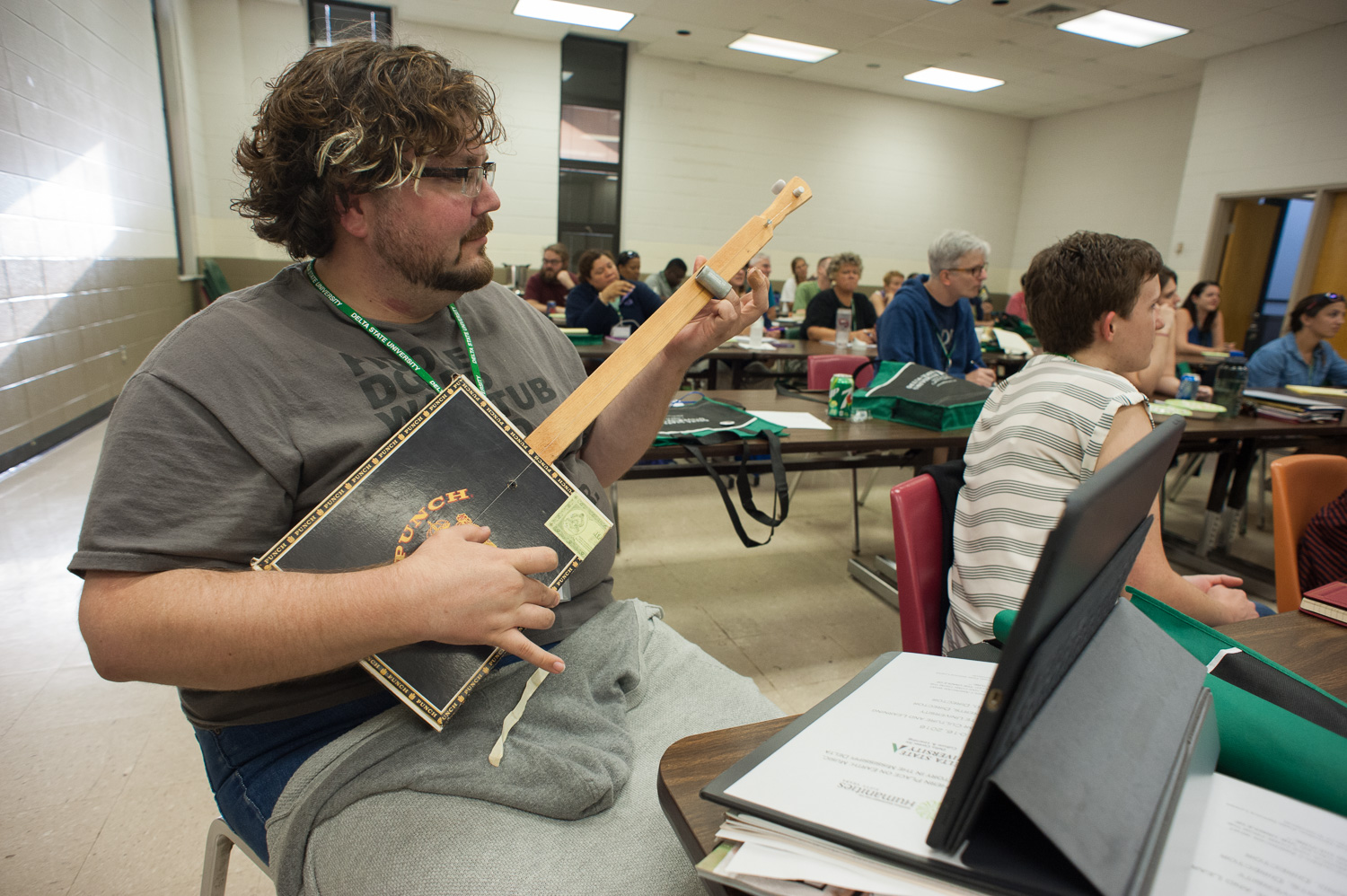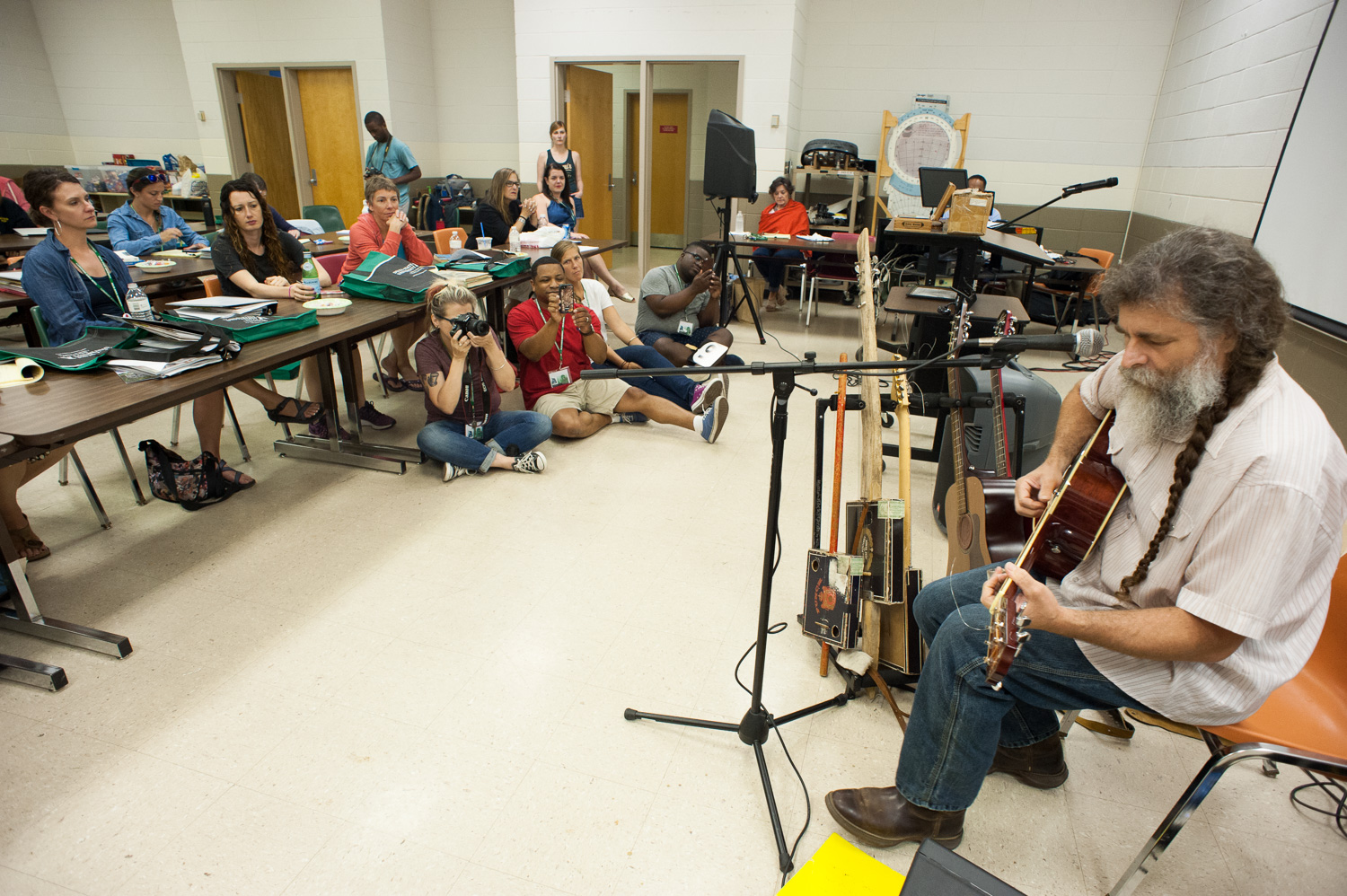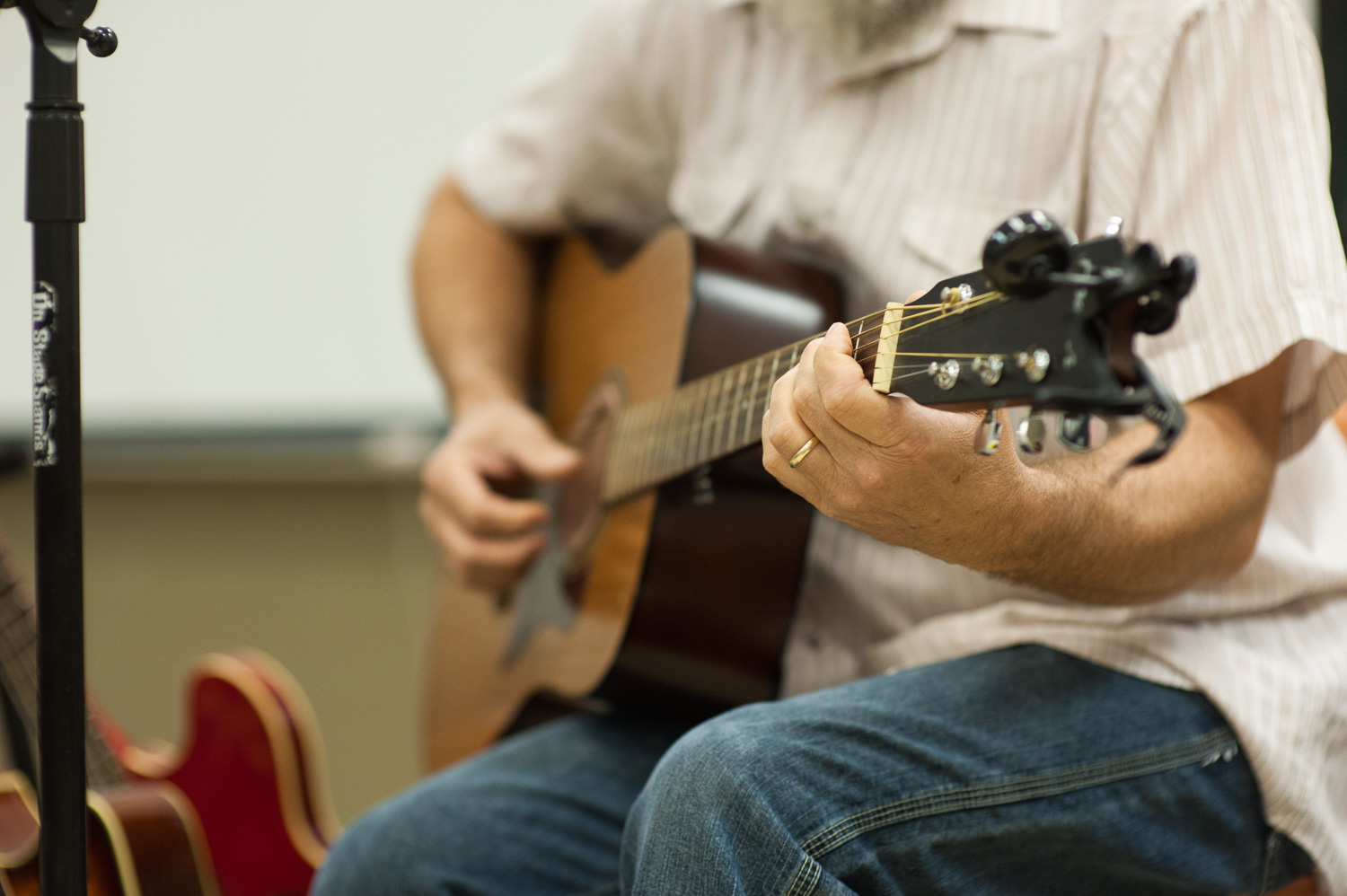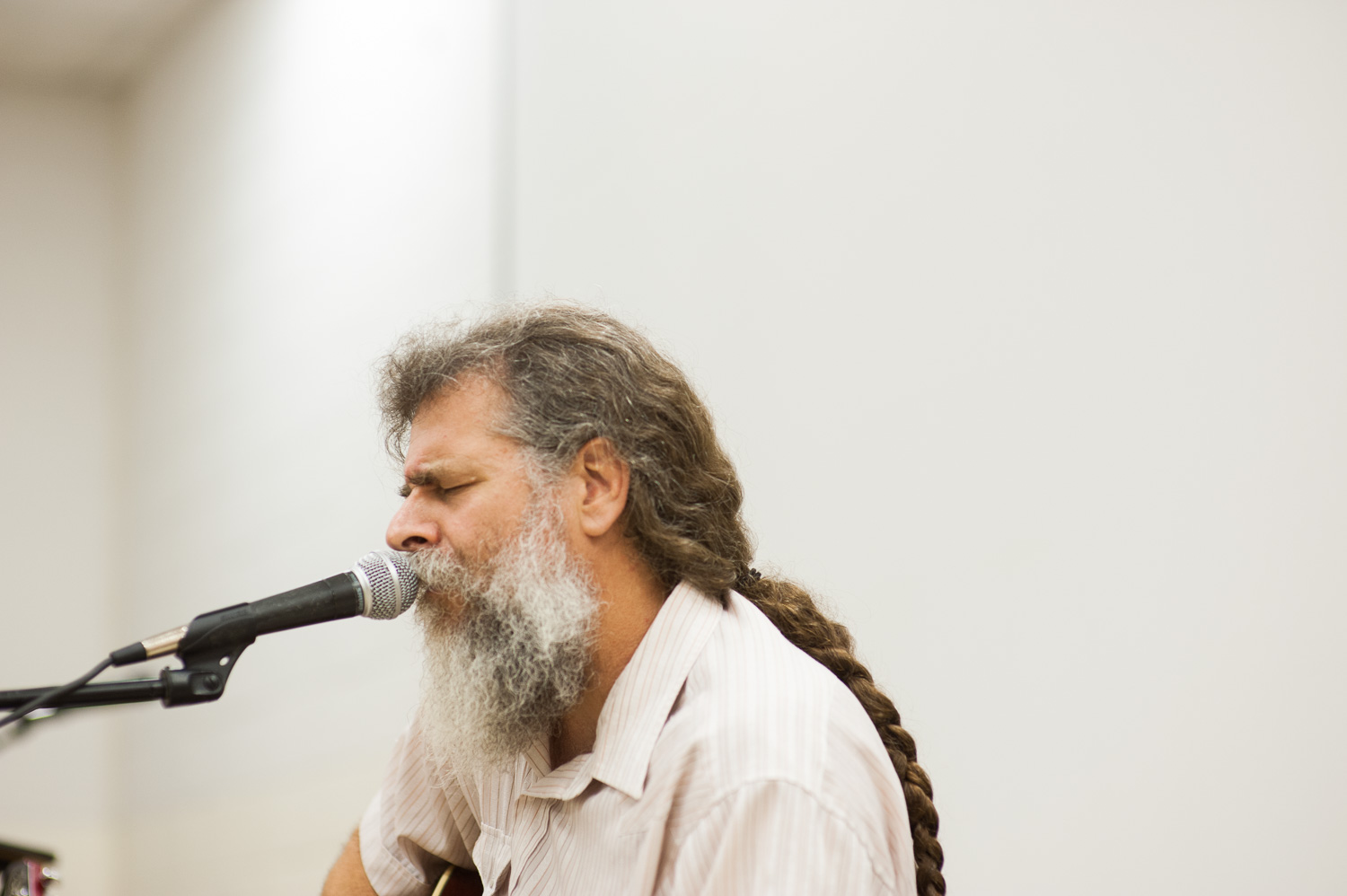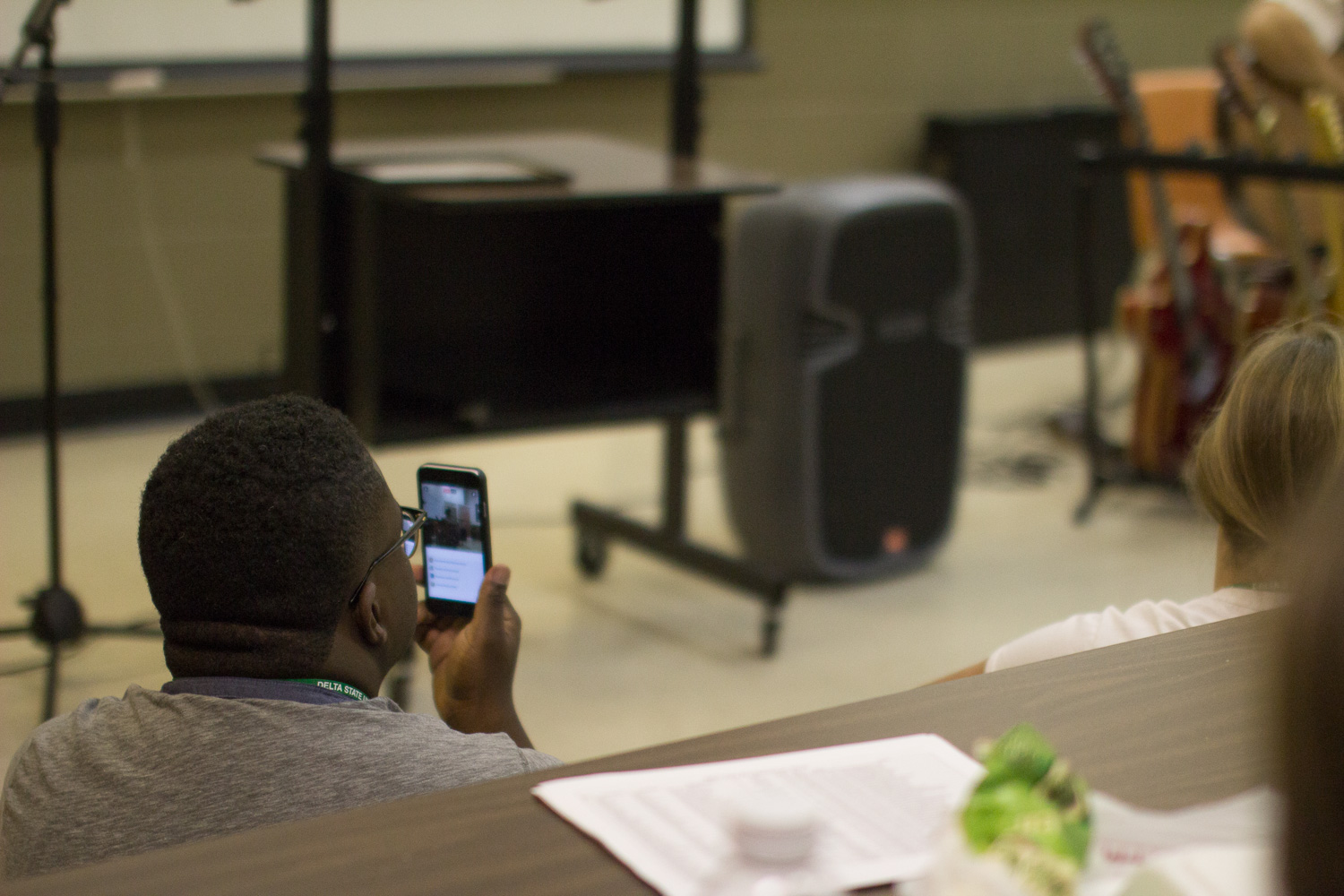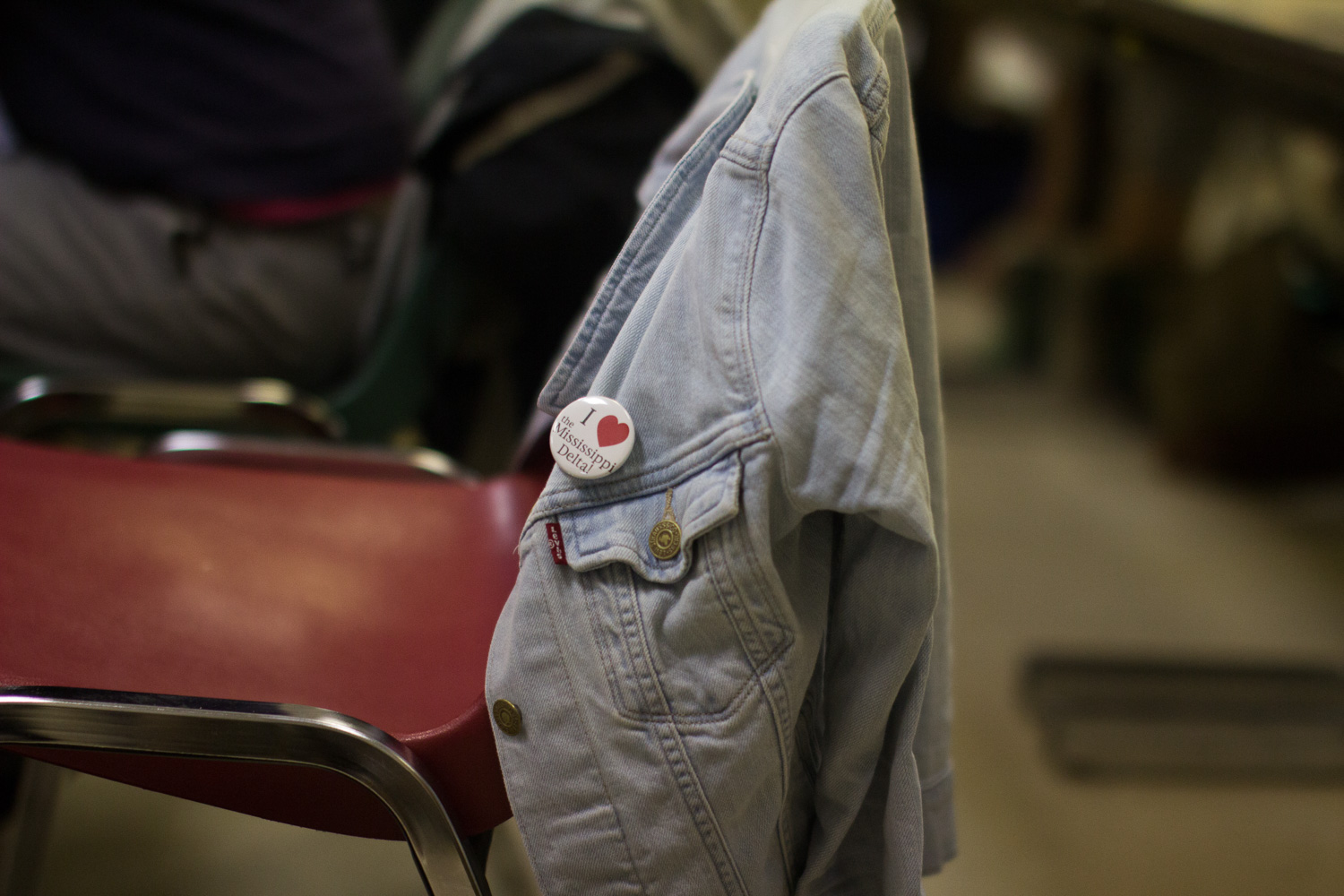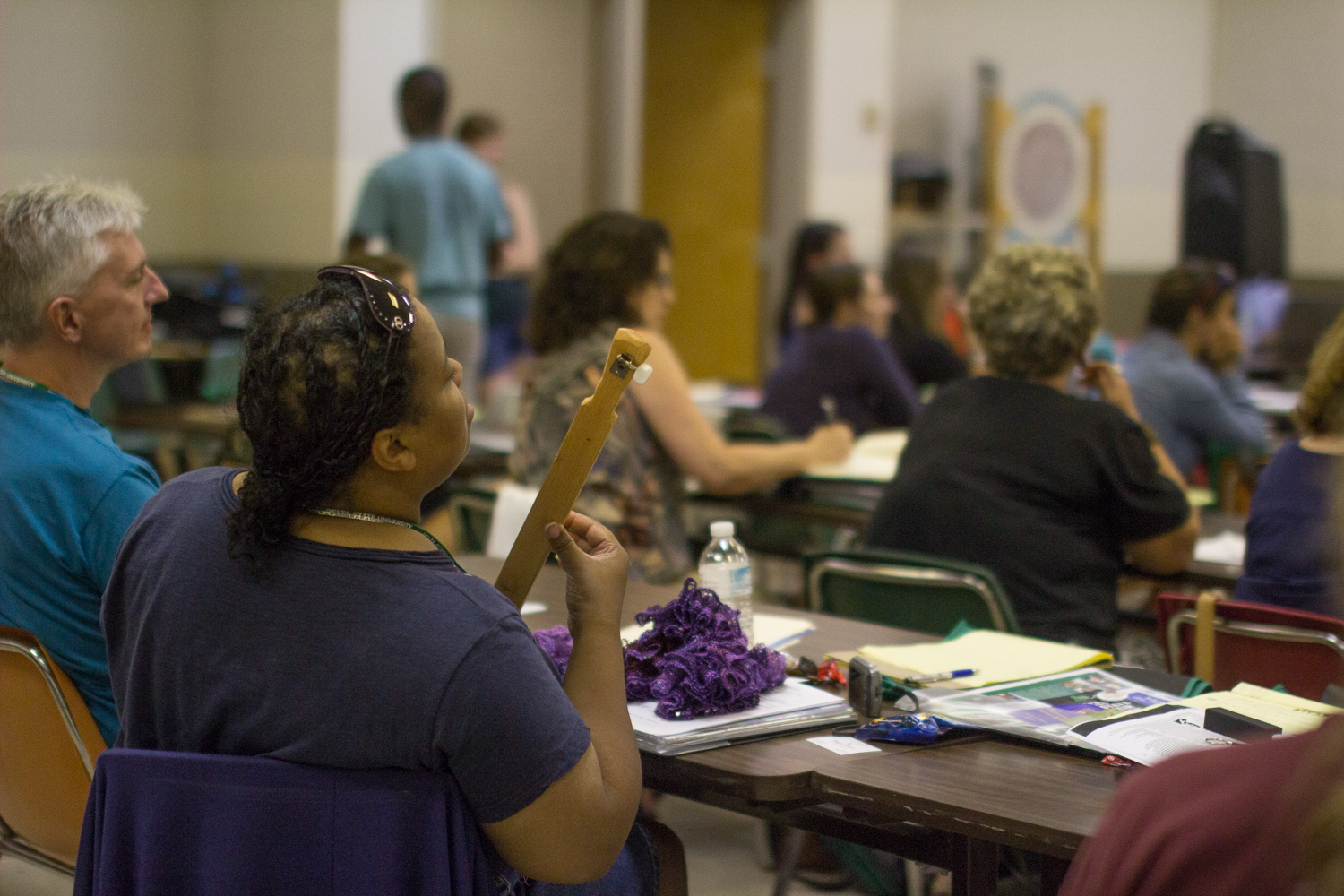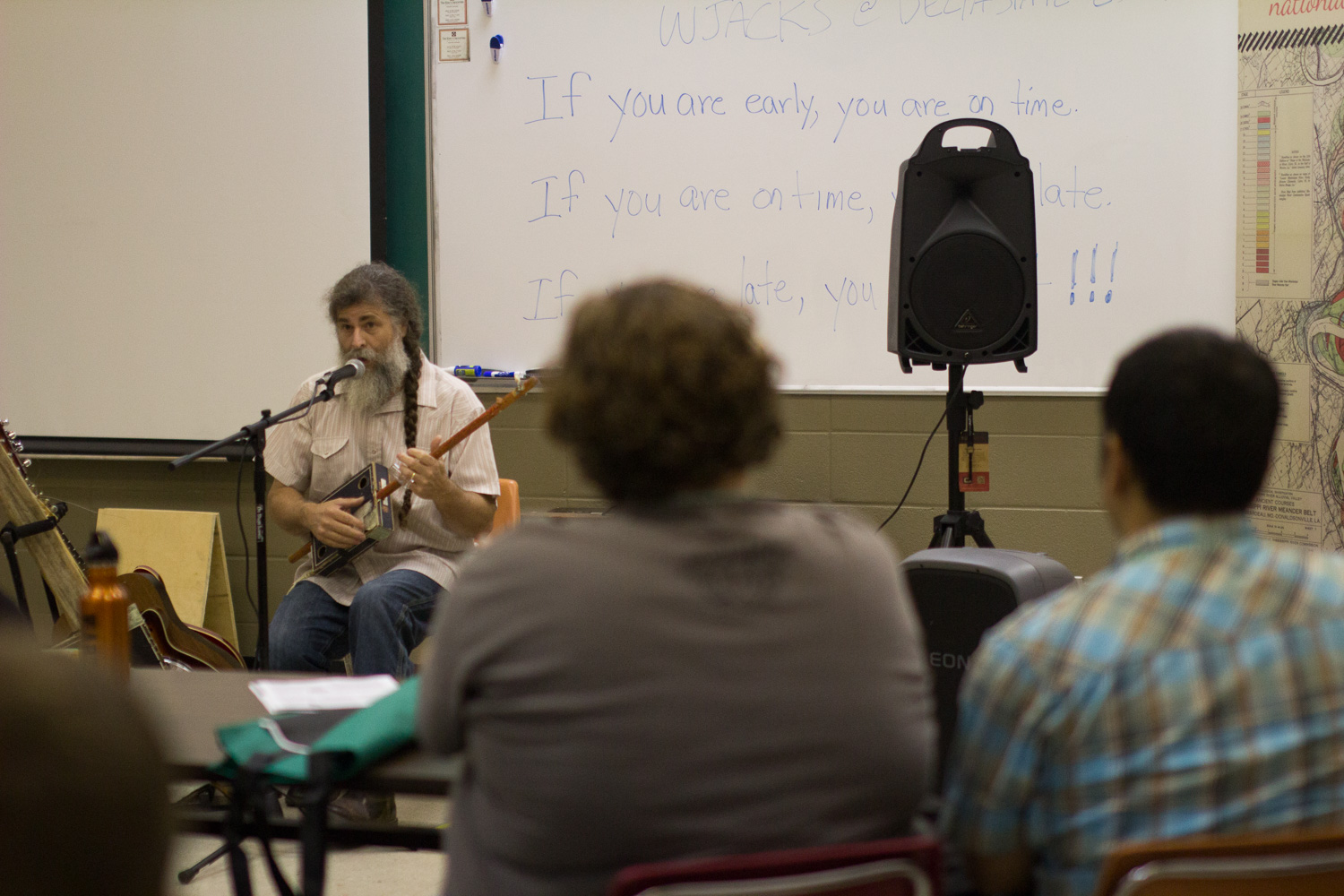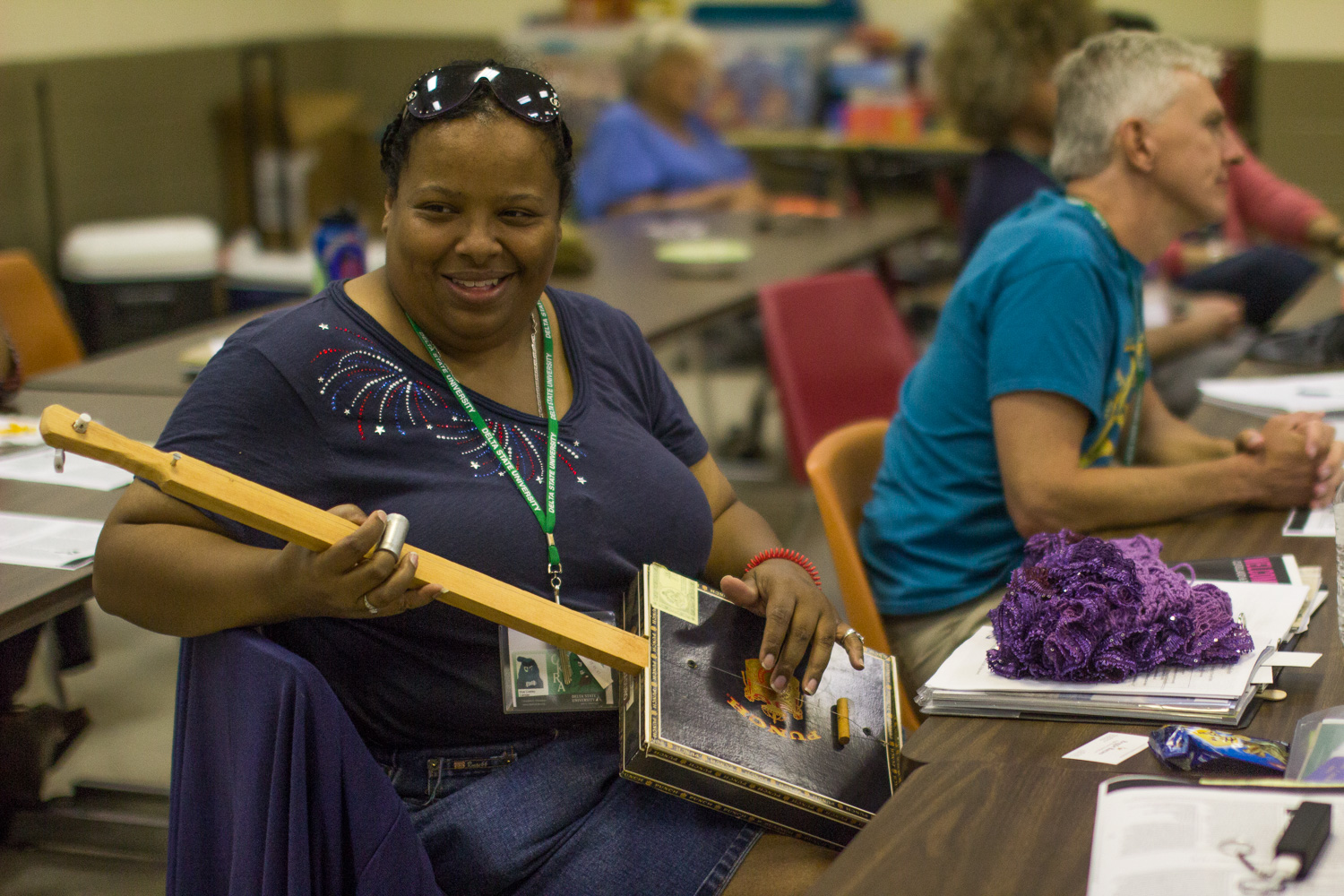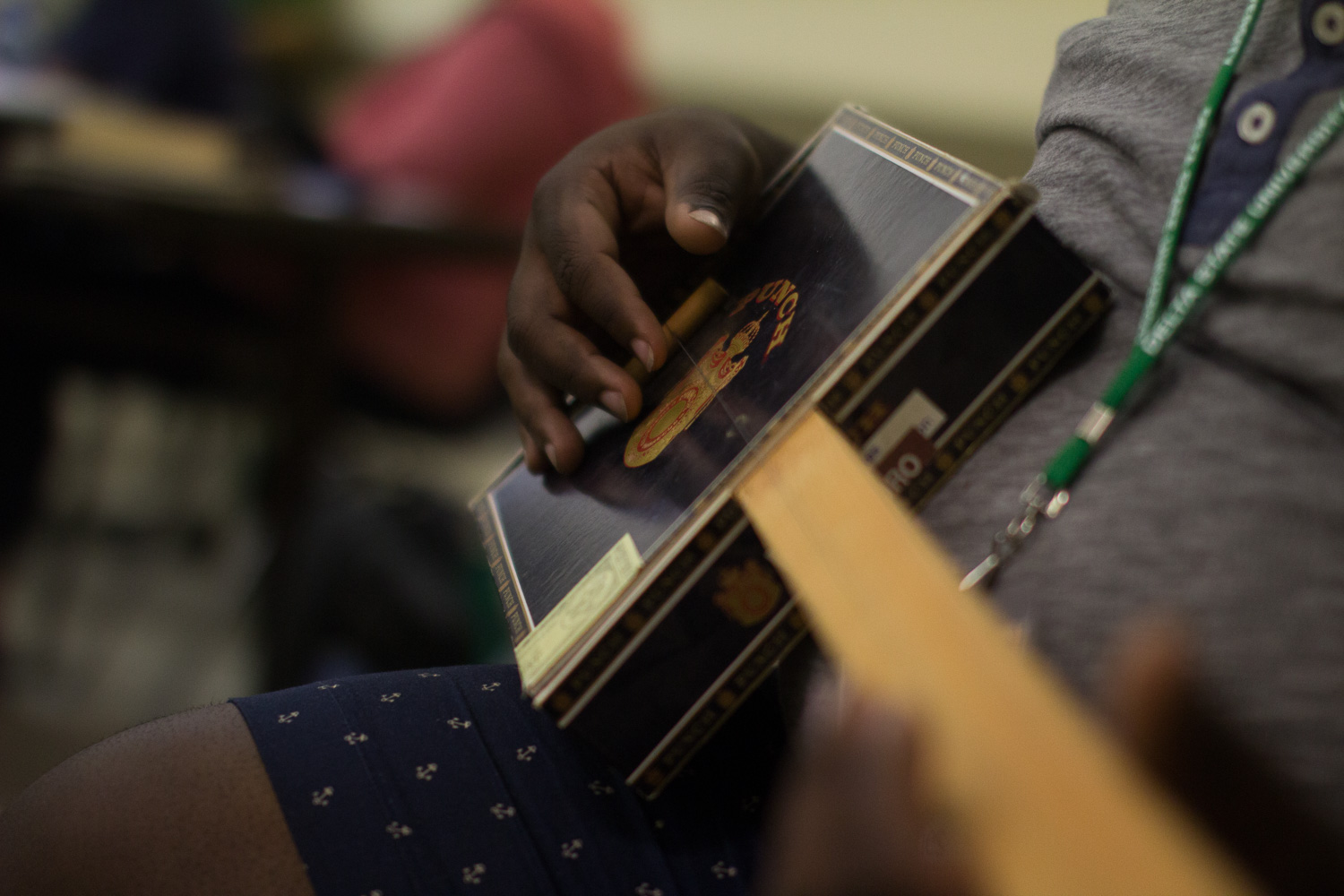During the second day of the workshop, participants gained a deeper understanding of the lesser known immigrant stories found in the Delta, as well as the religious and cultural roots of the blues and early rock music.
The day began by first traveling to to Greenville, Mississippi, which was once a major commercial and cultural hub. In addition to being the first Delta town to be hit by the flood of 1927, Greenville carved its place in history as a place rich with diverse peoples. On the way to this historic city, participants learned the history of the Delta Jews, and how their Jewish and southern identities intersect. Once participants arrived, they stopped at the adjacent Chinese and Black cemeteries. Here, they met one of the last Chinese American citizens in the Delta, who discussed how she grew up living behind her family's grocery store, which was located in a predominantly black neighborhood. As her grandfather came to the United States in the 1800s, her story illustrated that of the average Chinese American growing up in the Delta. Within the black cemetery participants were able to view Holt Collier's gravestone and learn how he led a life of big game hunting and solidarity to to the confederacy. They then went to the historic Hebrew Union Temple to hear even more about the history of Jews in the region and their relationship with southern society as well as with the northern Jews who came through the Delta as Freedom Riders. Adjacent to the temple, participants meandered through a museum of the 1927 flood. Here, they were able to read original newspaper clippings reporting the flood, to see real artifacts leftover, and to ask questions about the actual physics involved with the levee. Two local newspapers interviewed some participants in the museum after hearing that the NEH workshop was in town -- a sign of how prevalent cultural tourism is becoming in the Delta. After leaving the museum, participants returned to Cleveland for lunch.
Guest scholar Charles Reagan Wilson spoke to the workshop after lunch, teaching about the historically diverse religious factions found within the Delta. He also discussed how the strong tradition of oral expression found in the South influenced the church, musicians, and even southern politicians. The lecture shed light on everything from church fans as a form of advertising to modern day politics and the relationship between religion and different political agendas. The day finished with country blues musician Bill Abel, who discussed the history of blues music and performed in a variety of styles, playing a variety songs, including selections by Robert Johnson and Muddy Waters, for the crowd.

